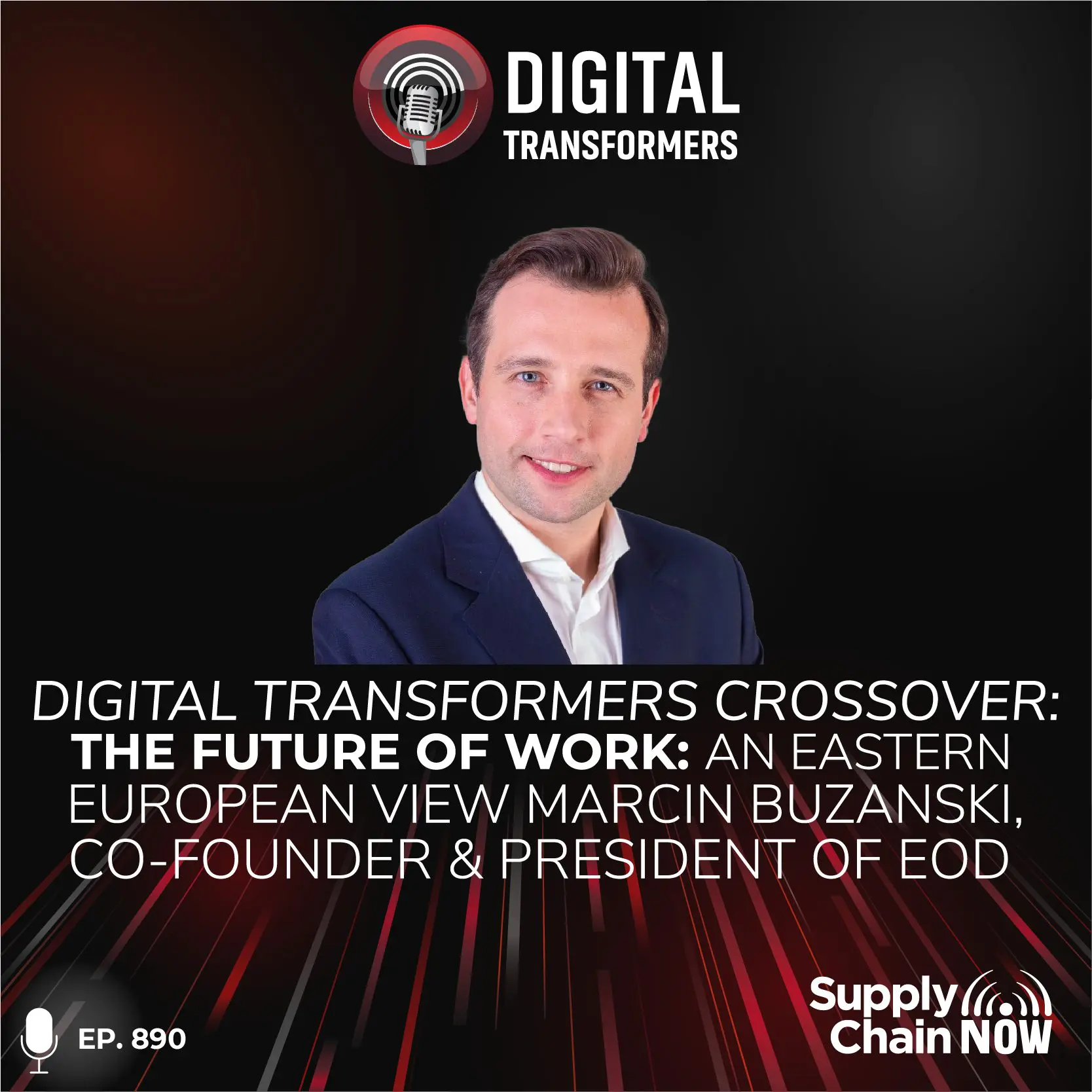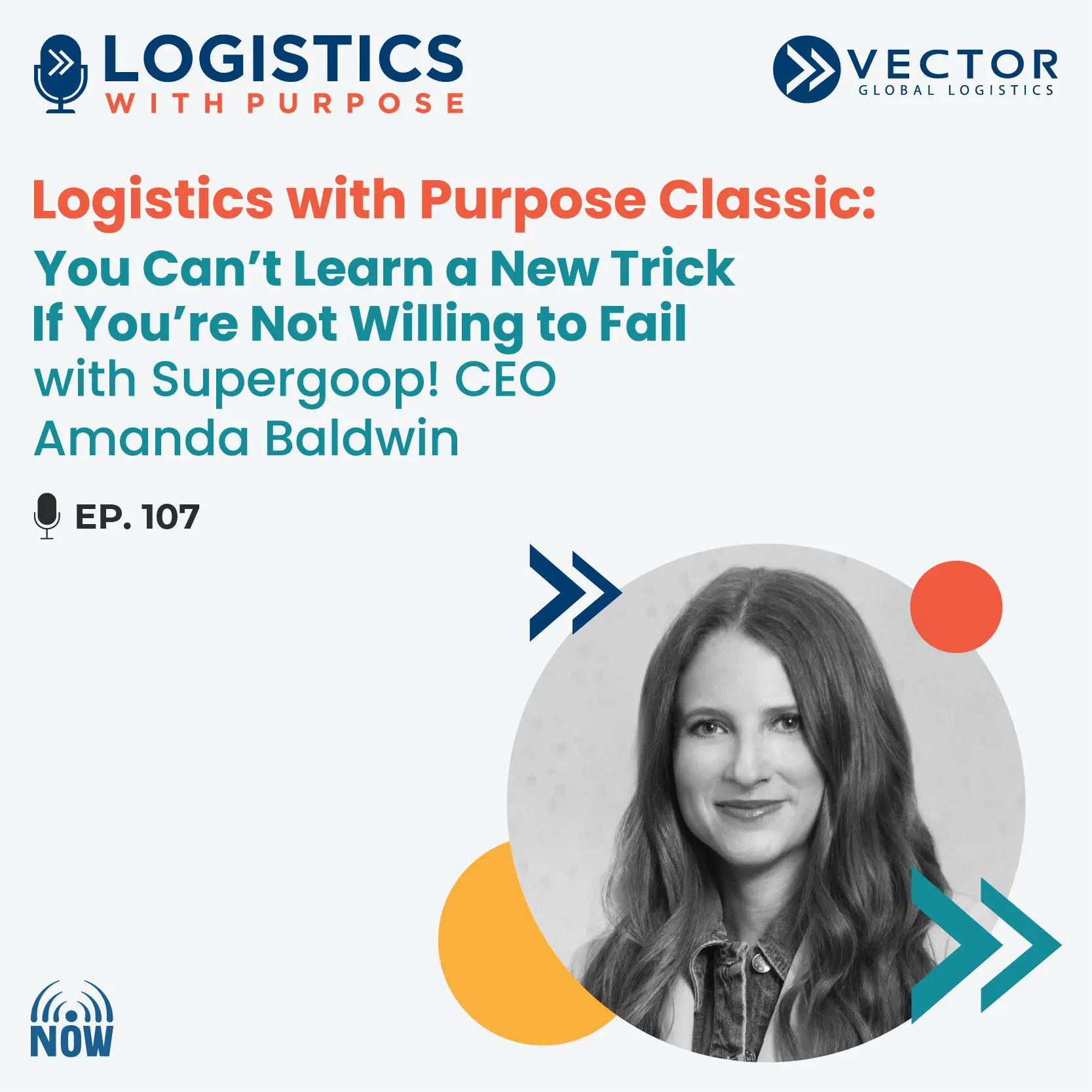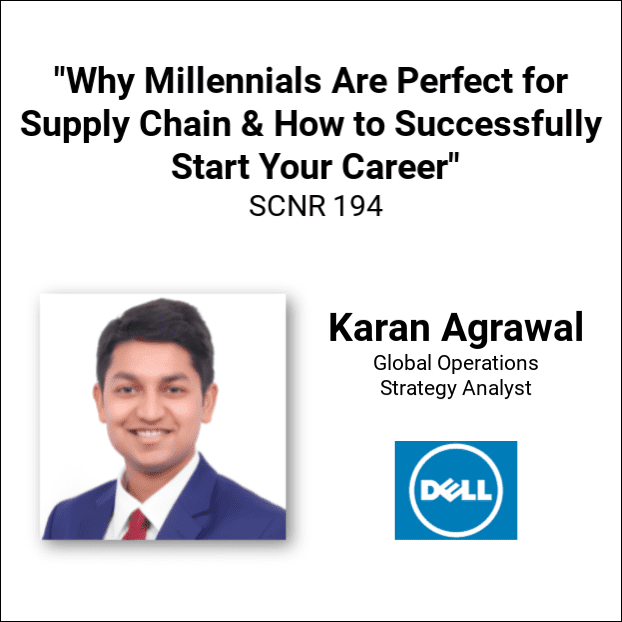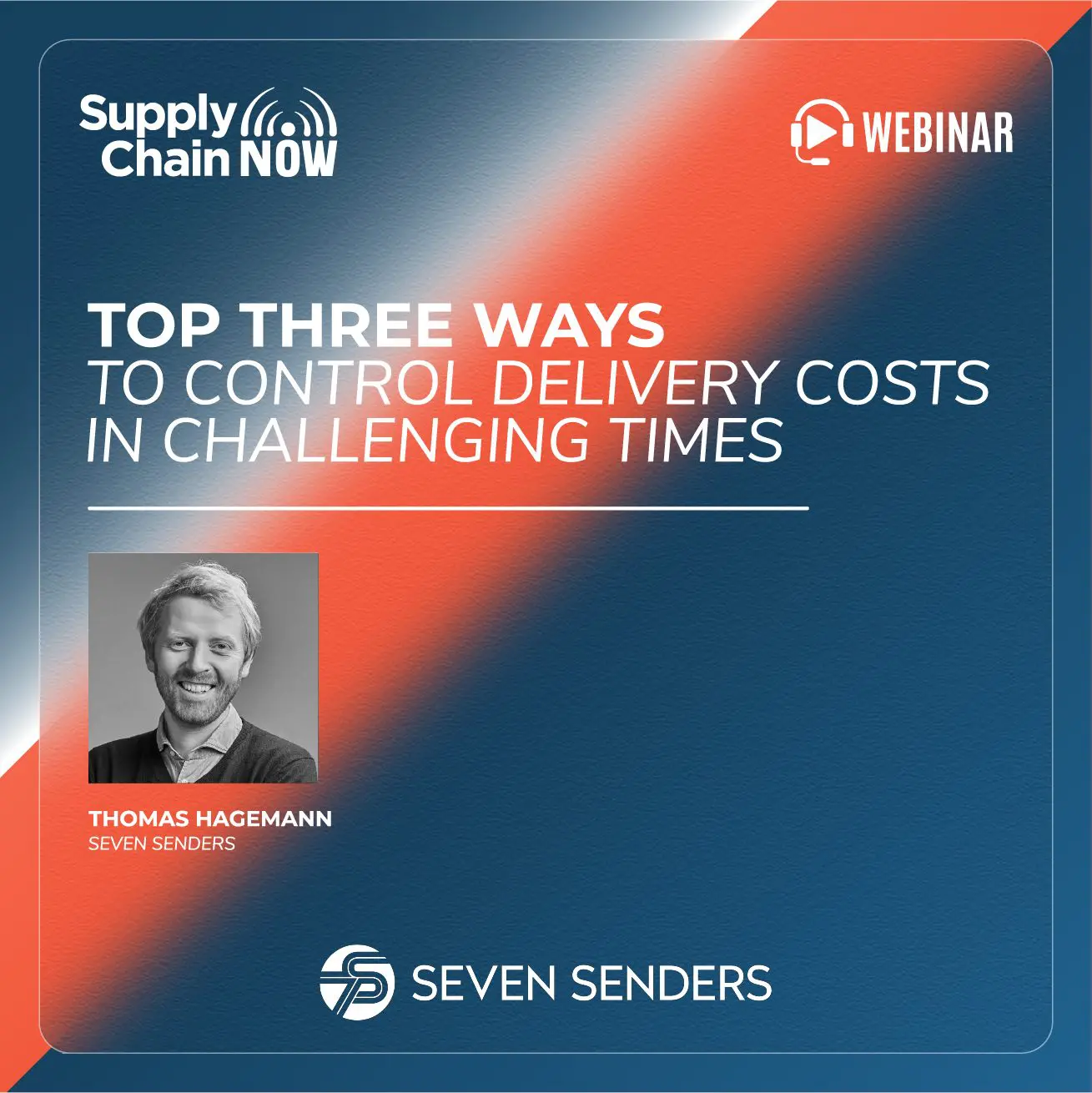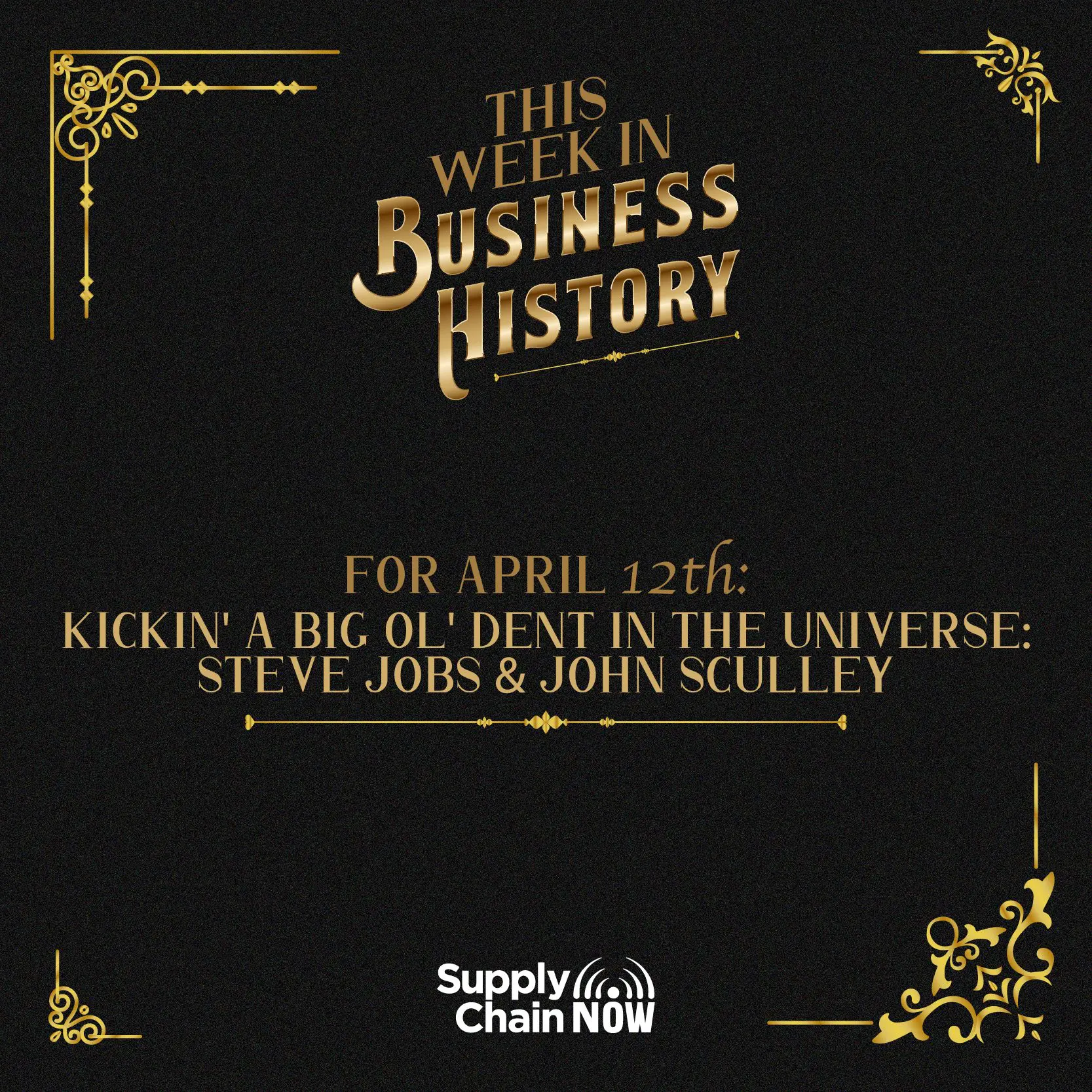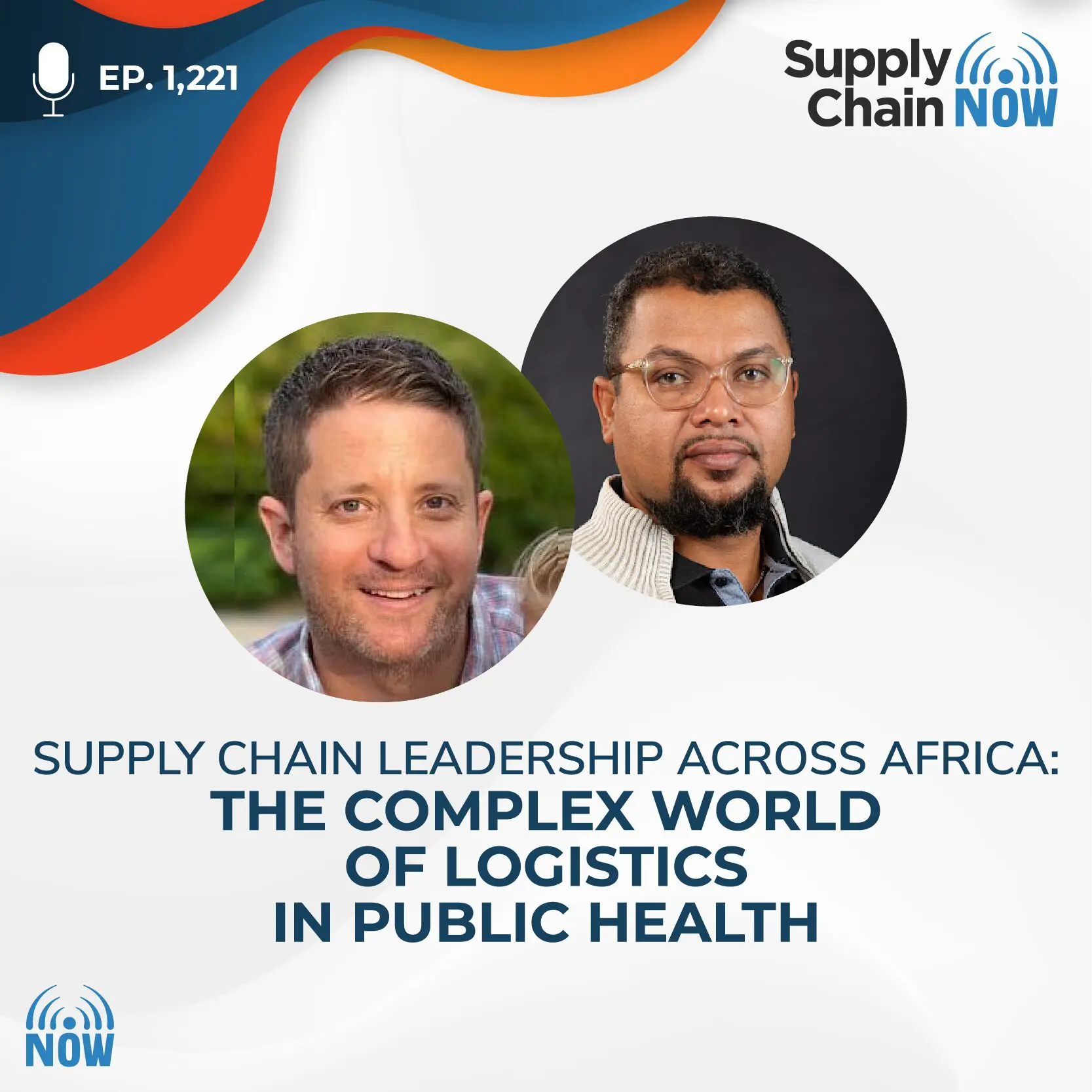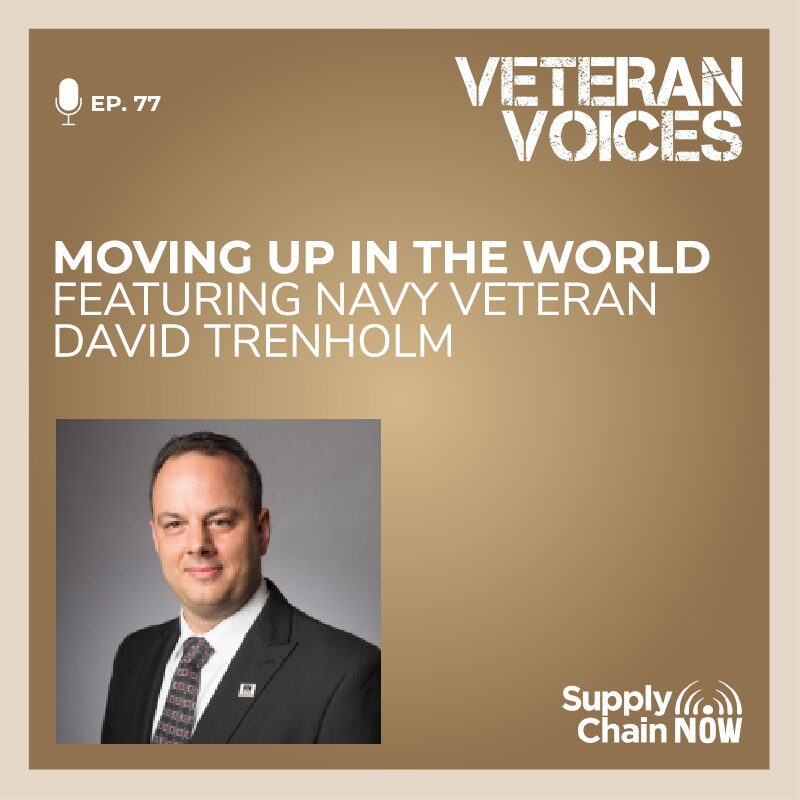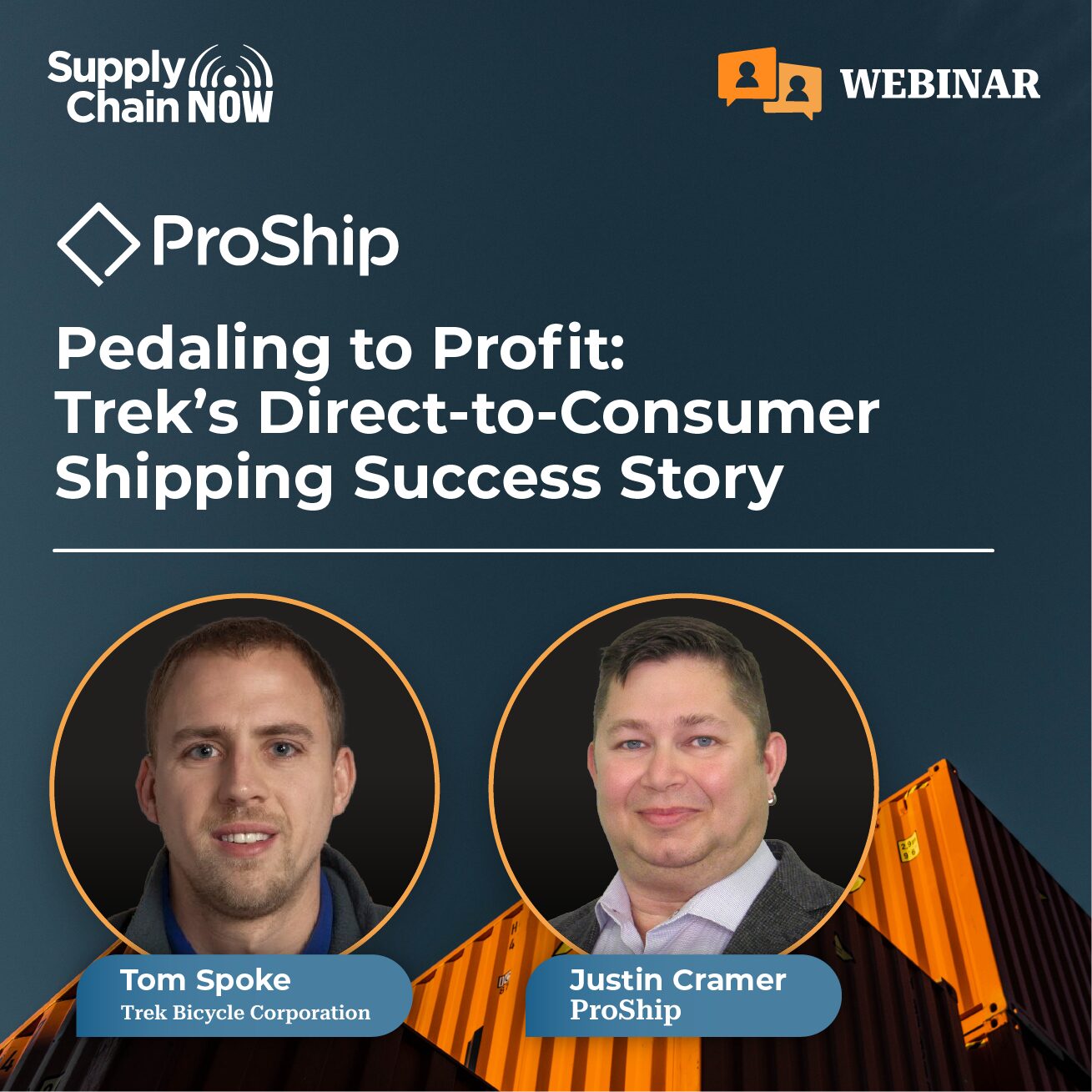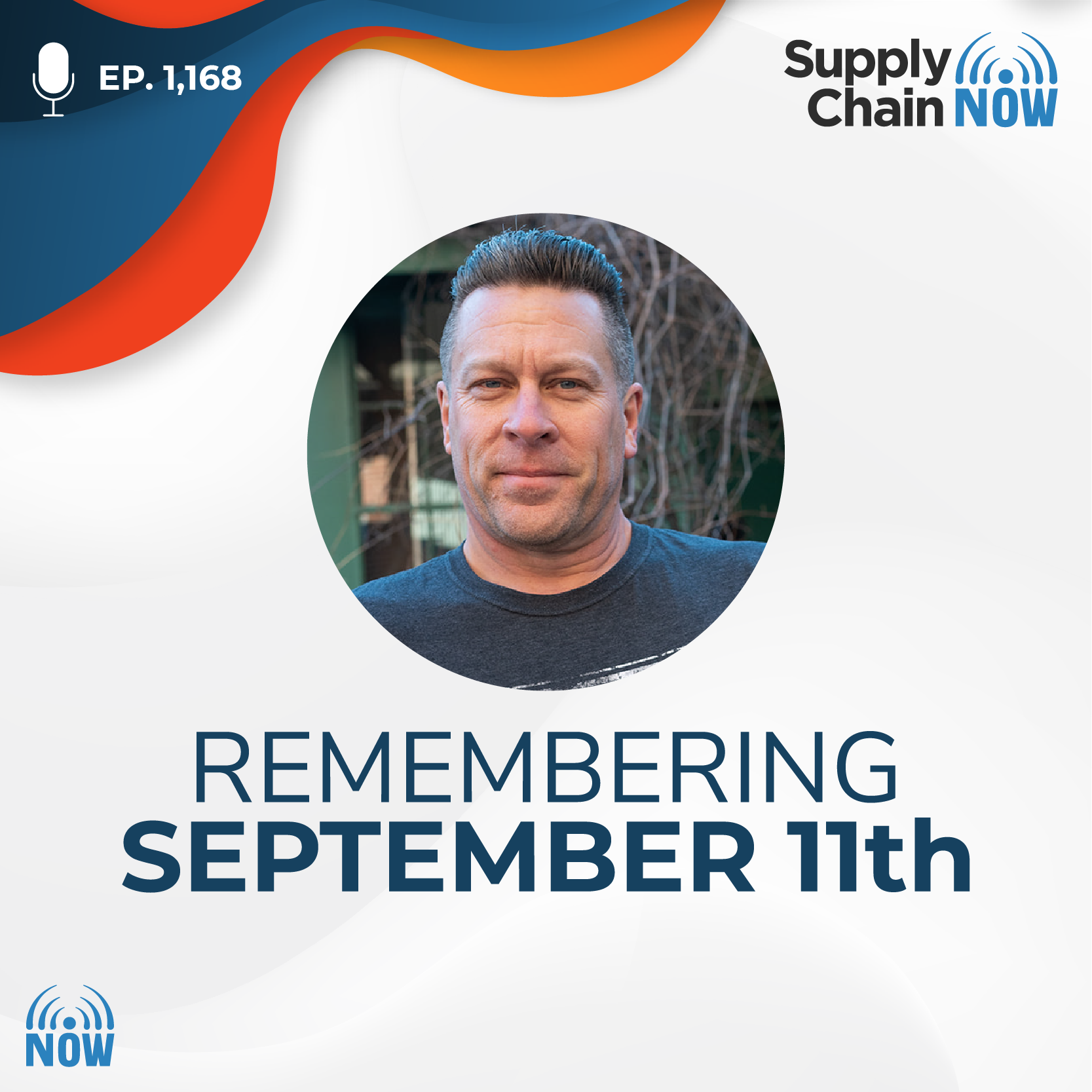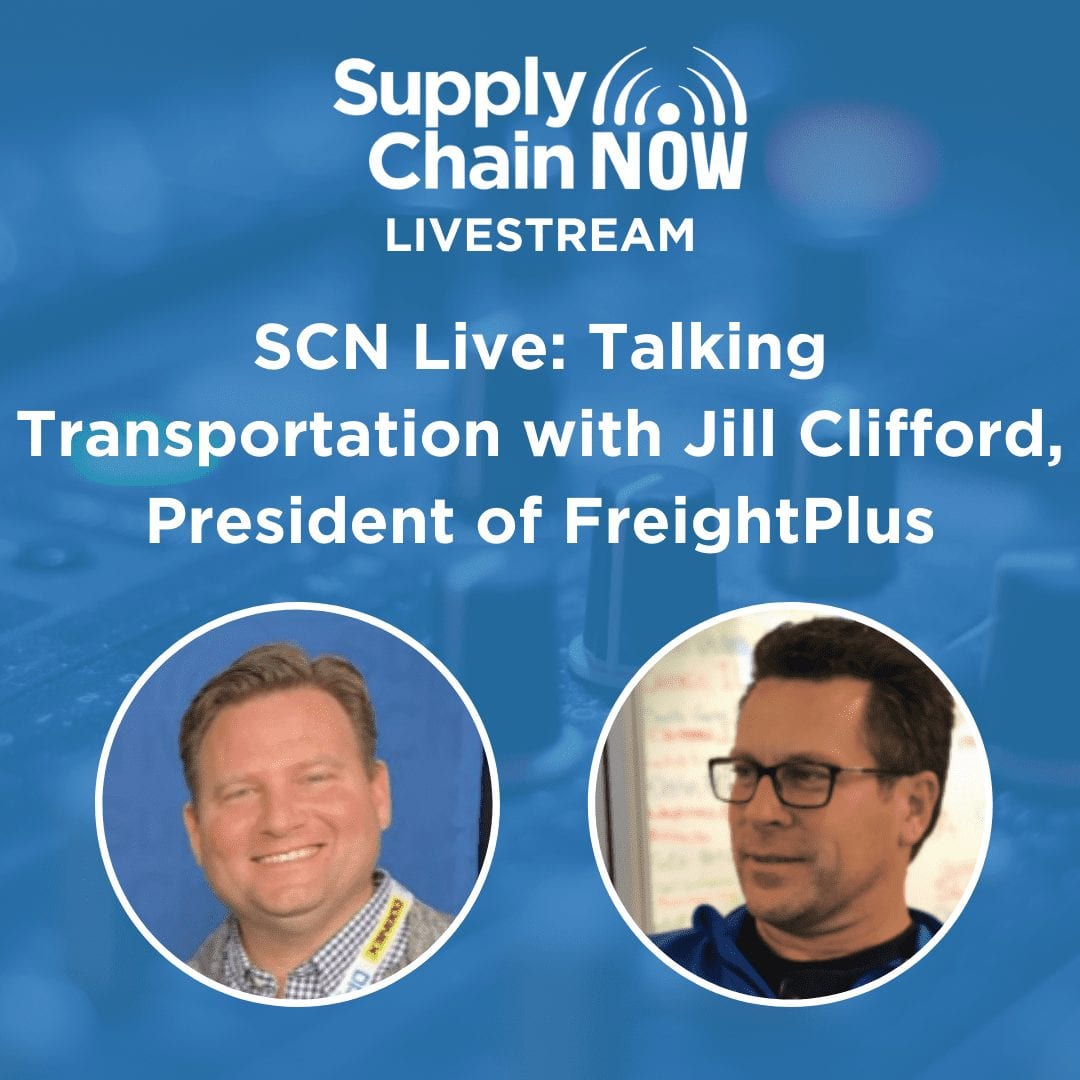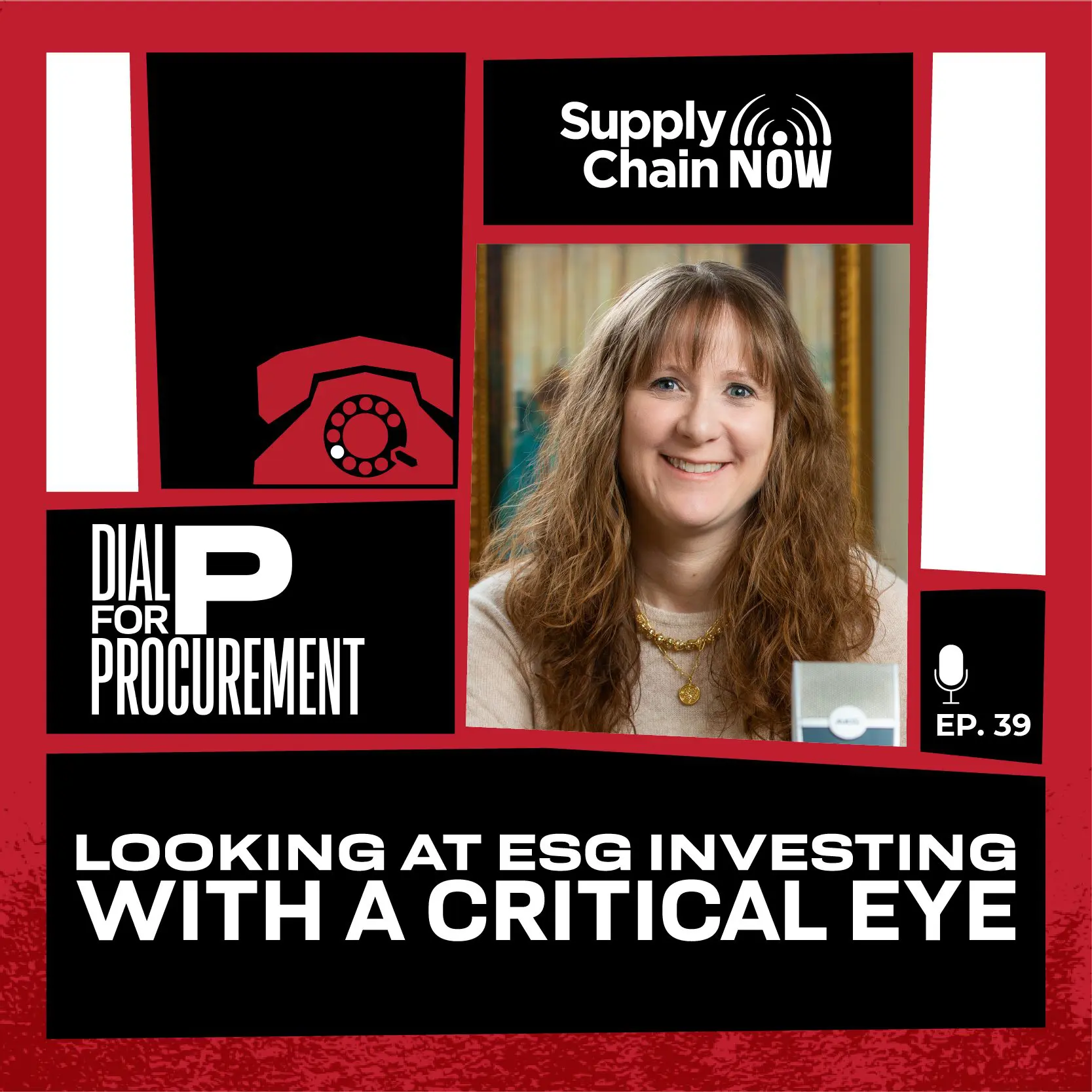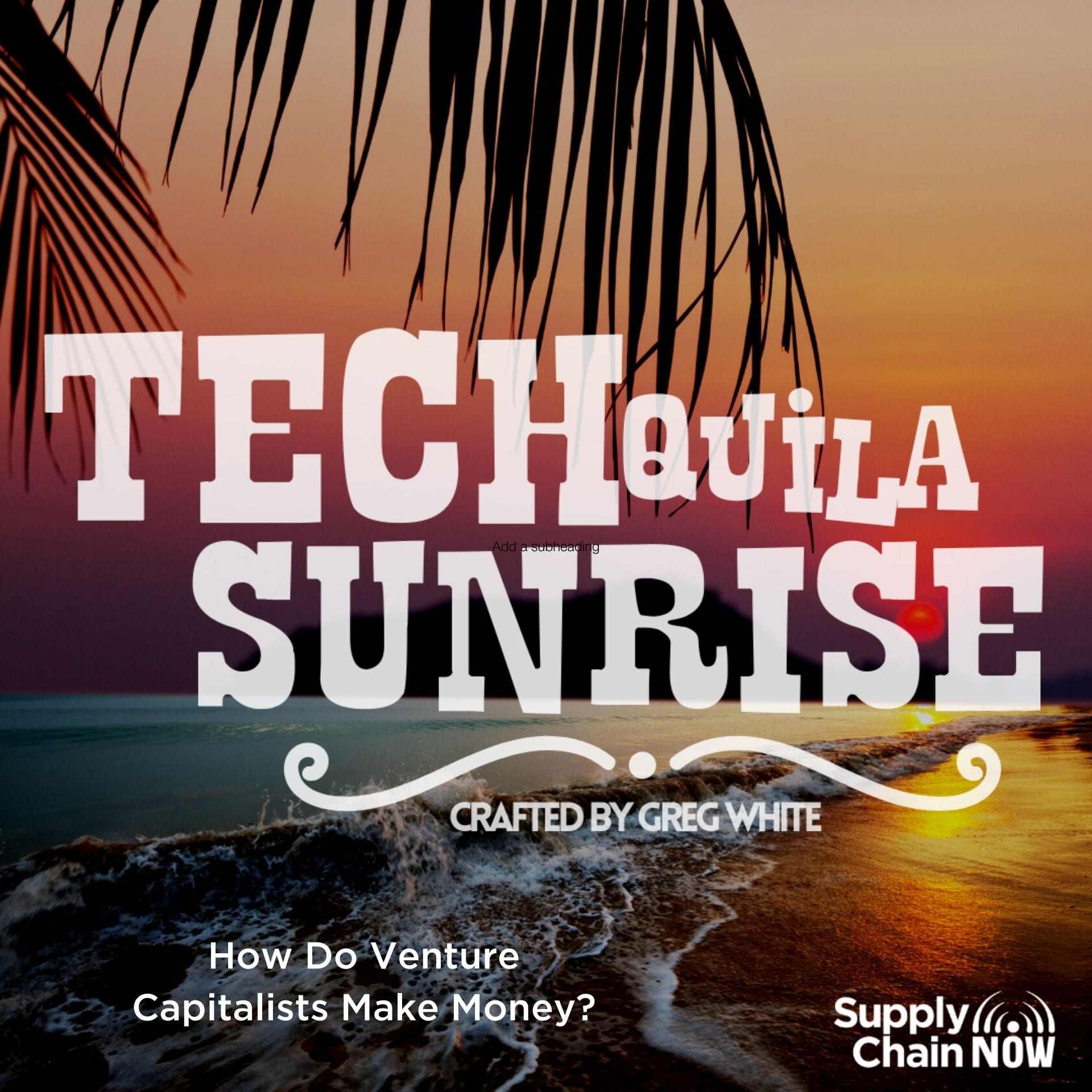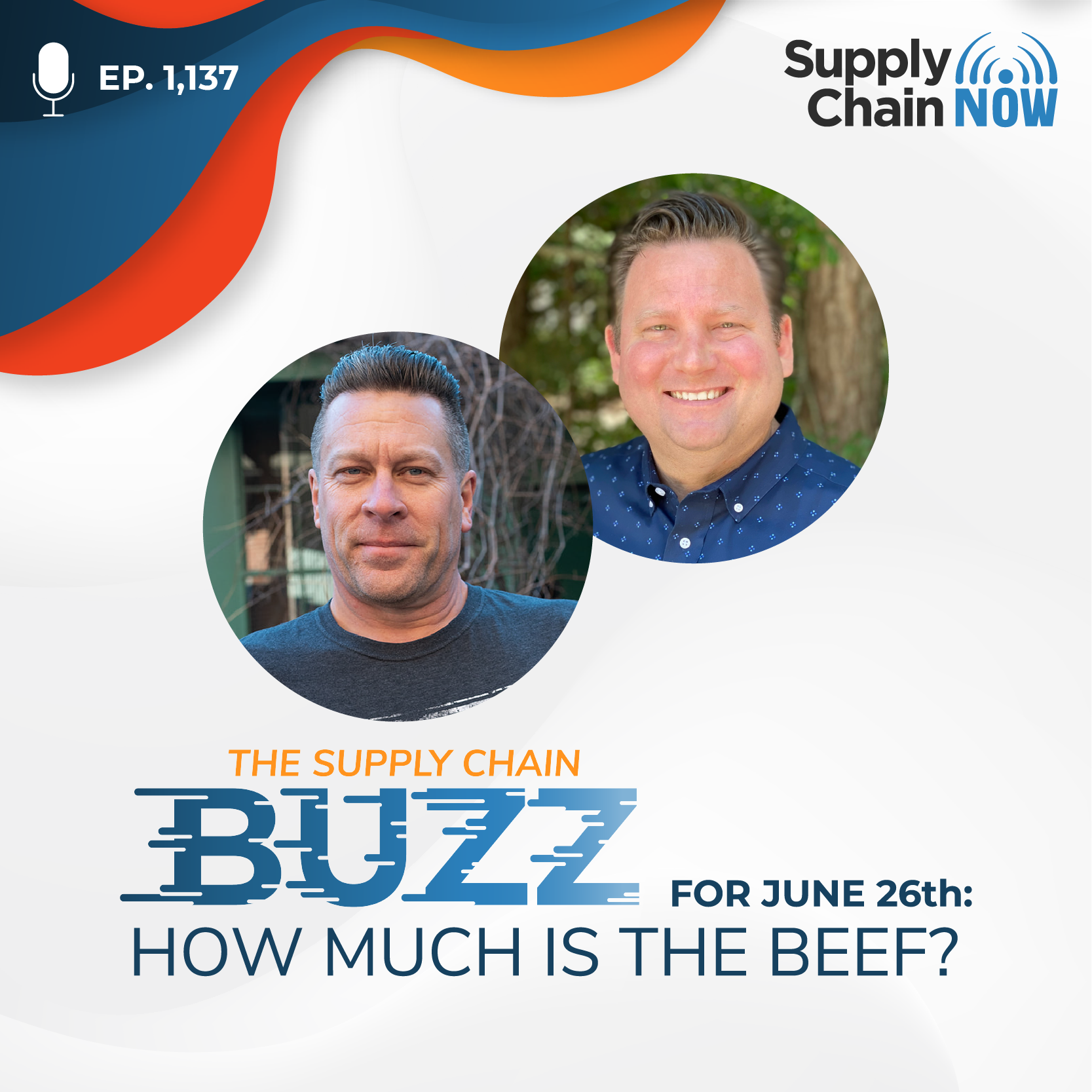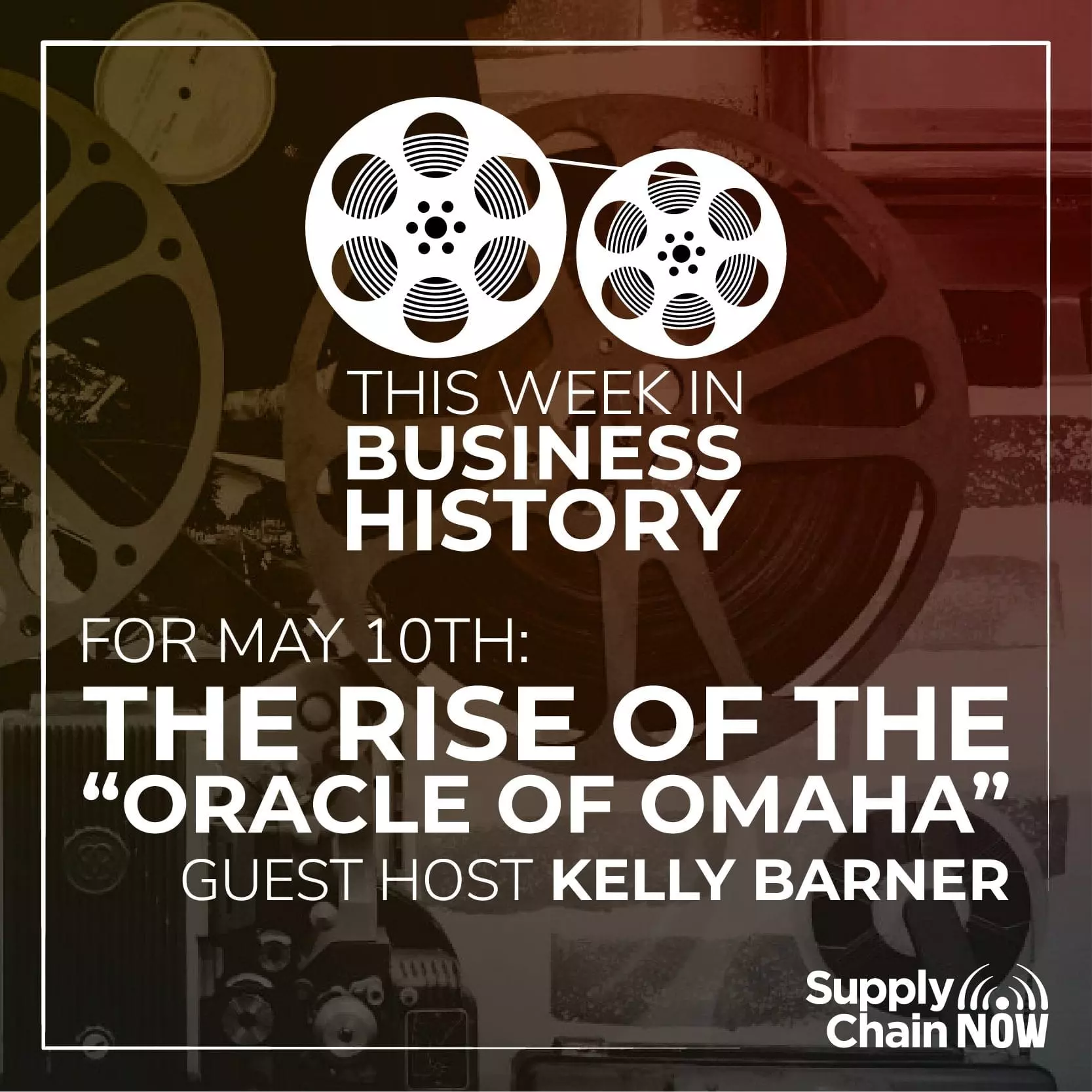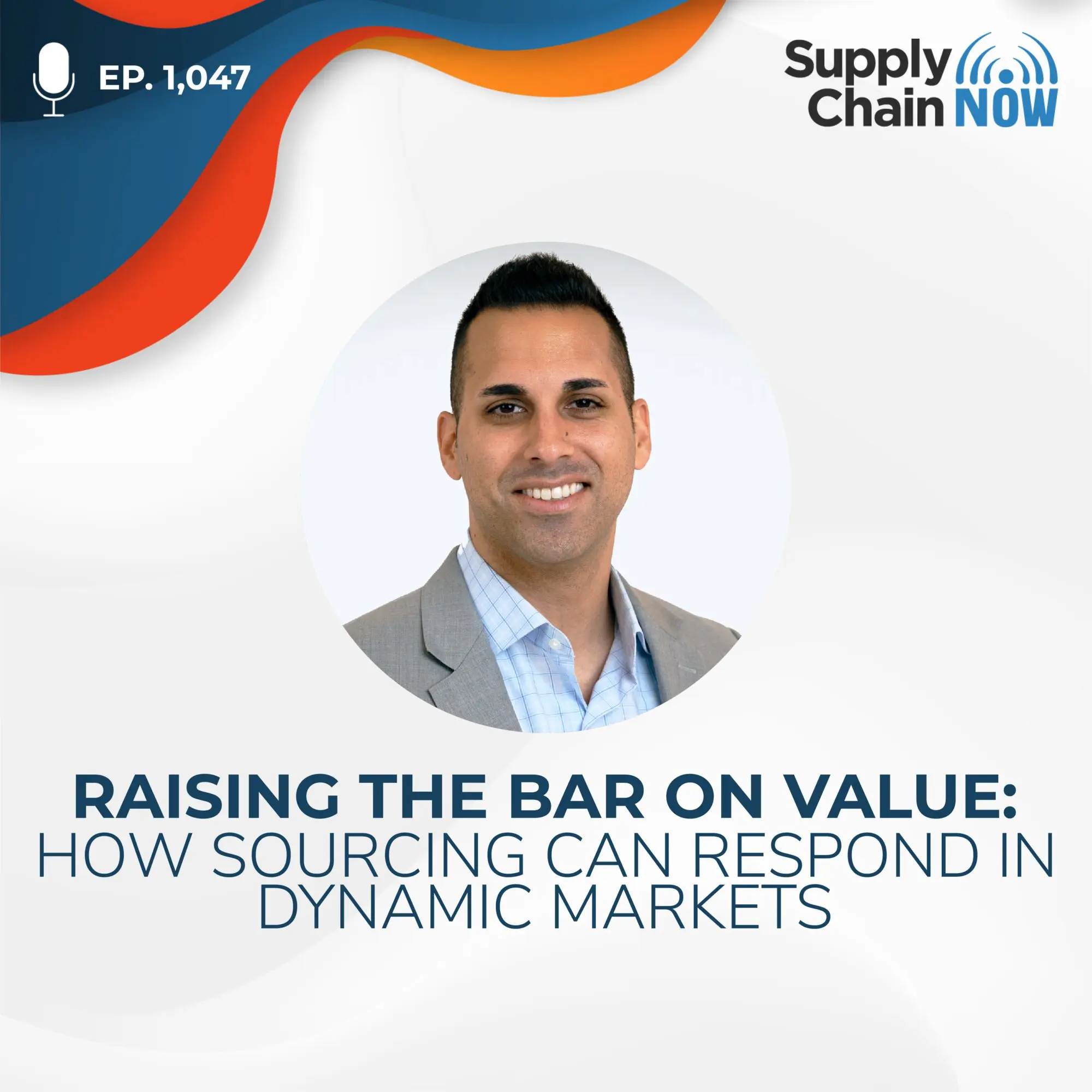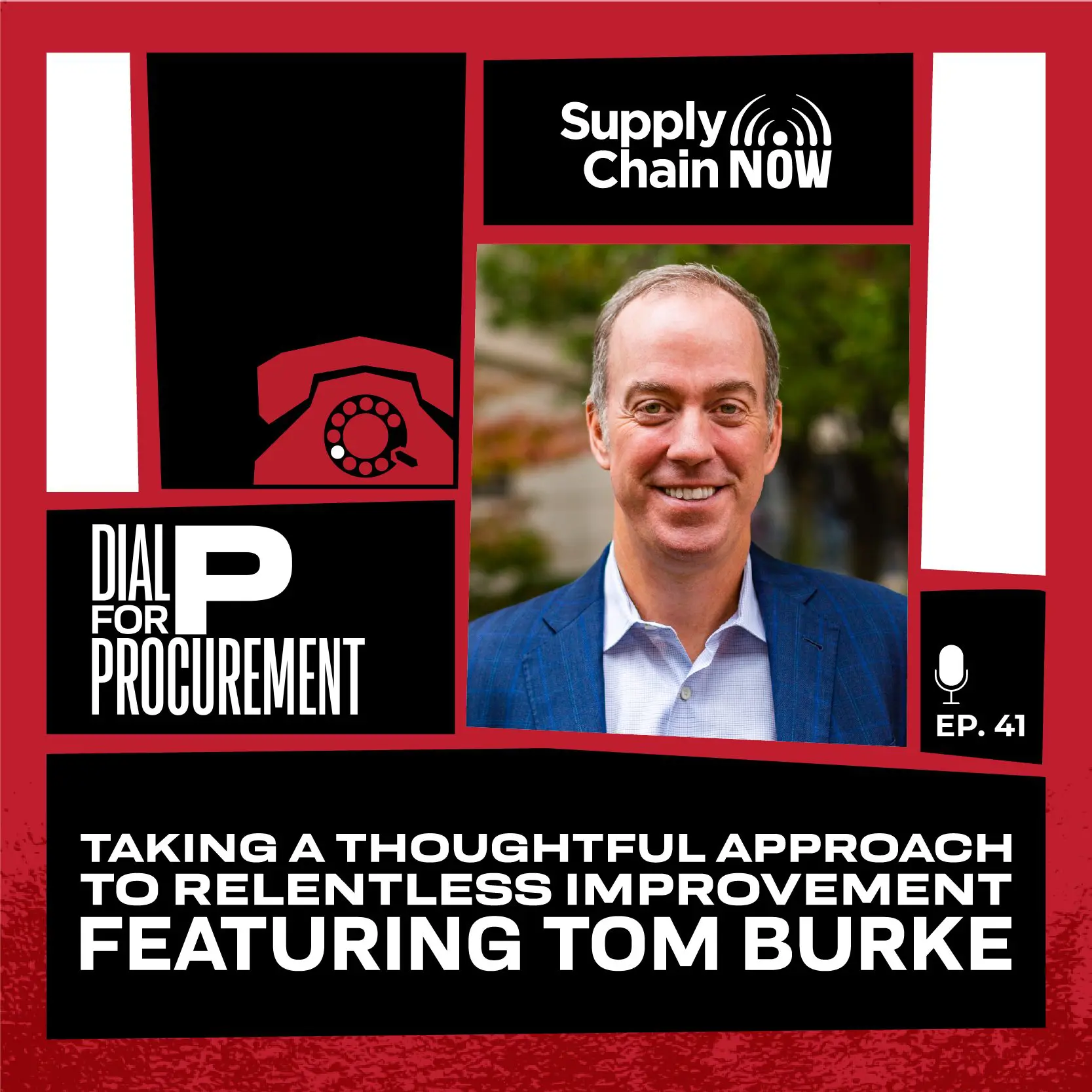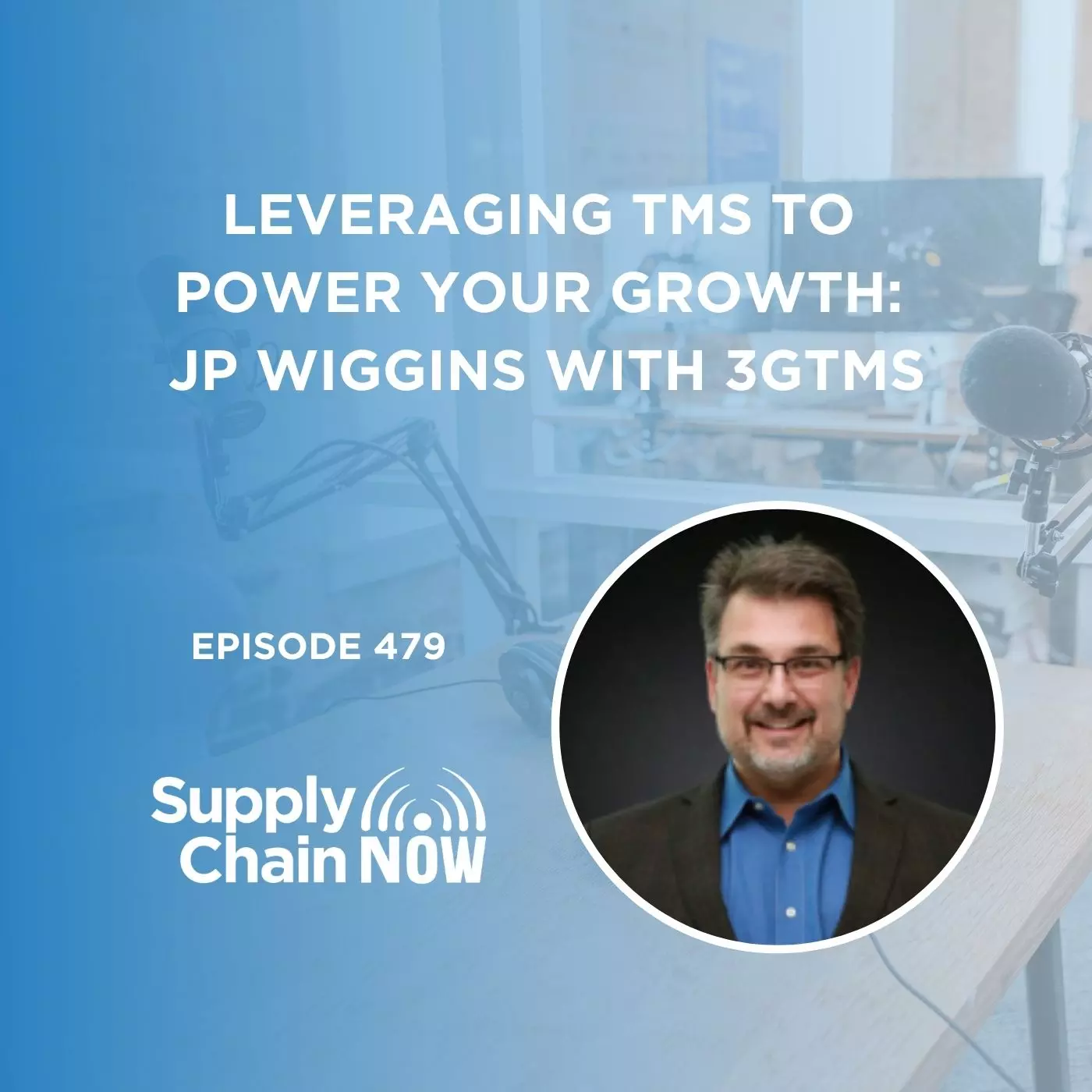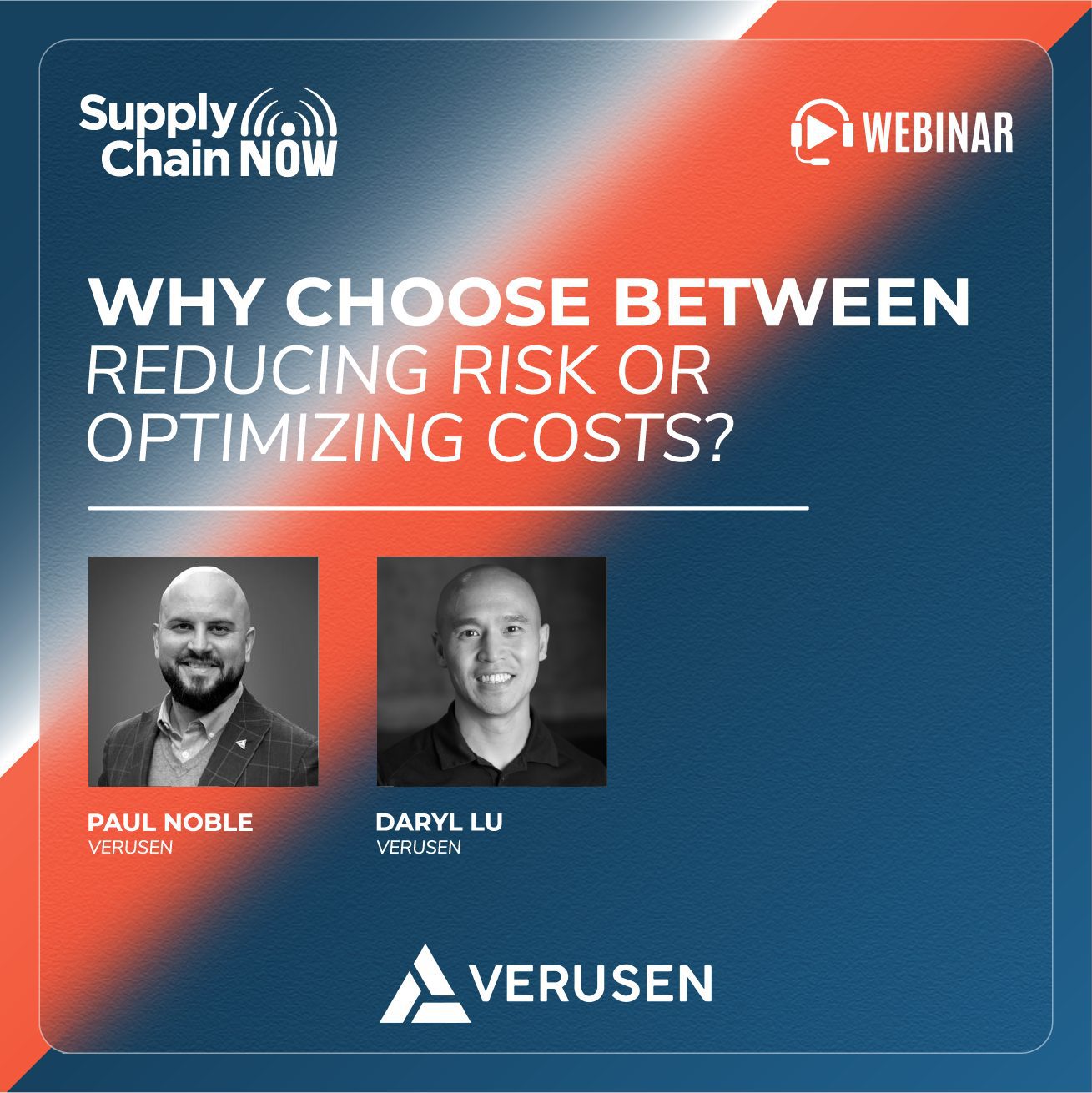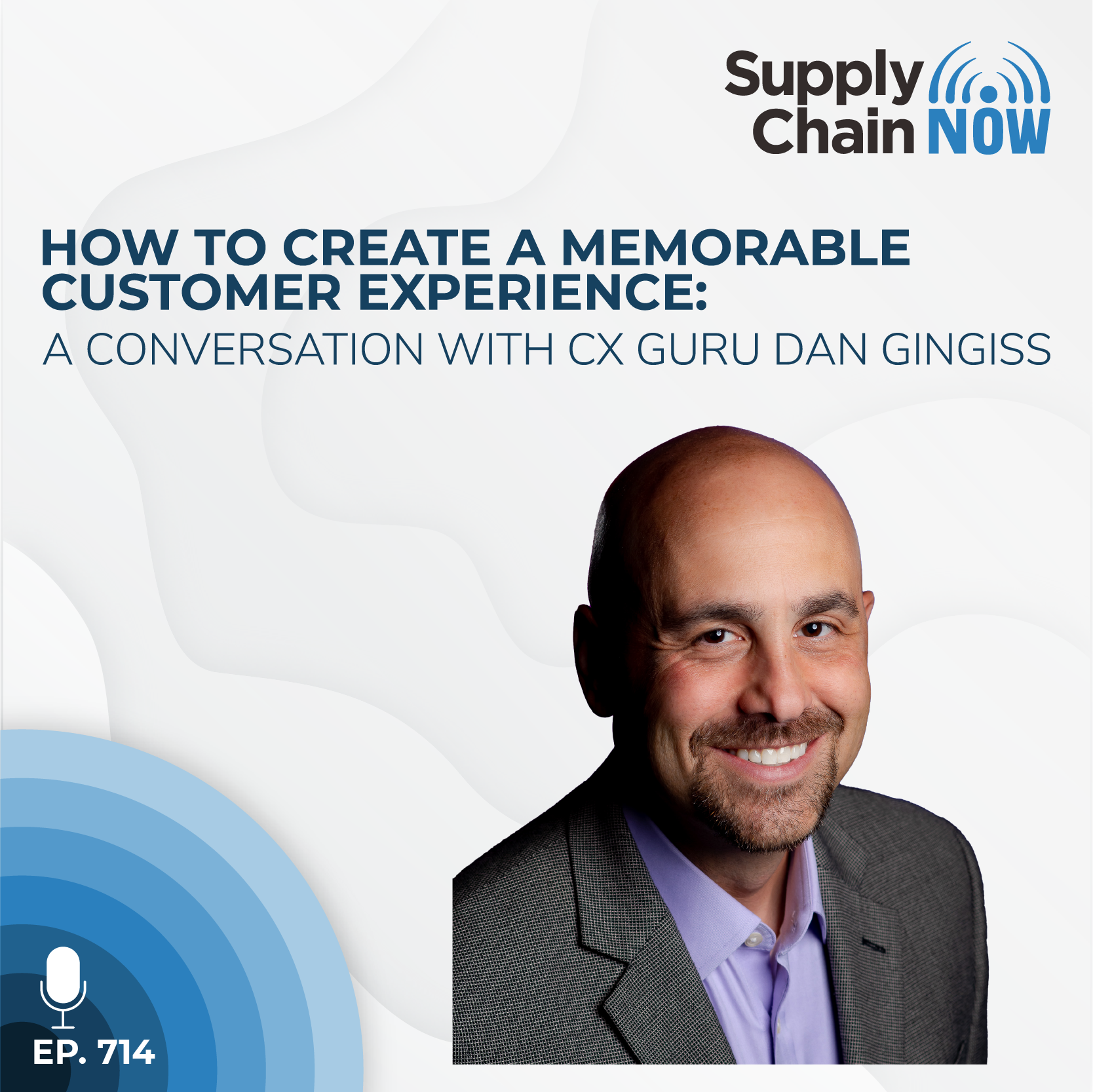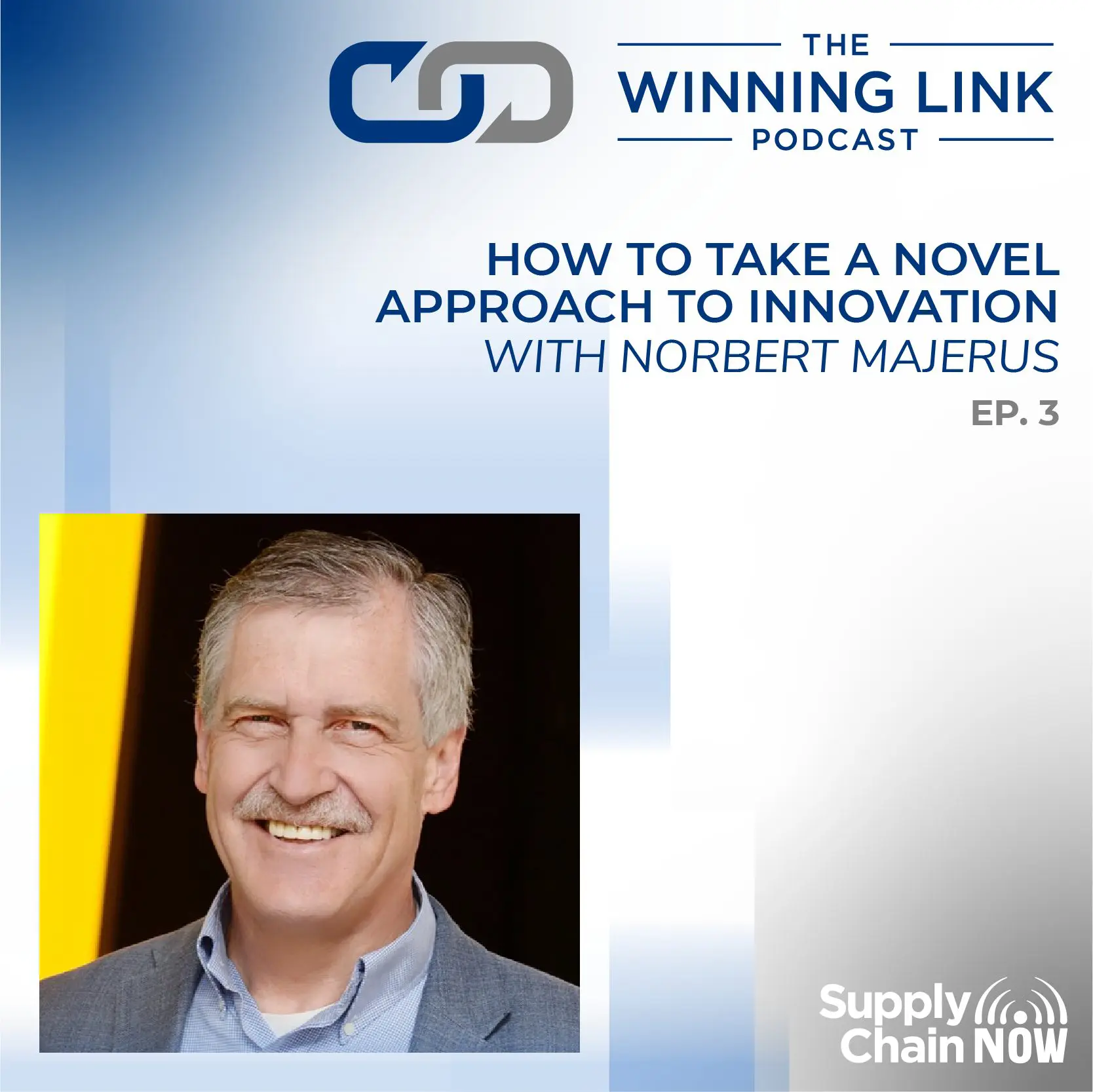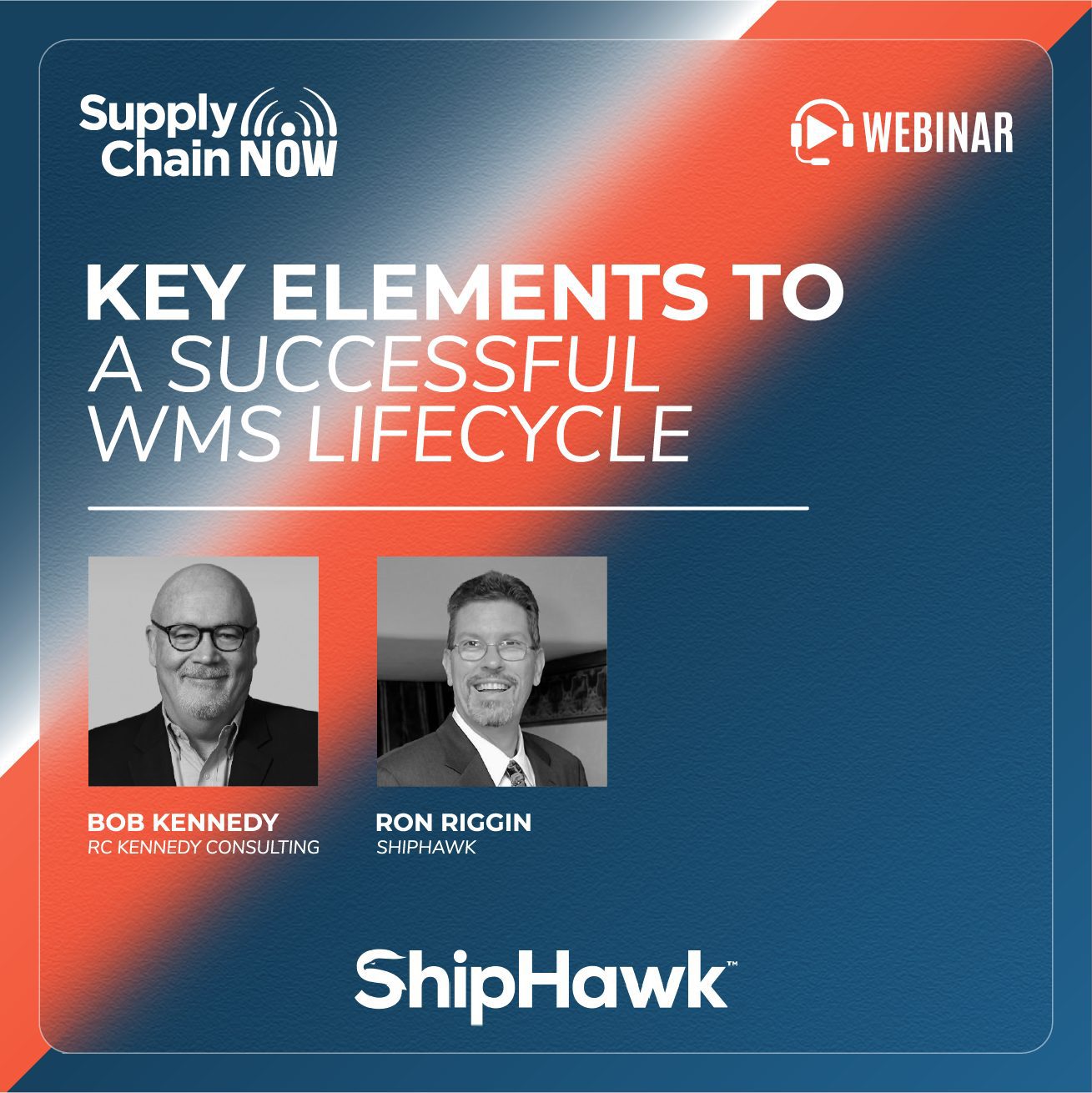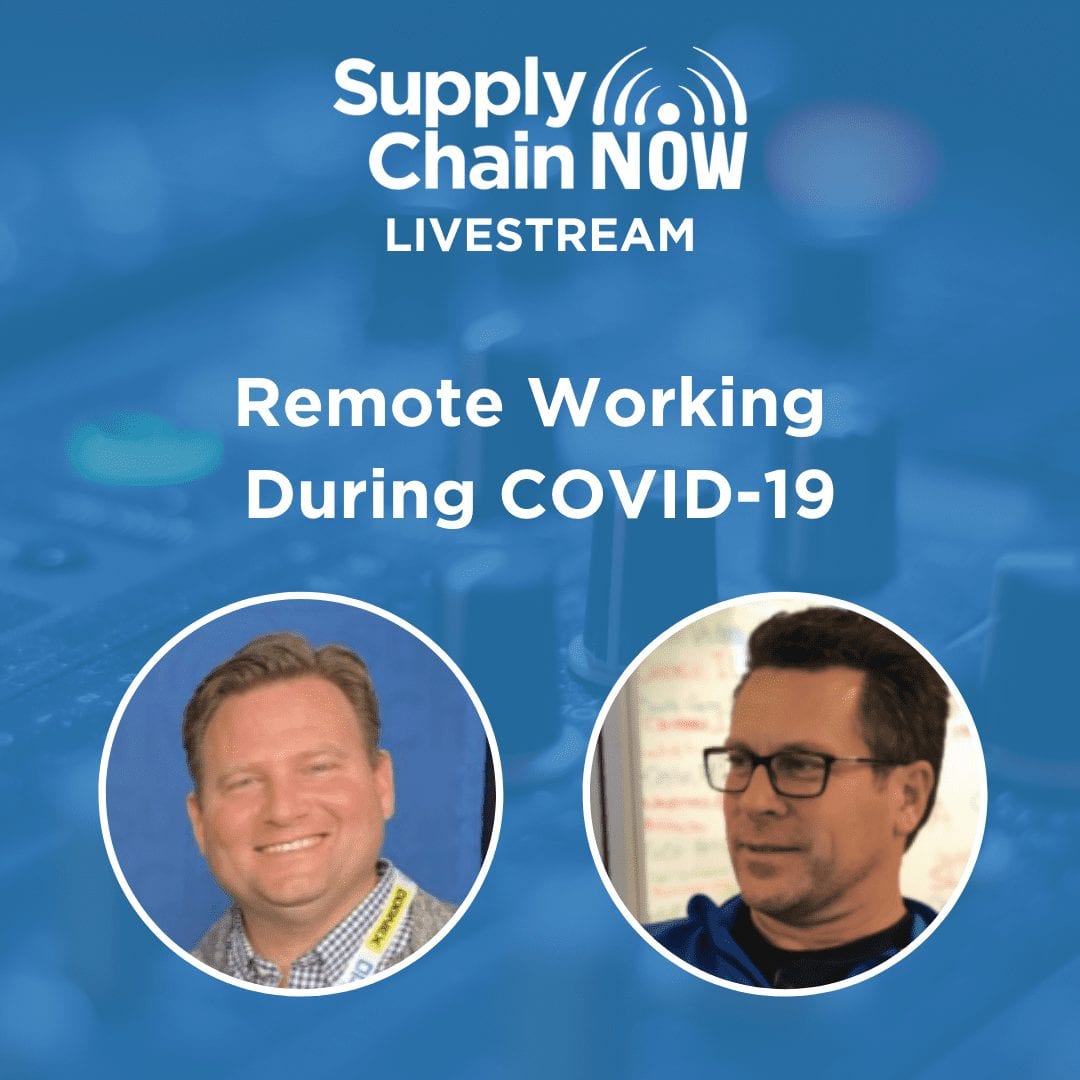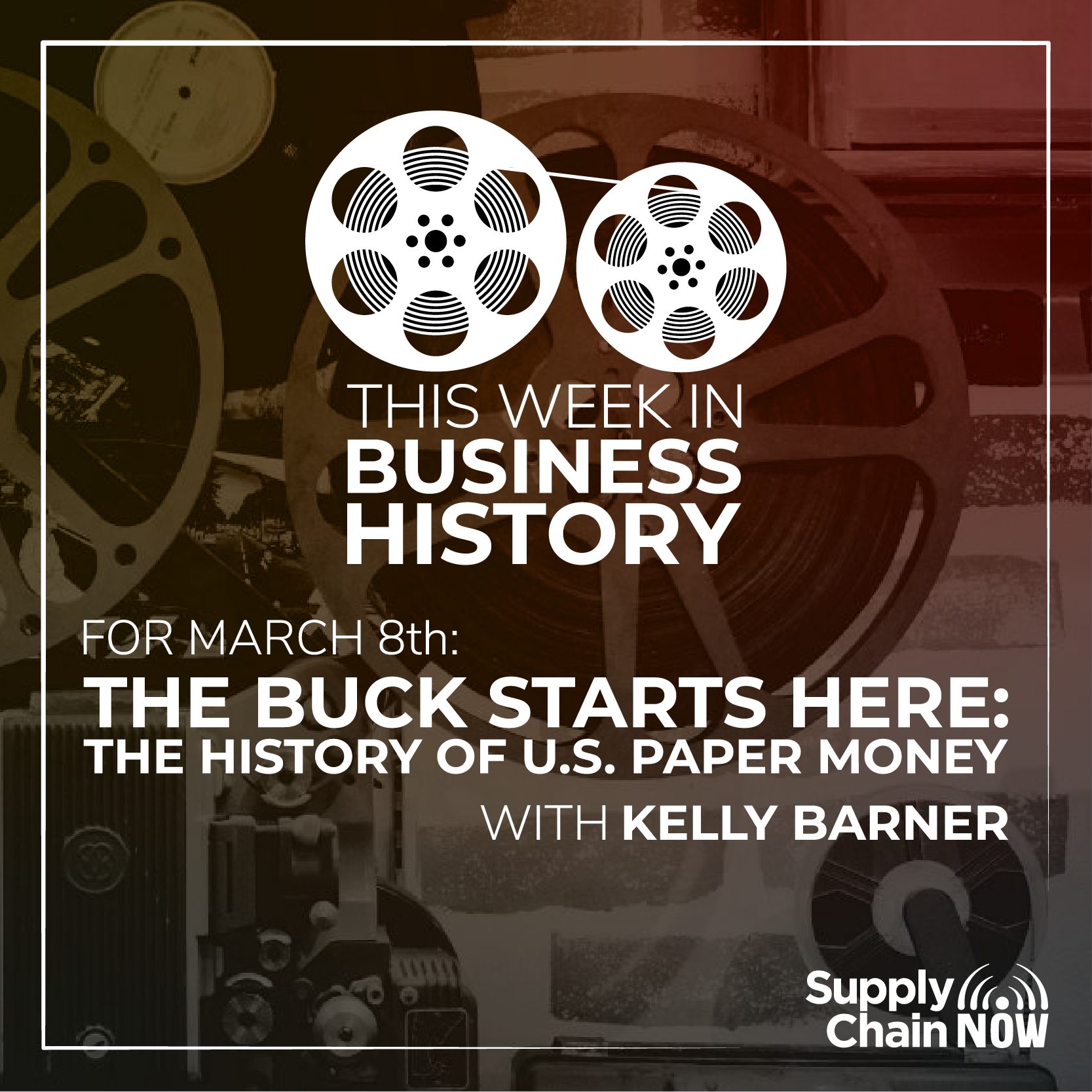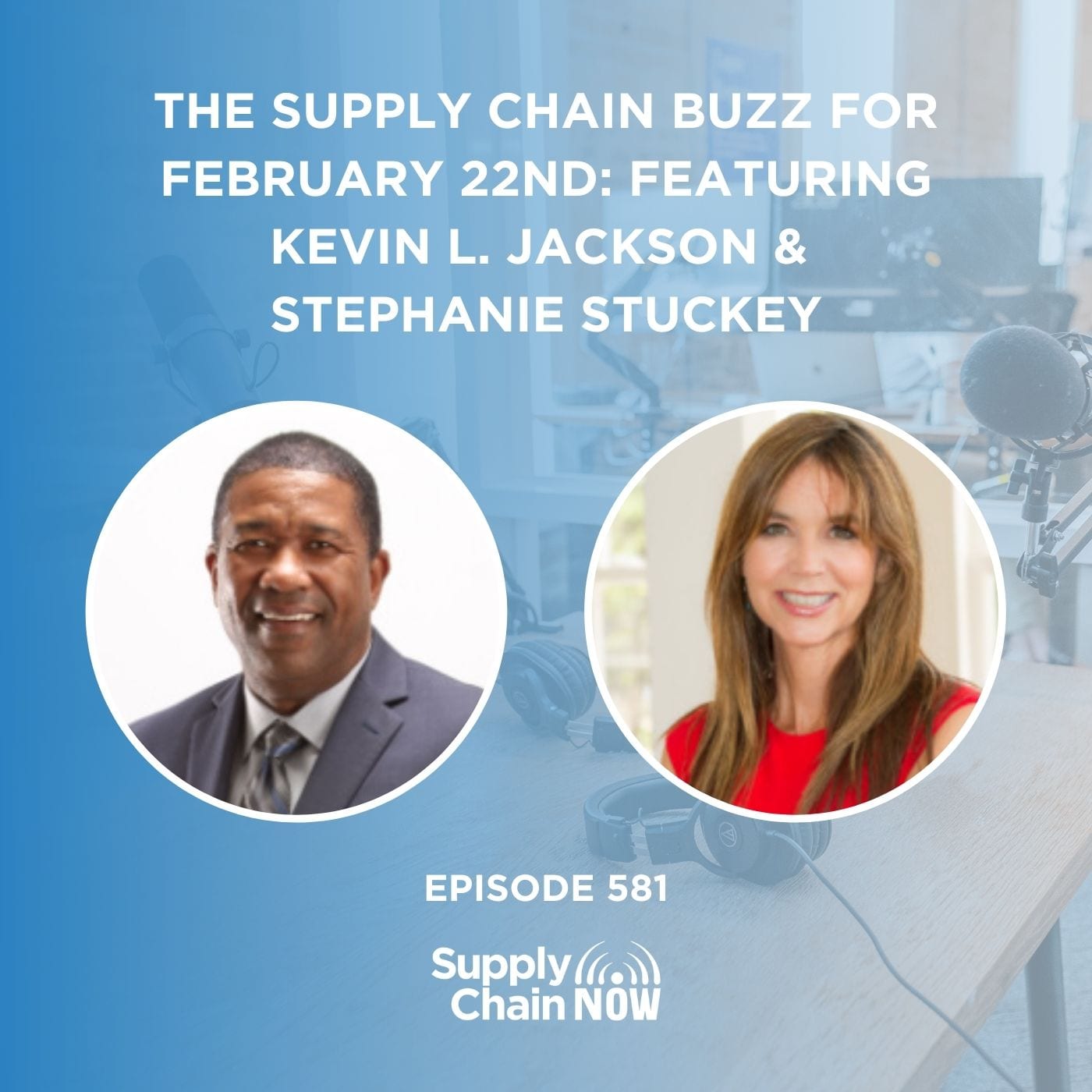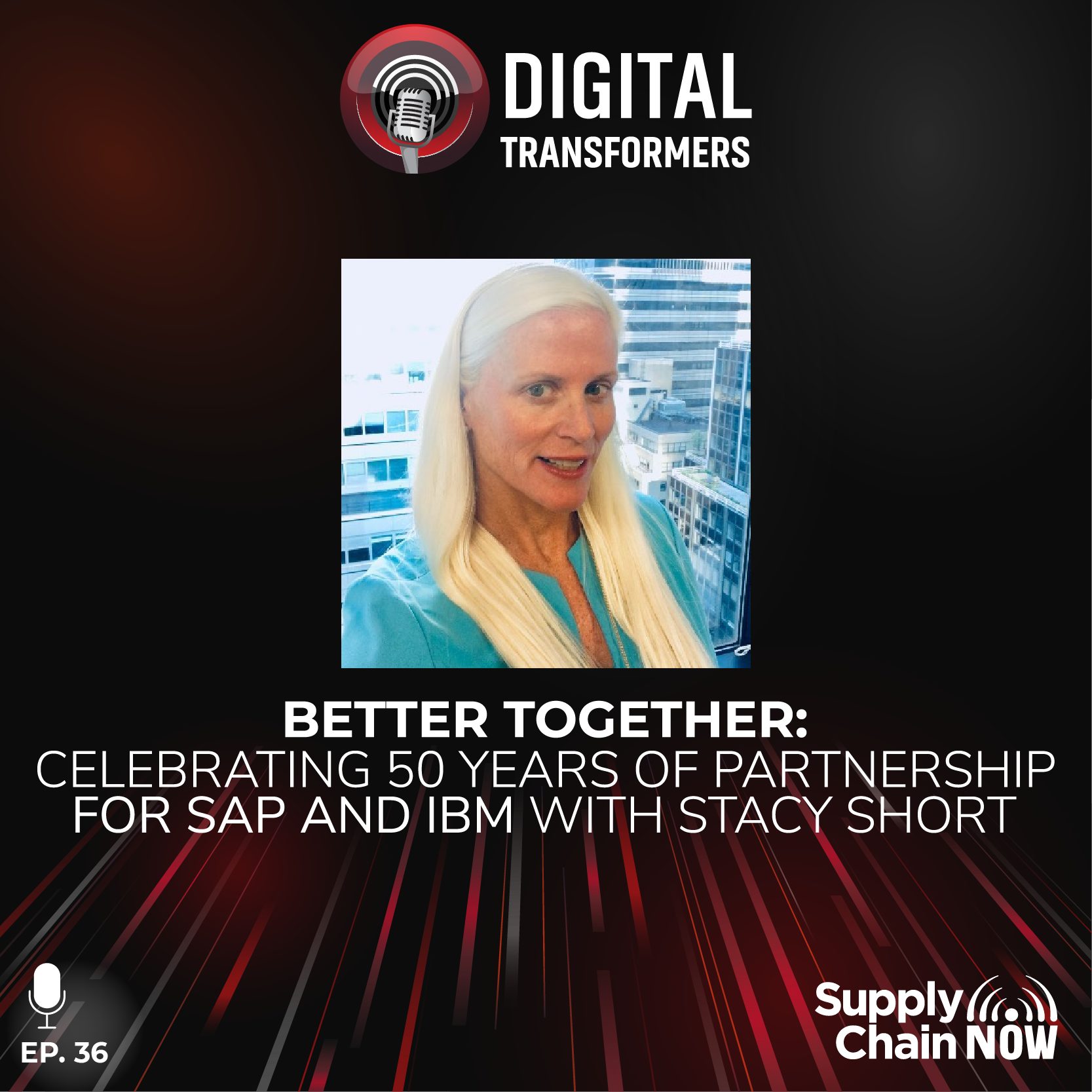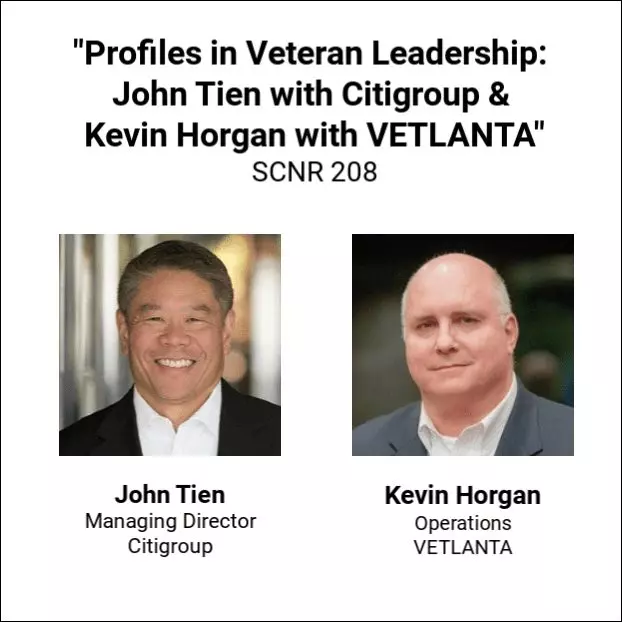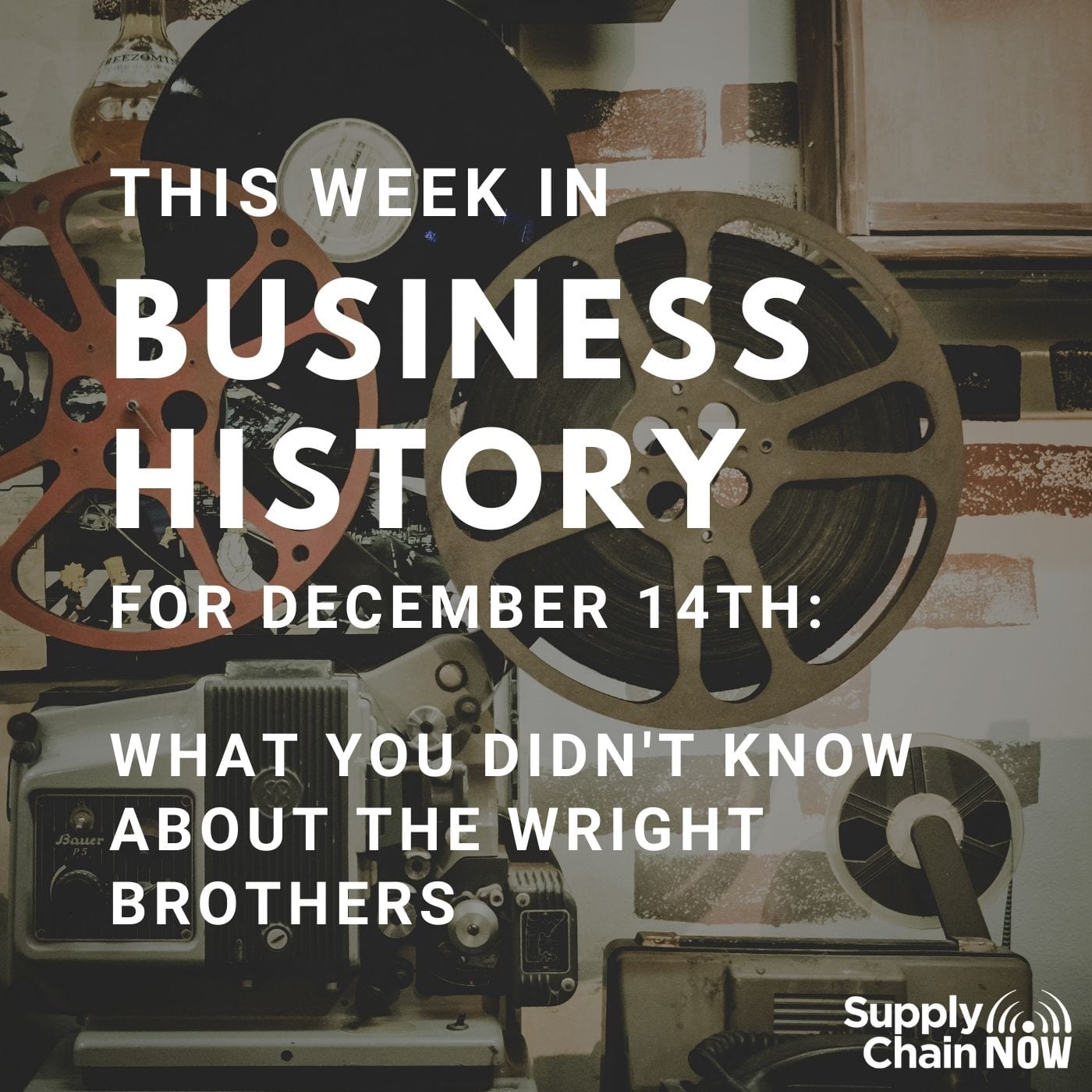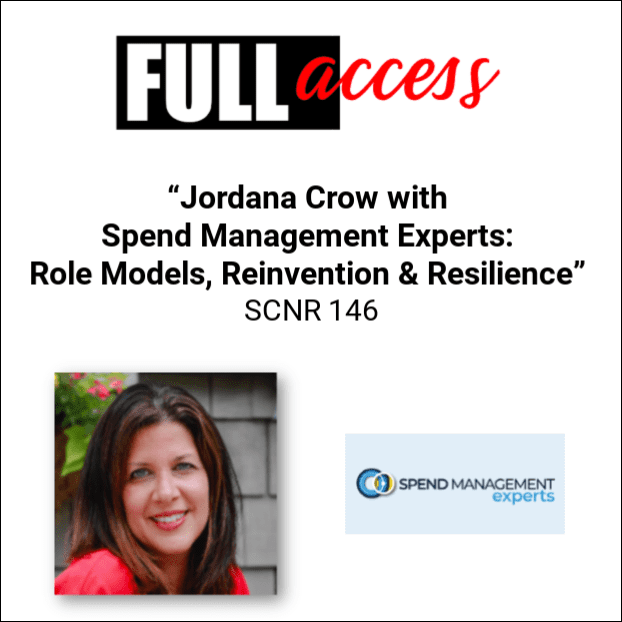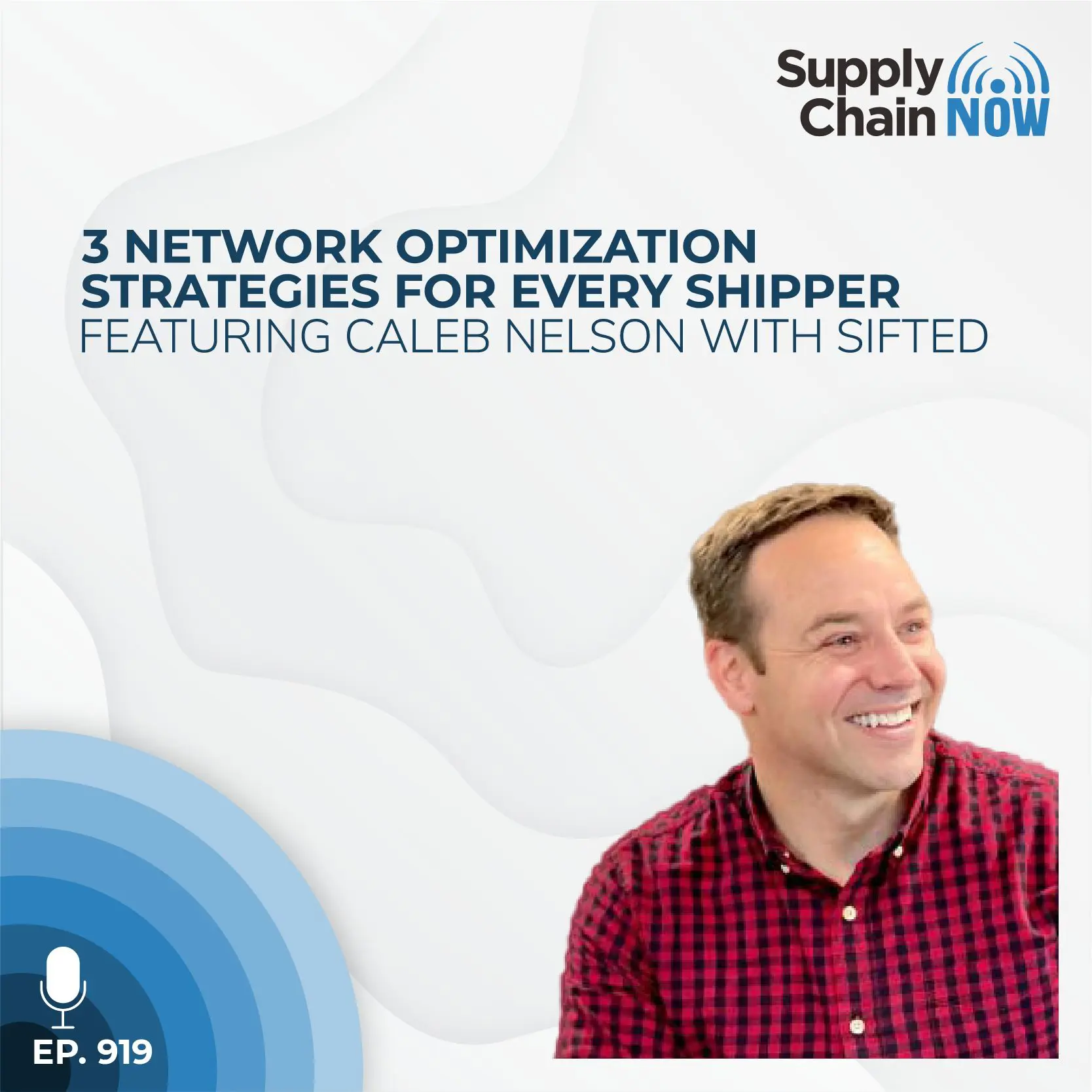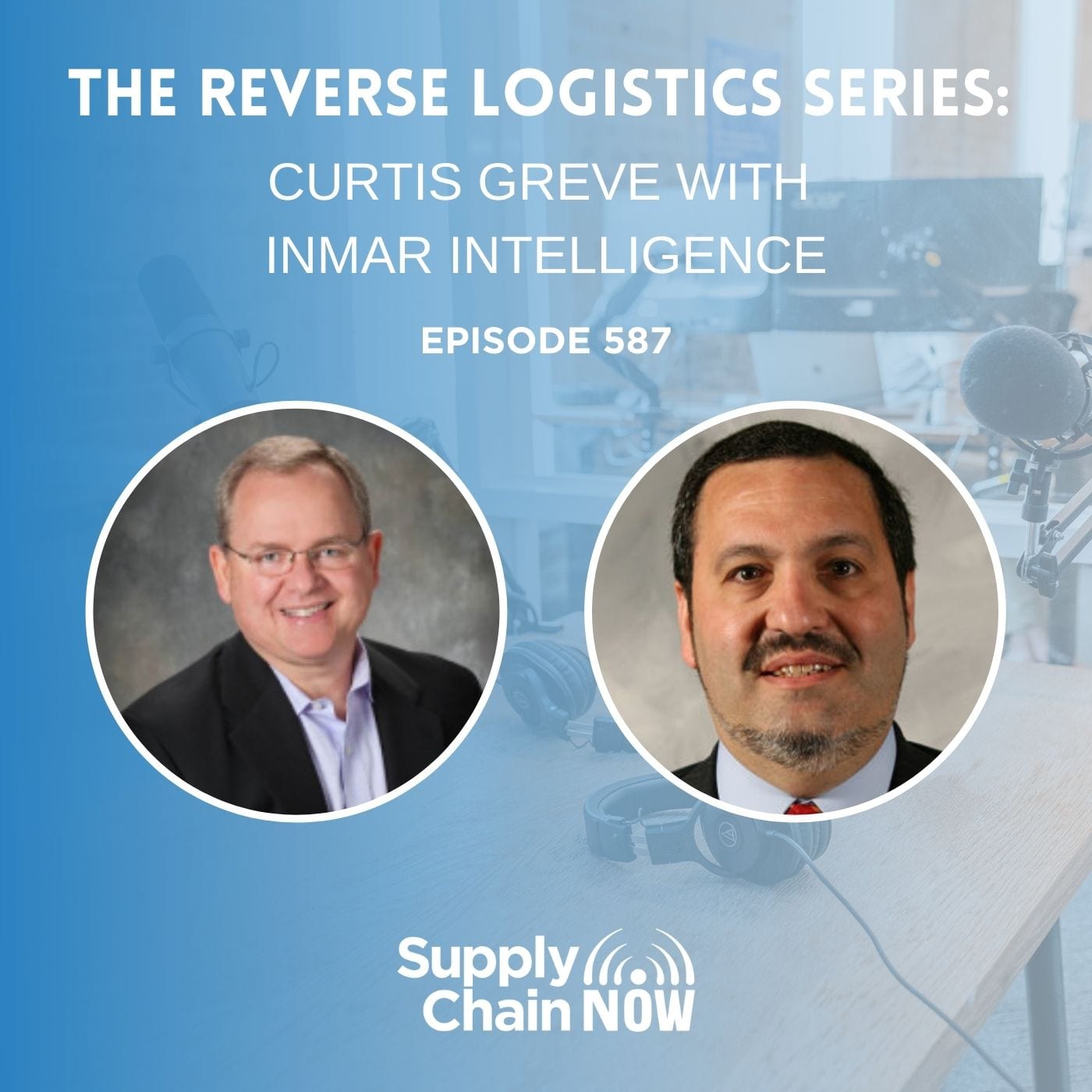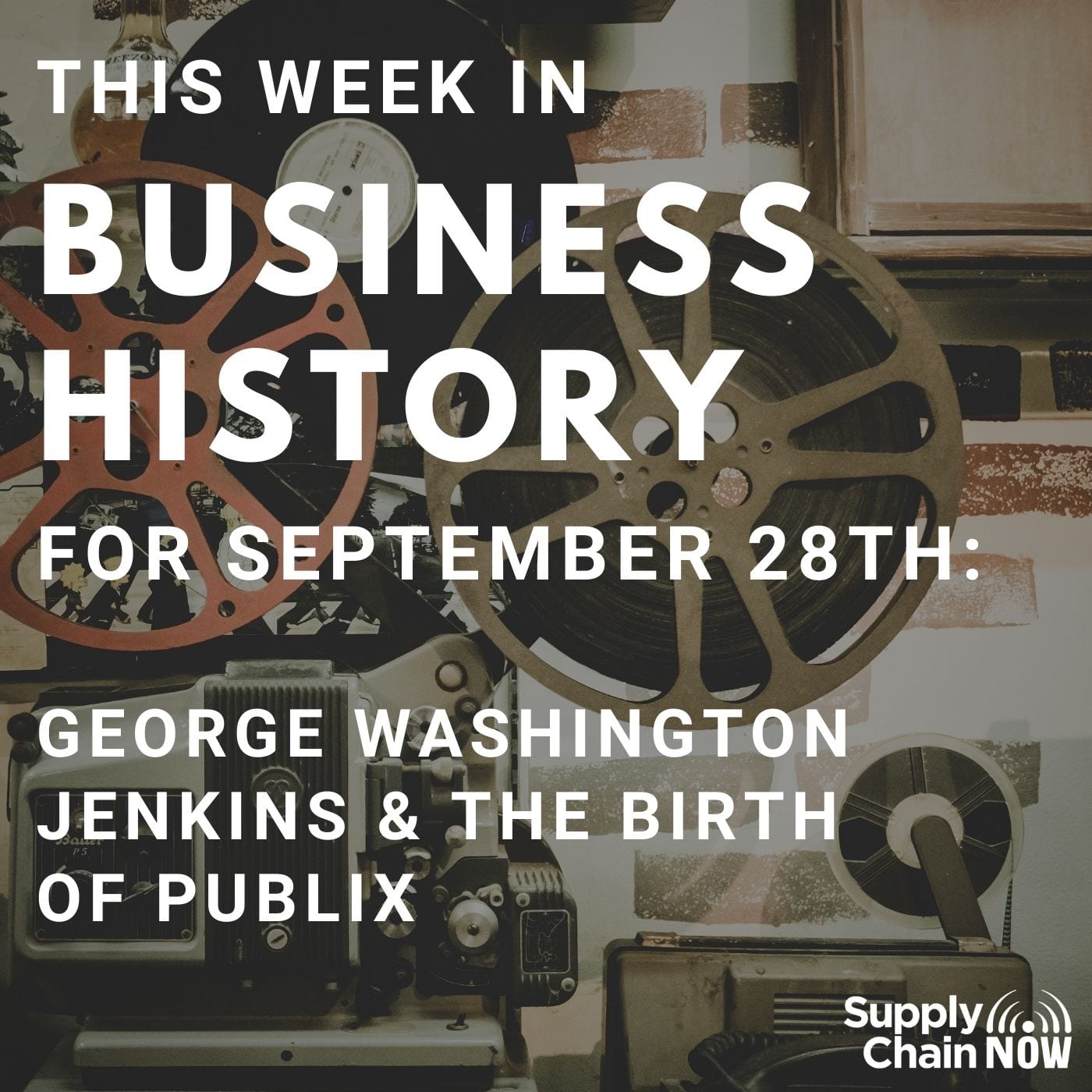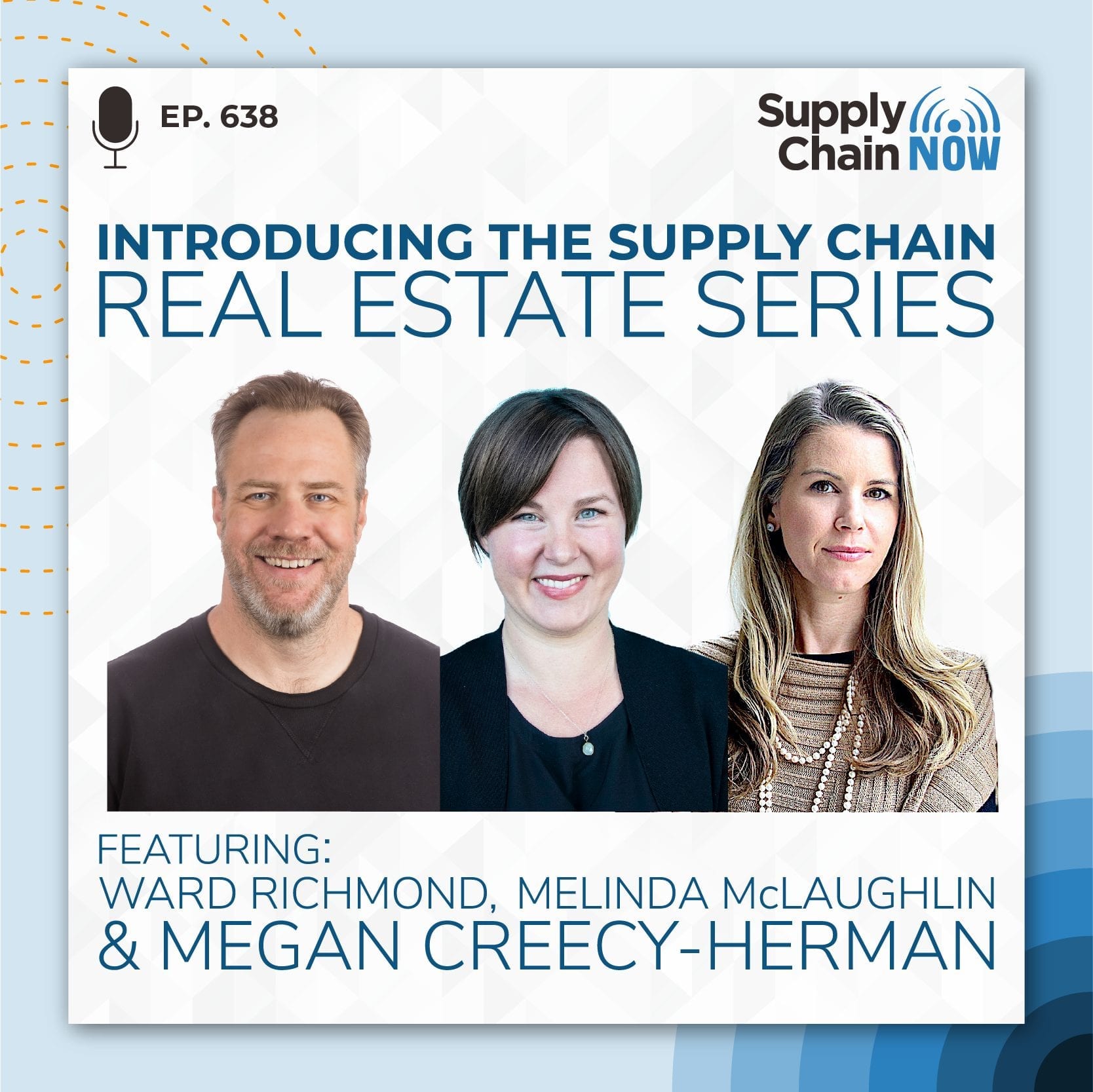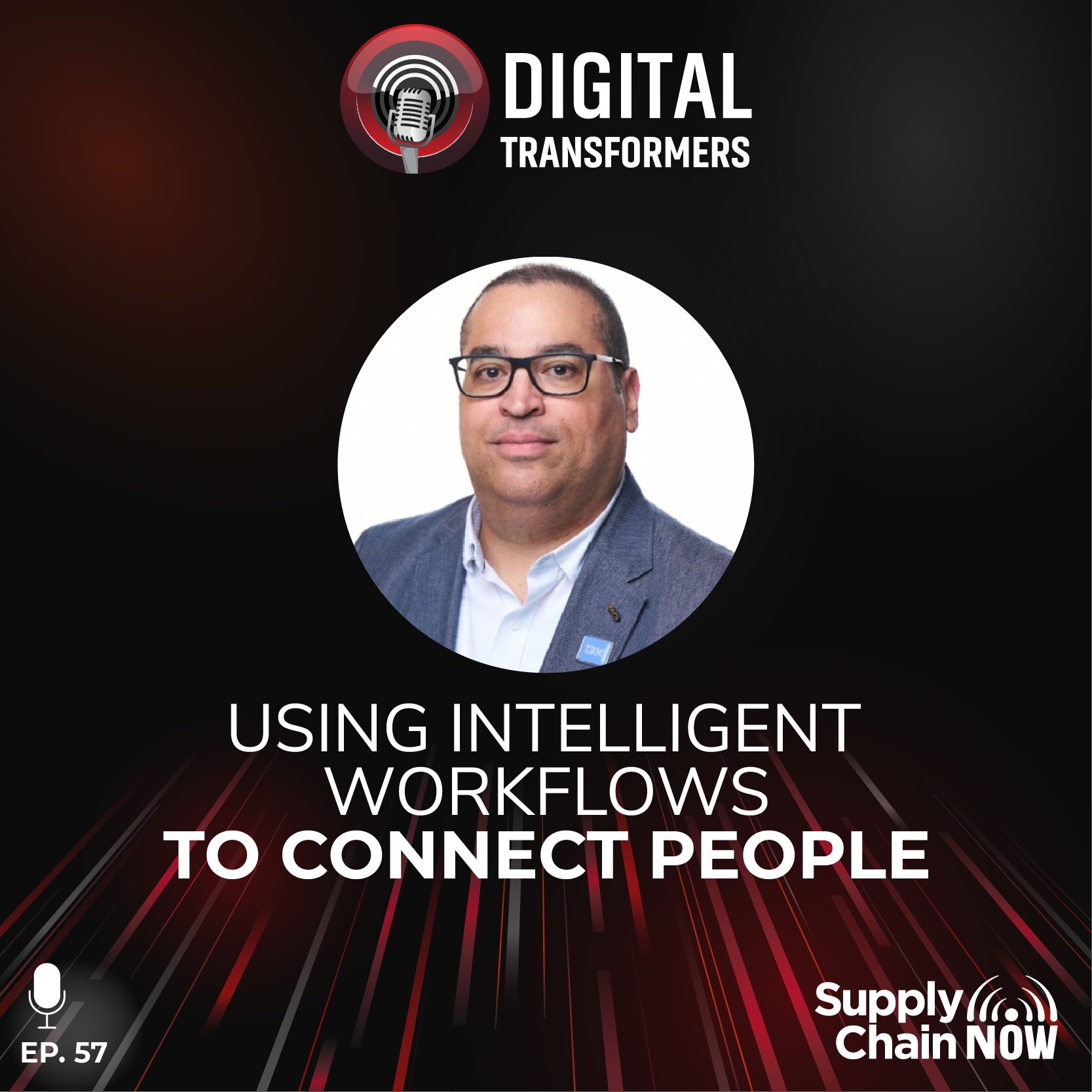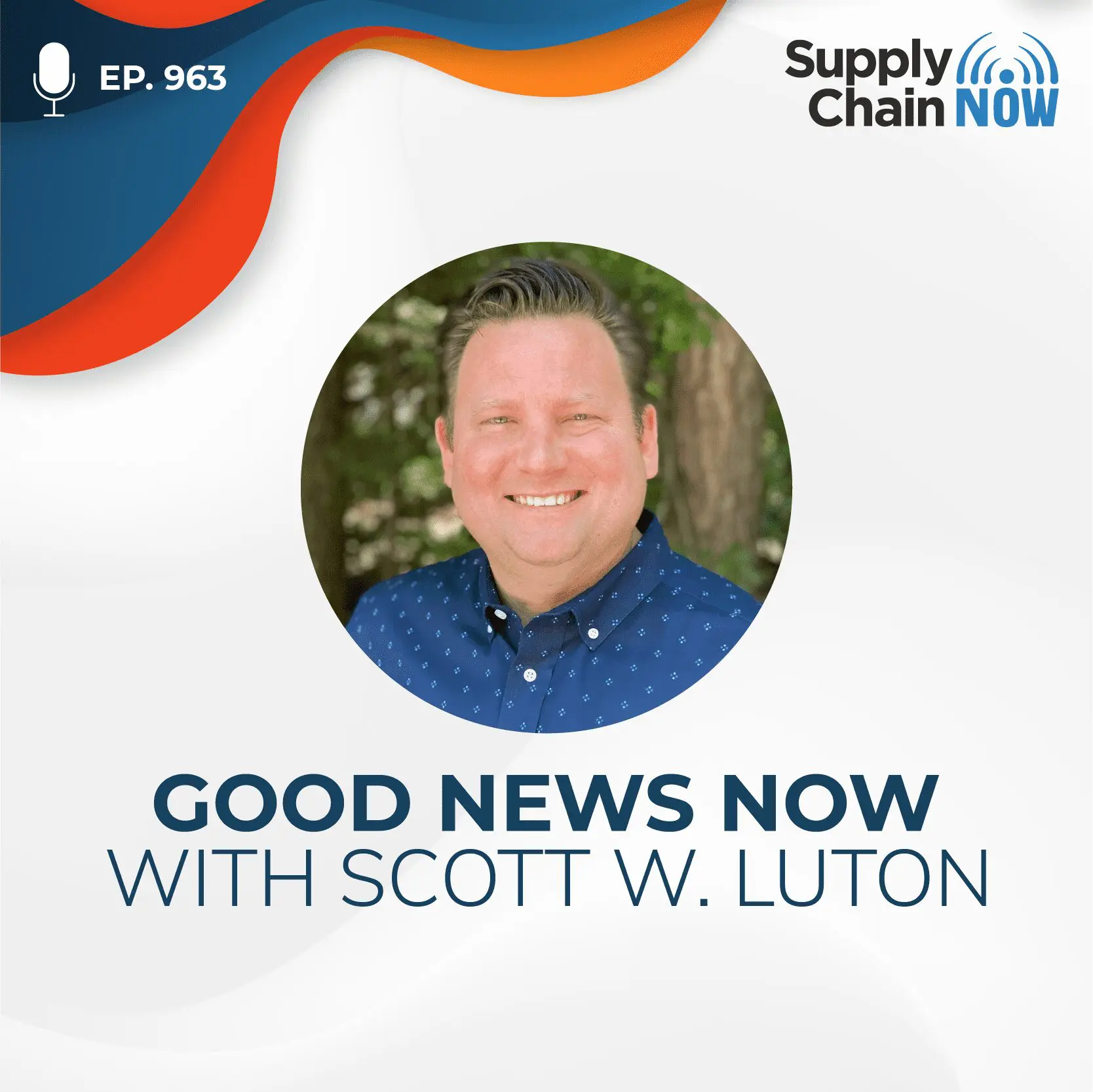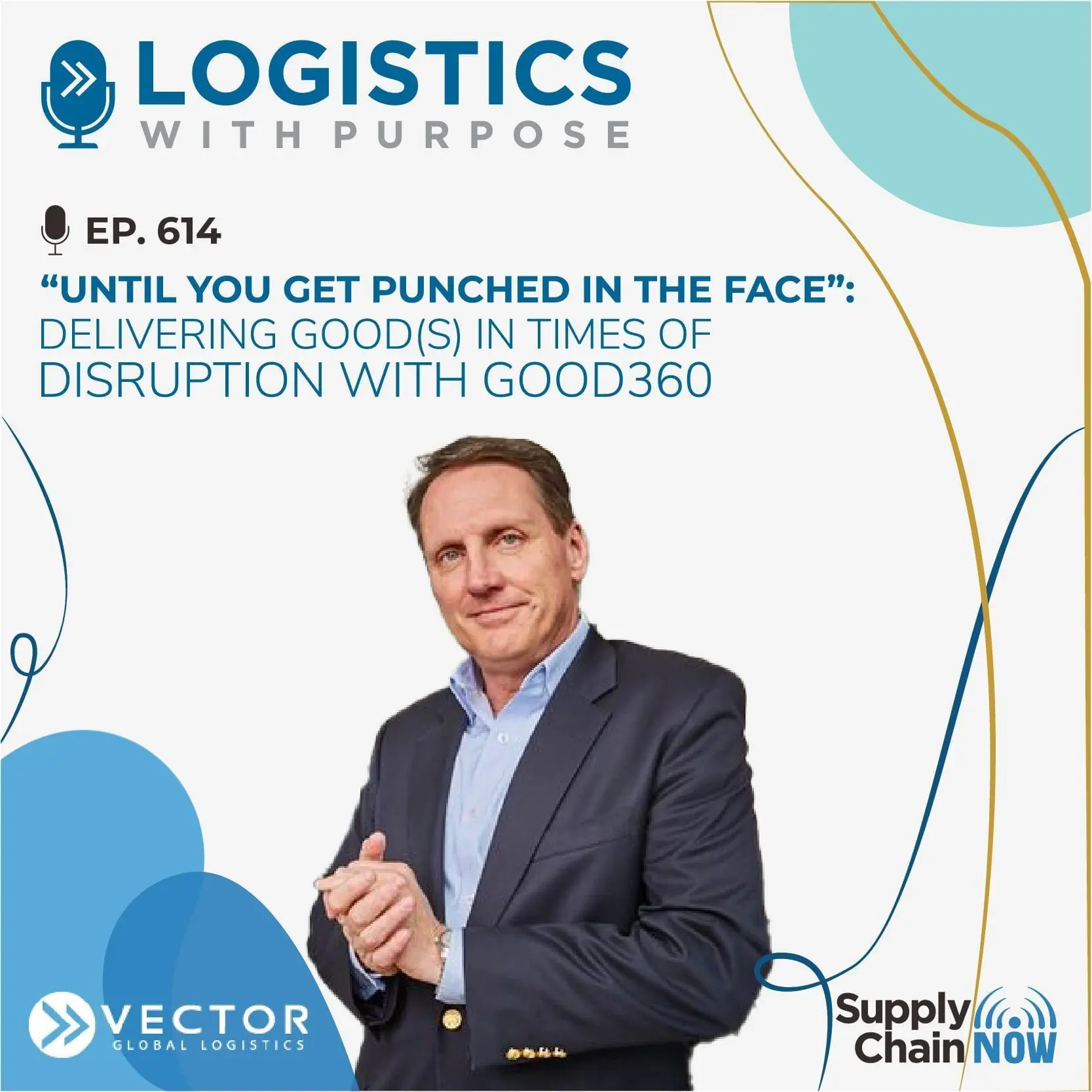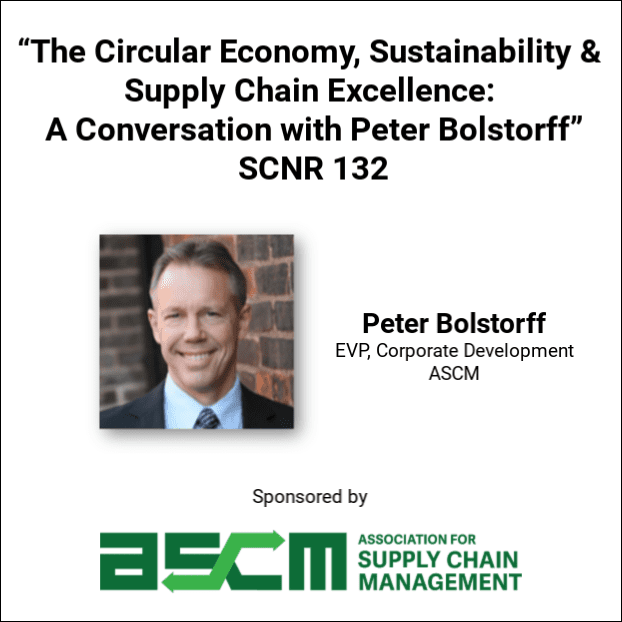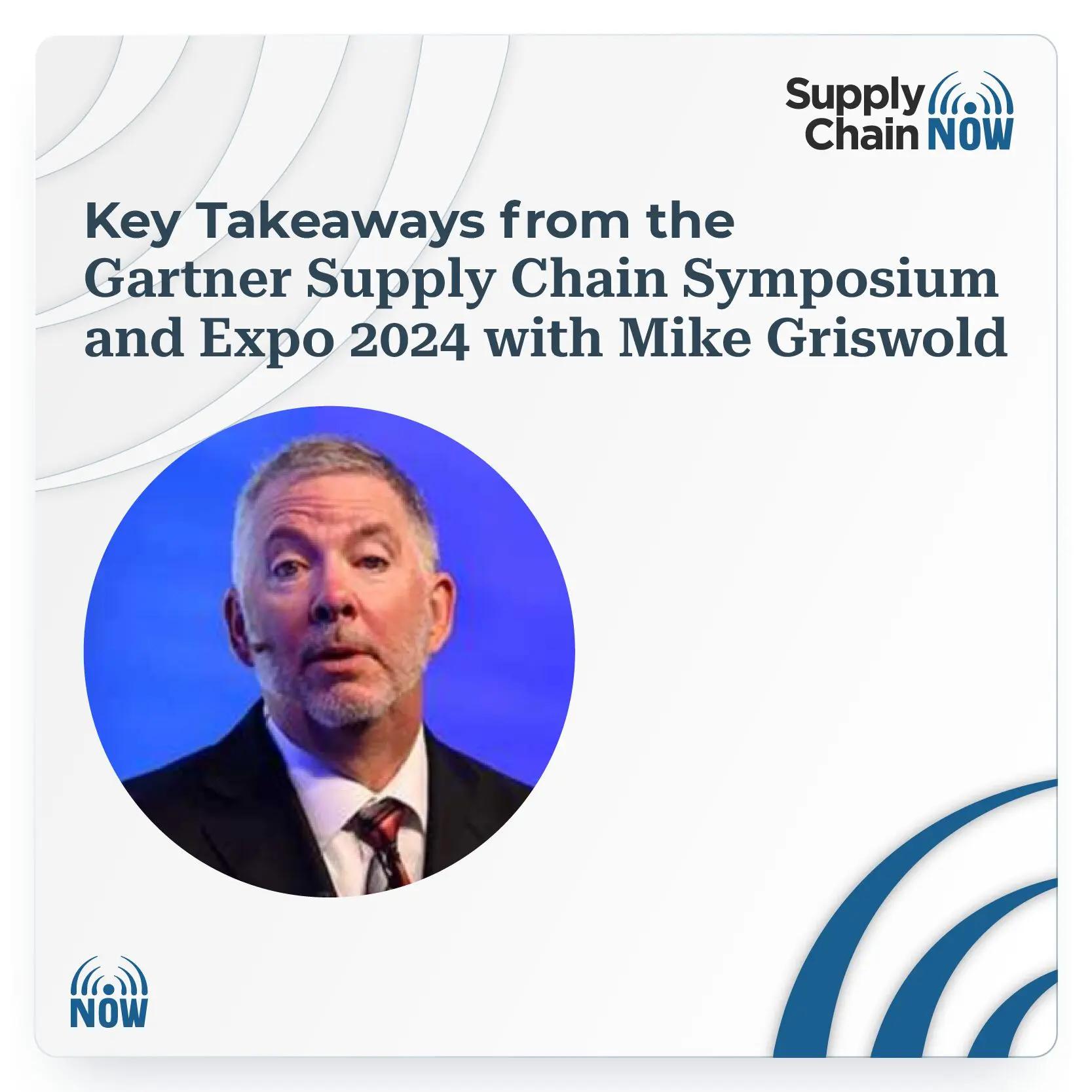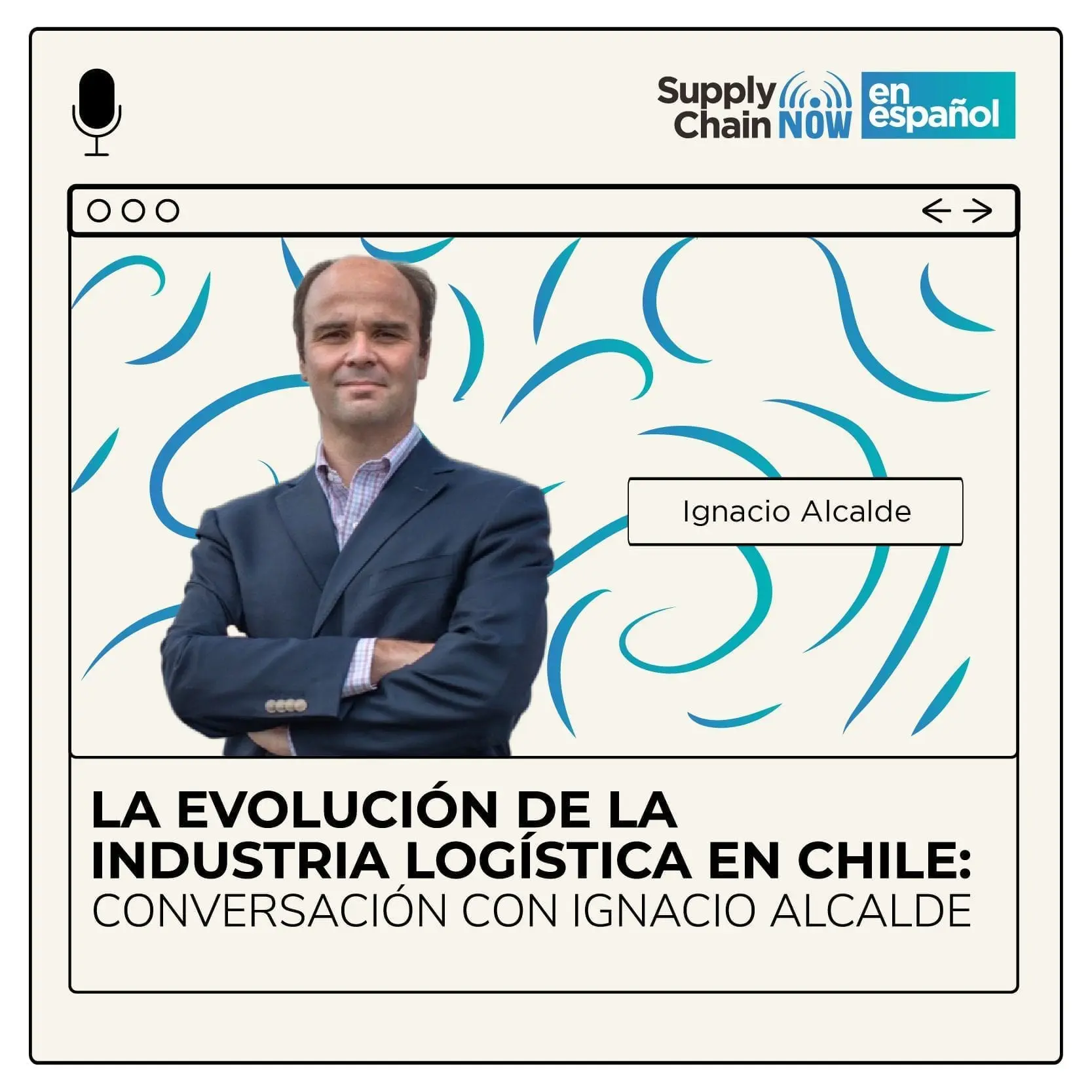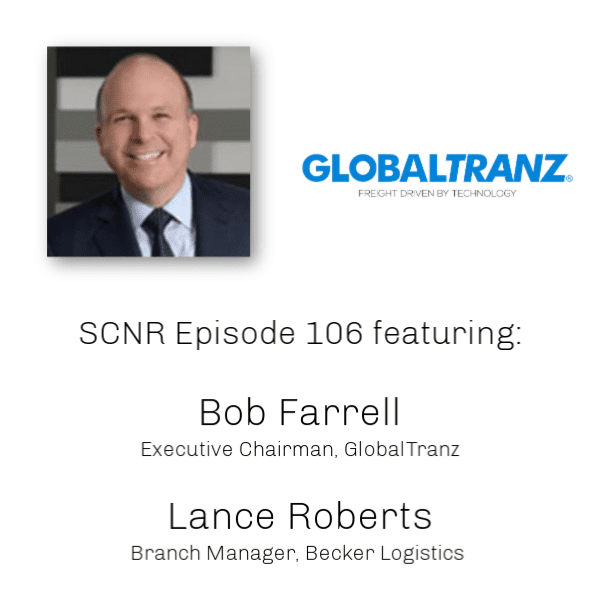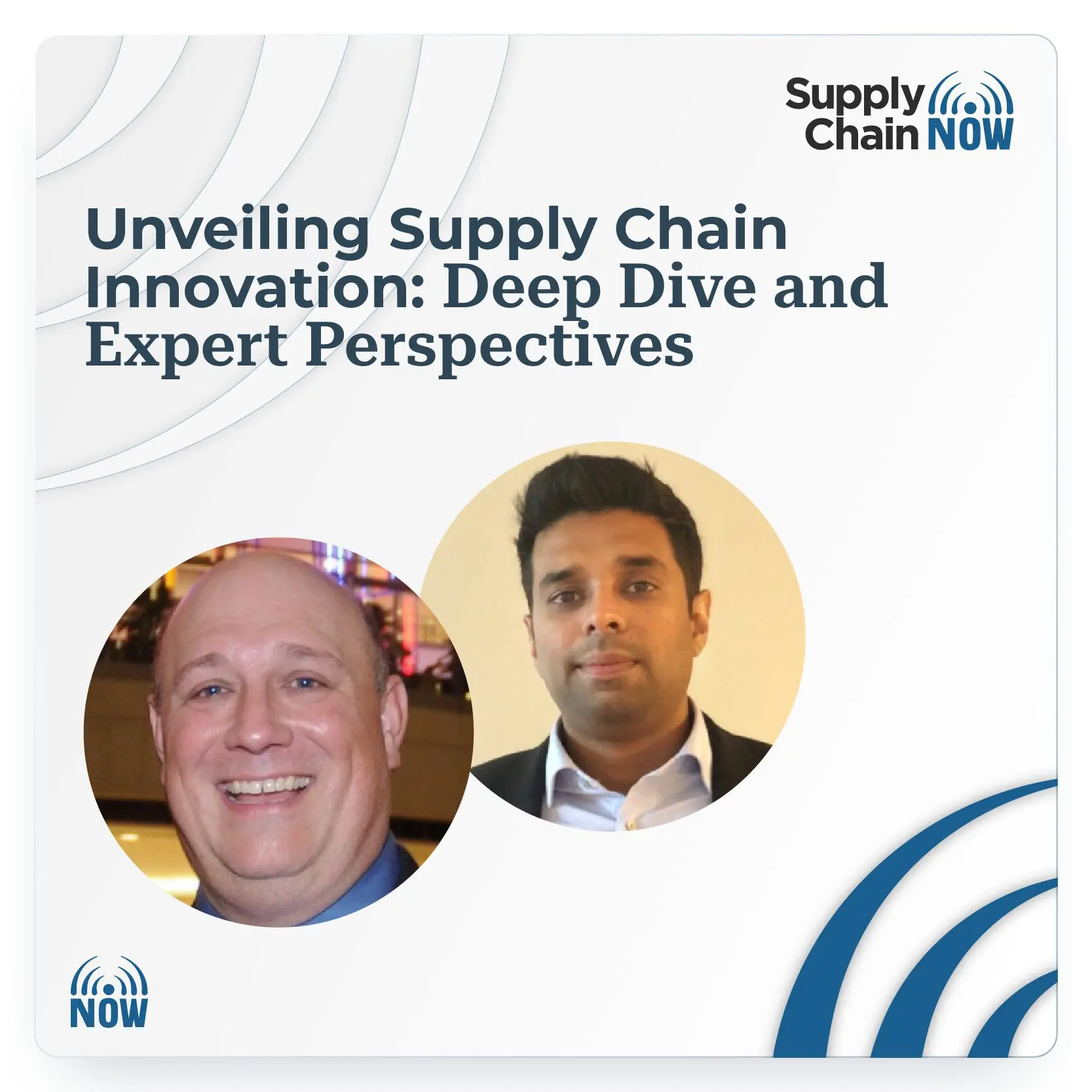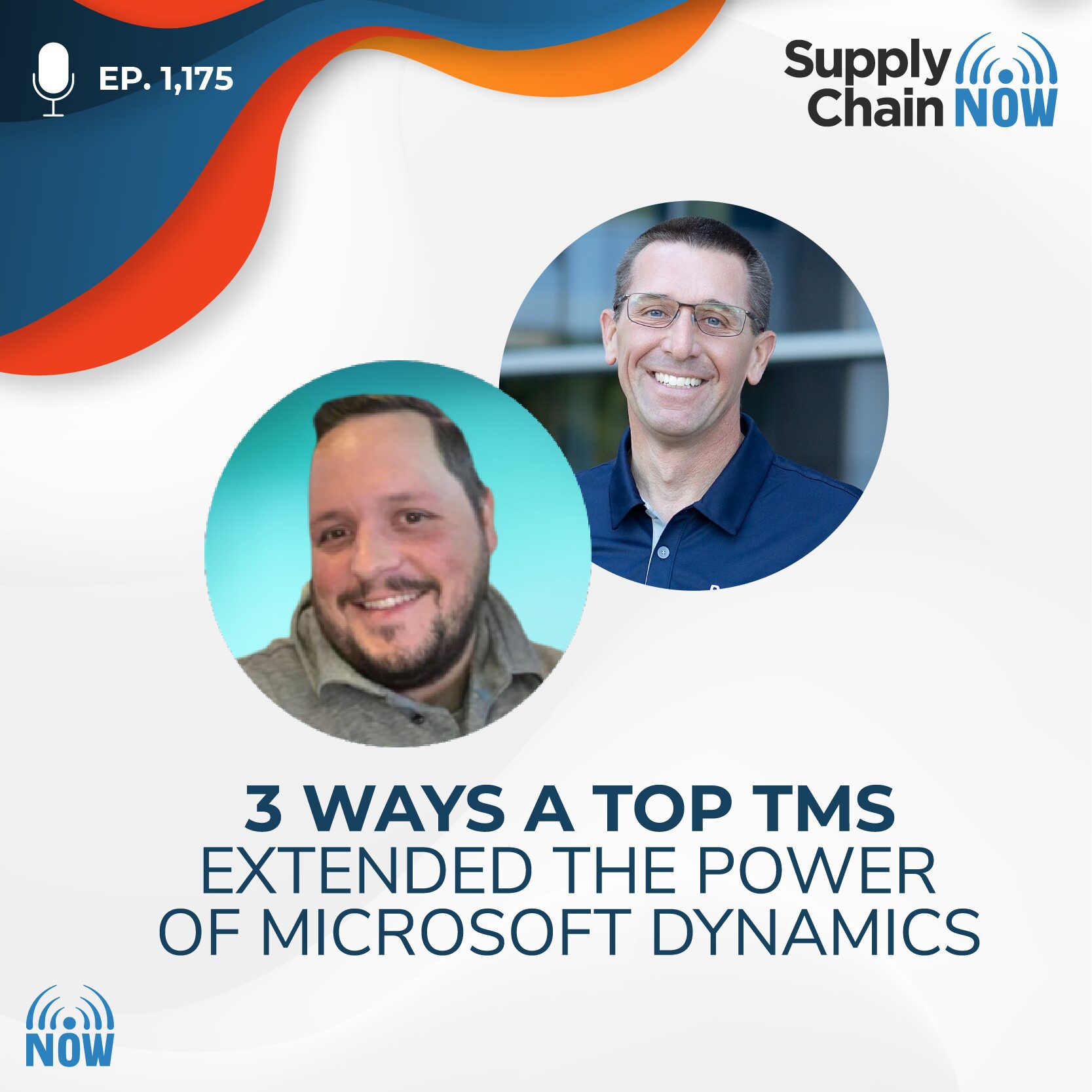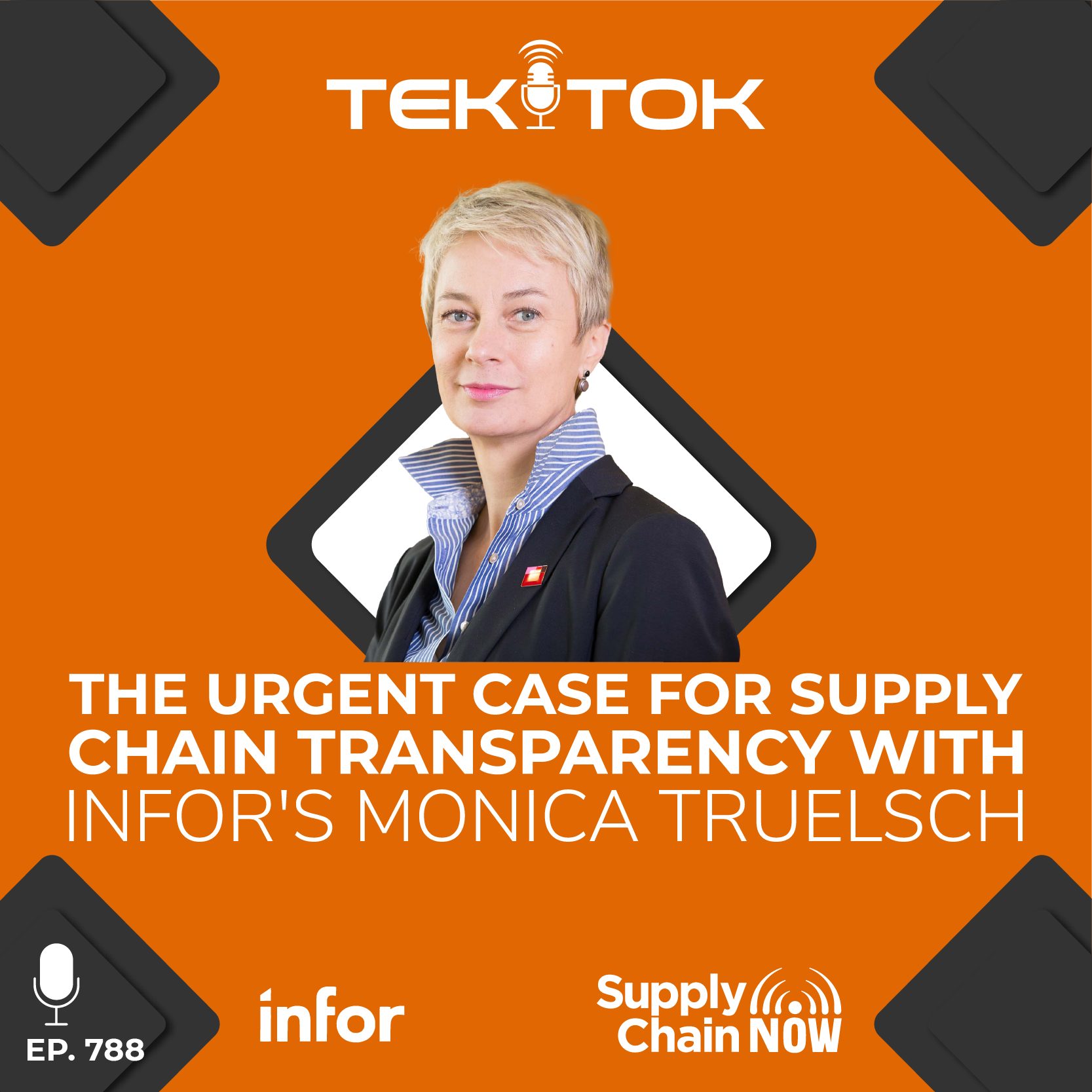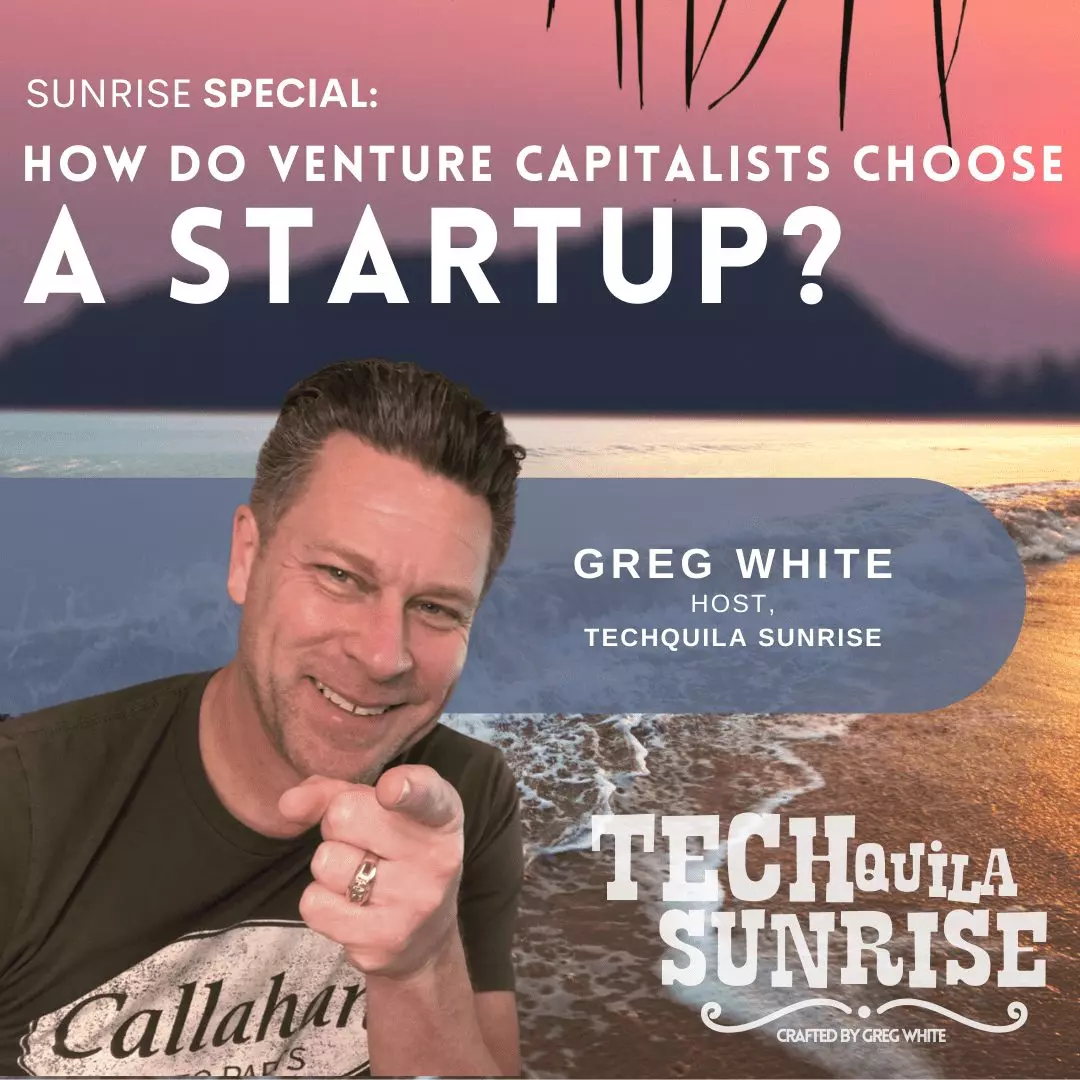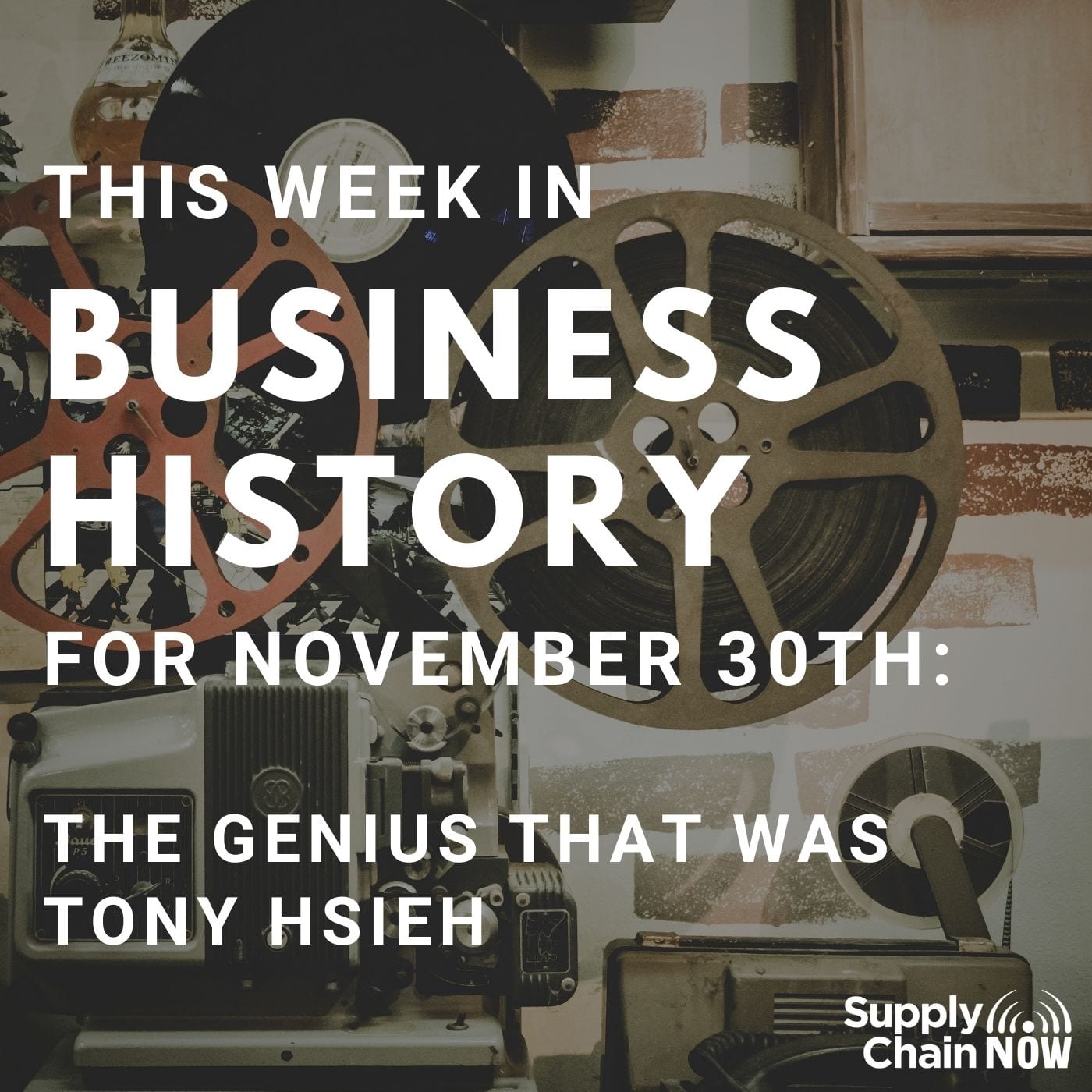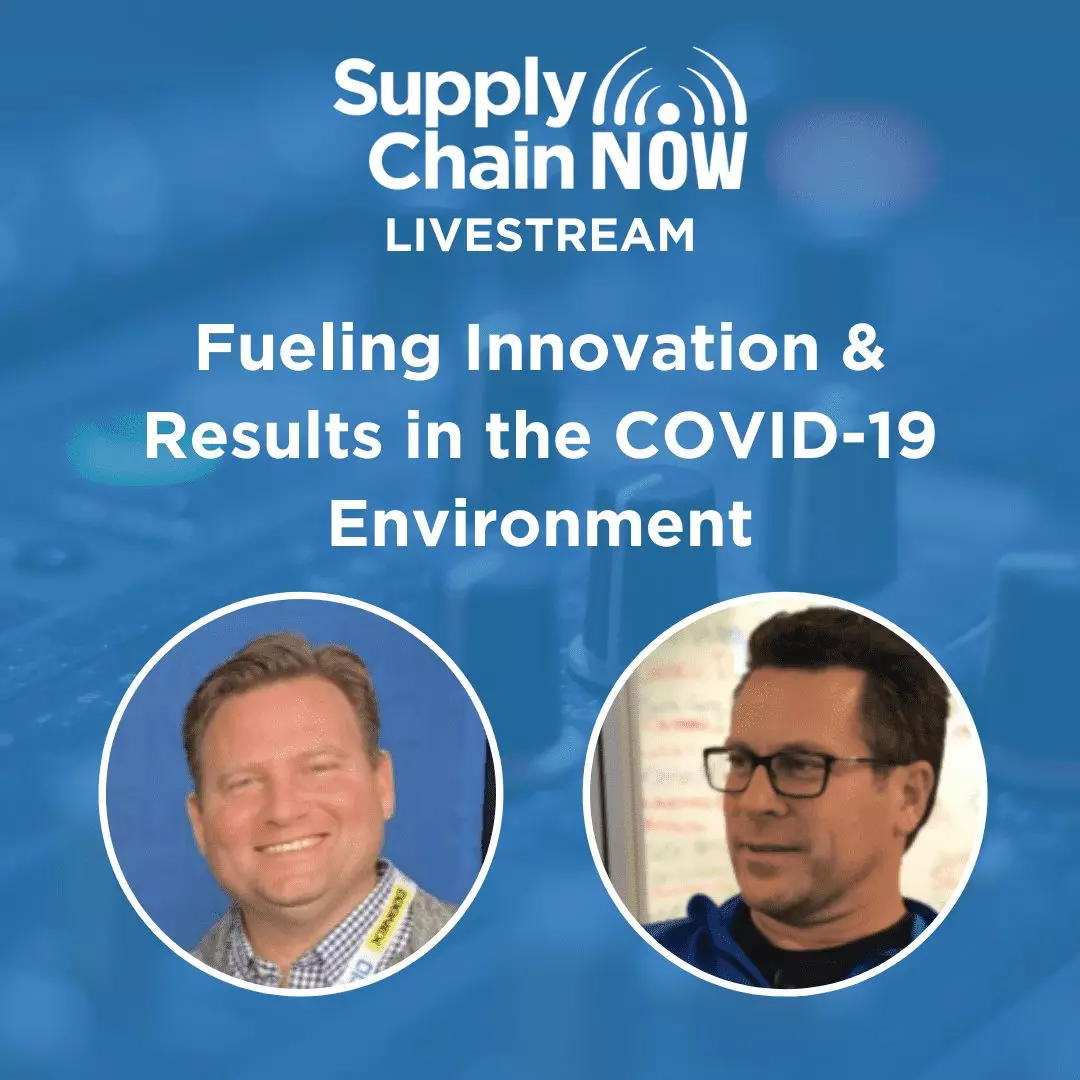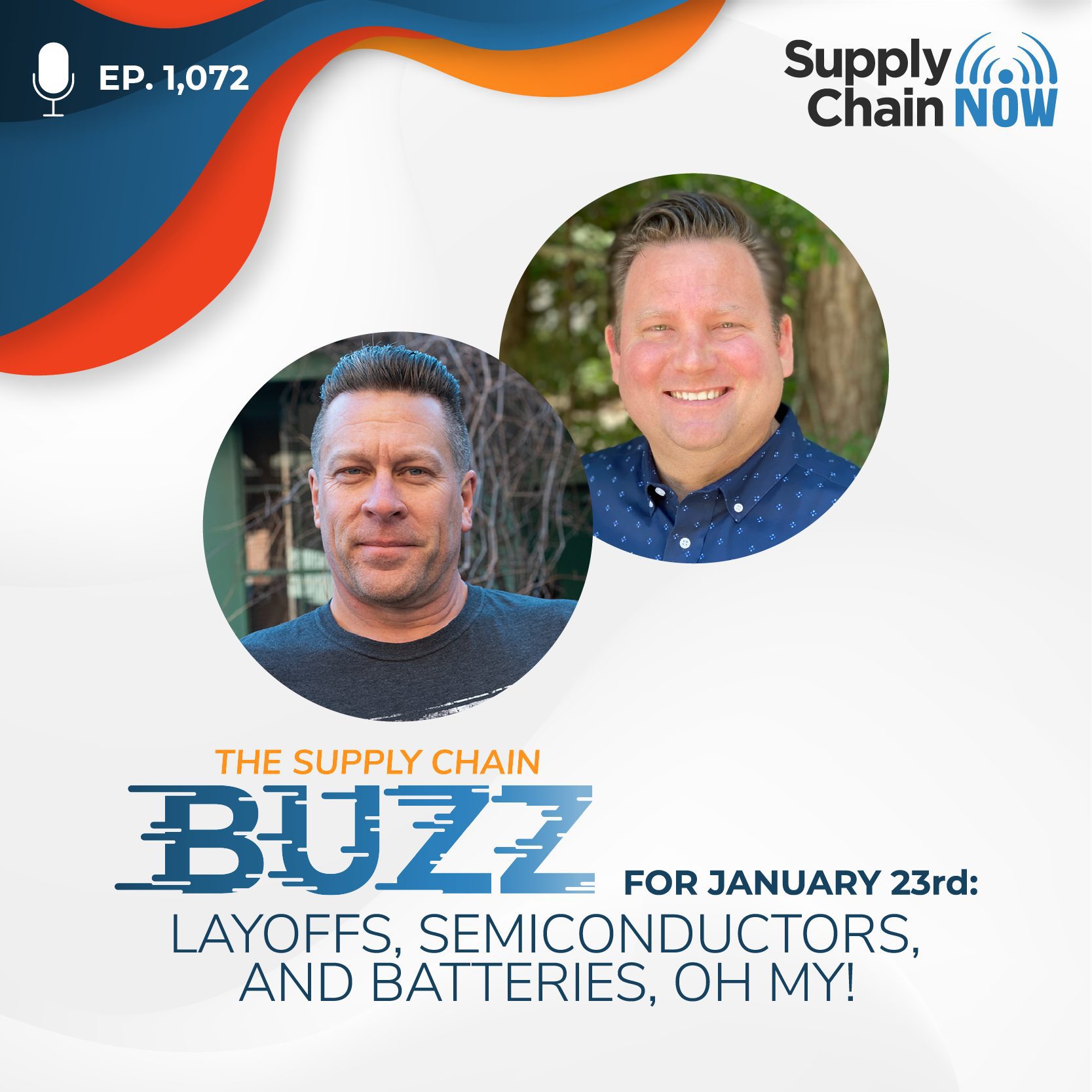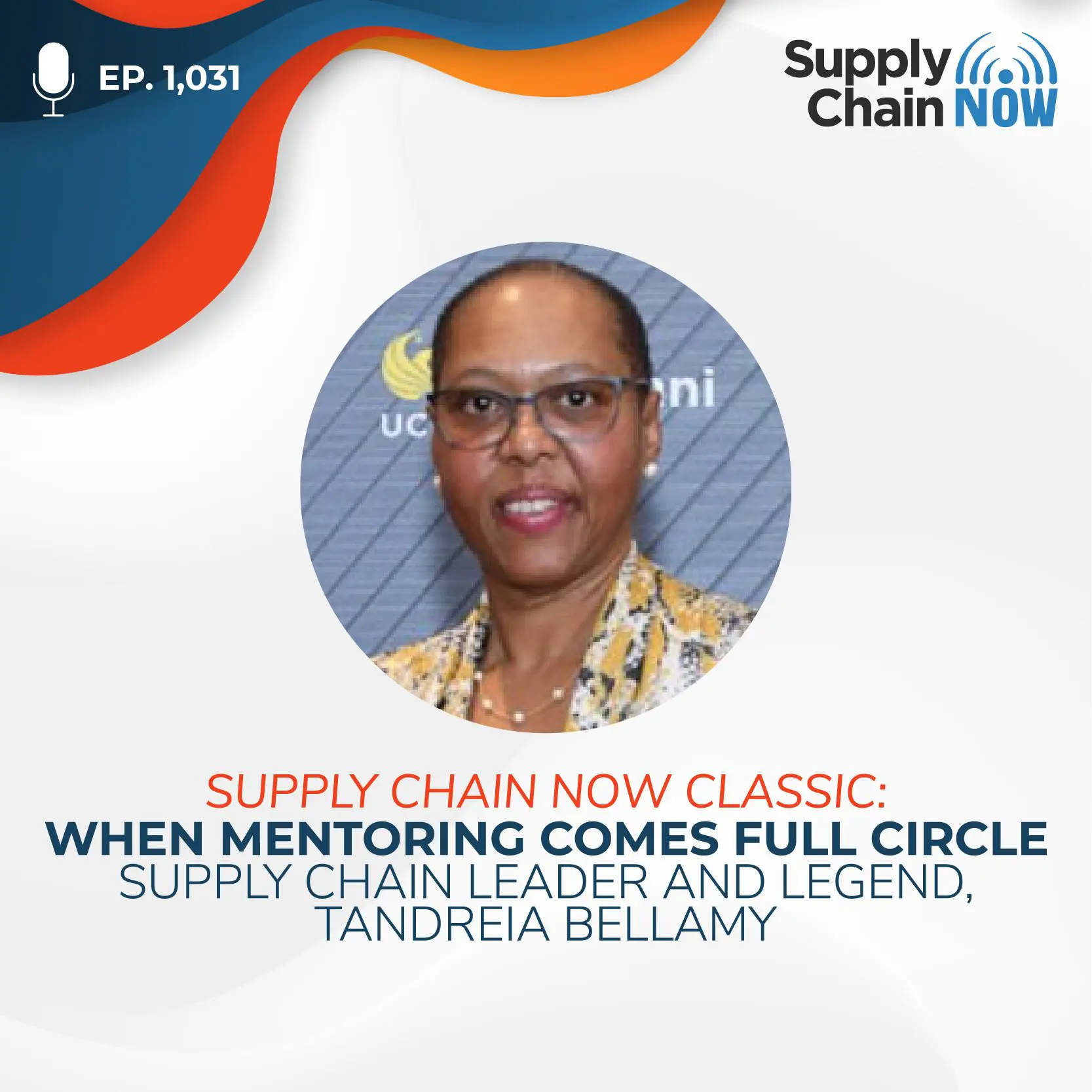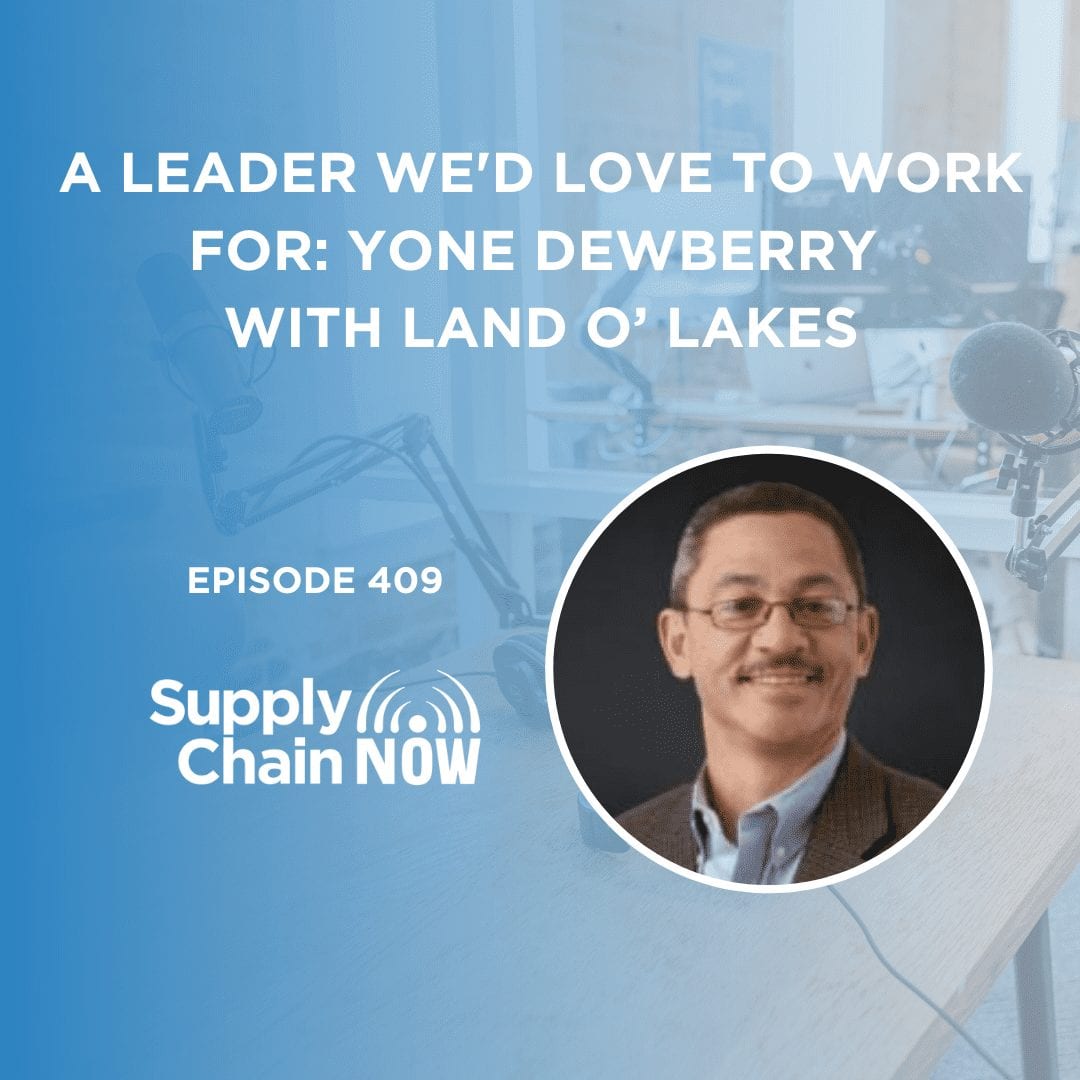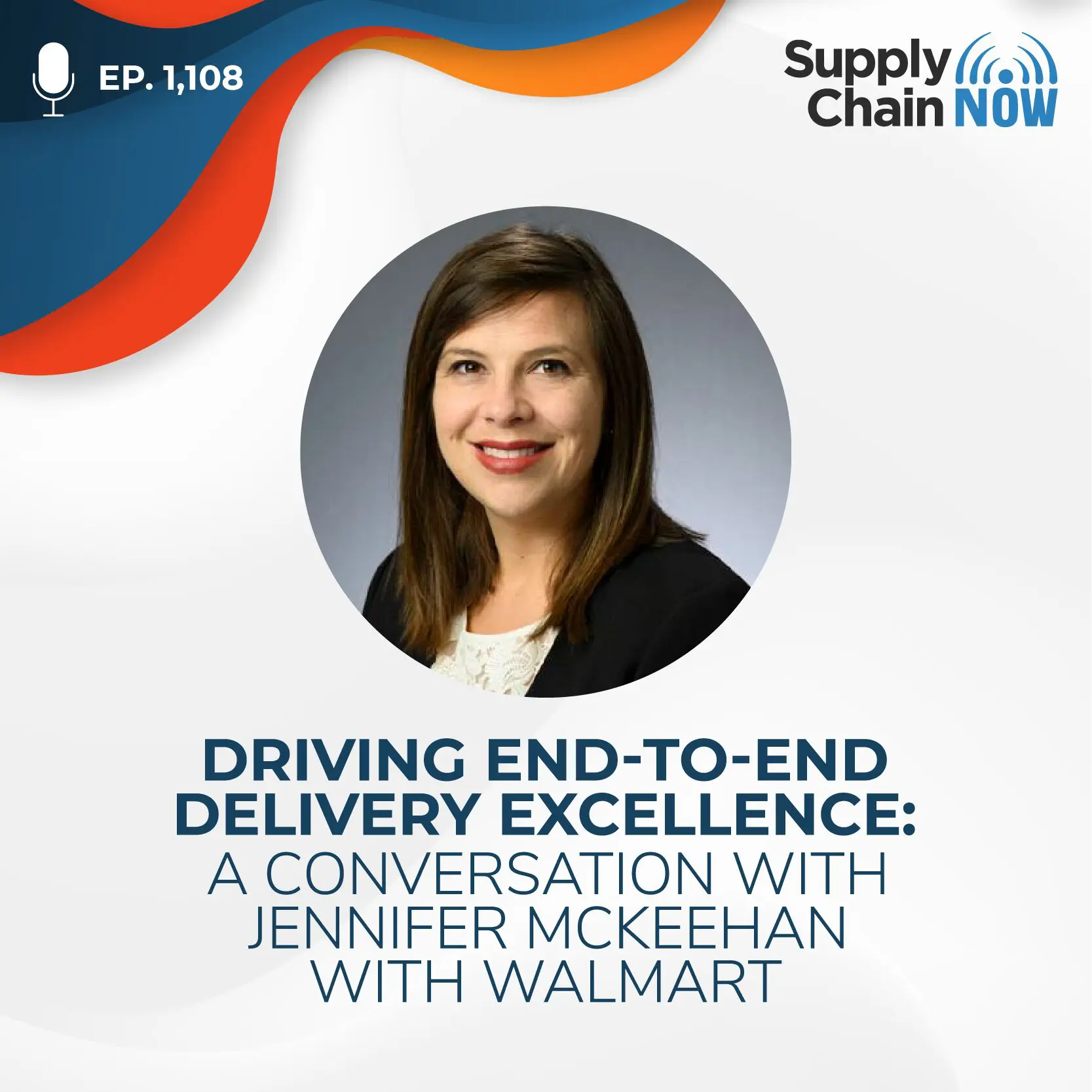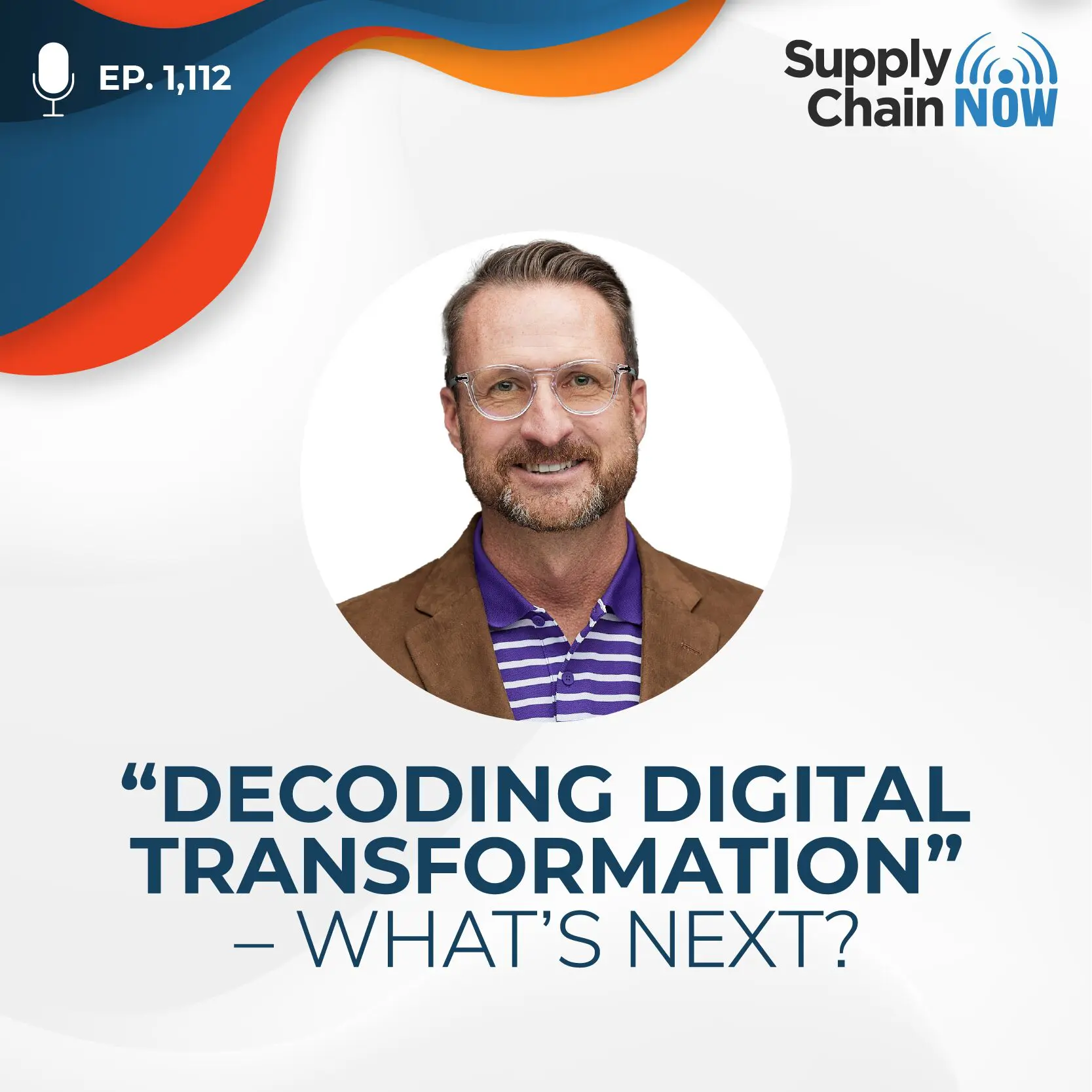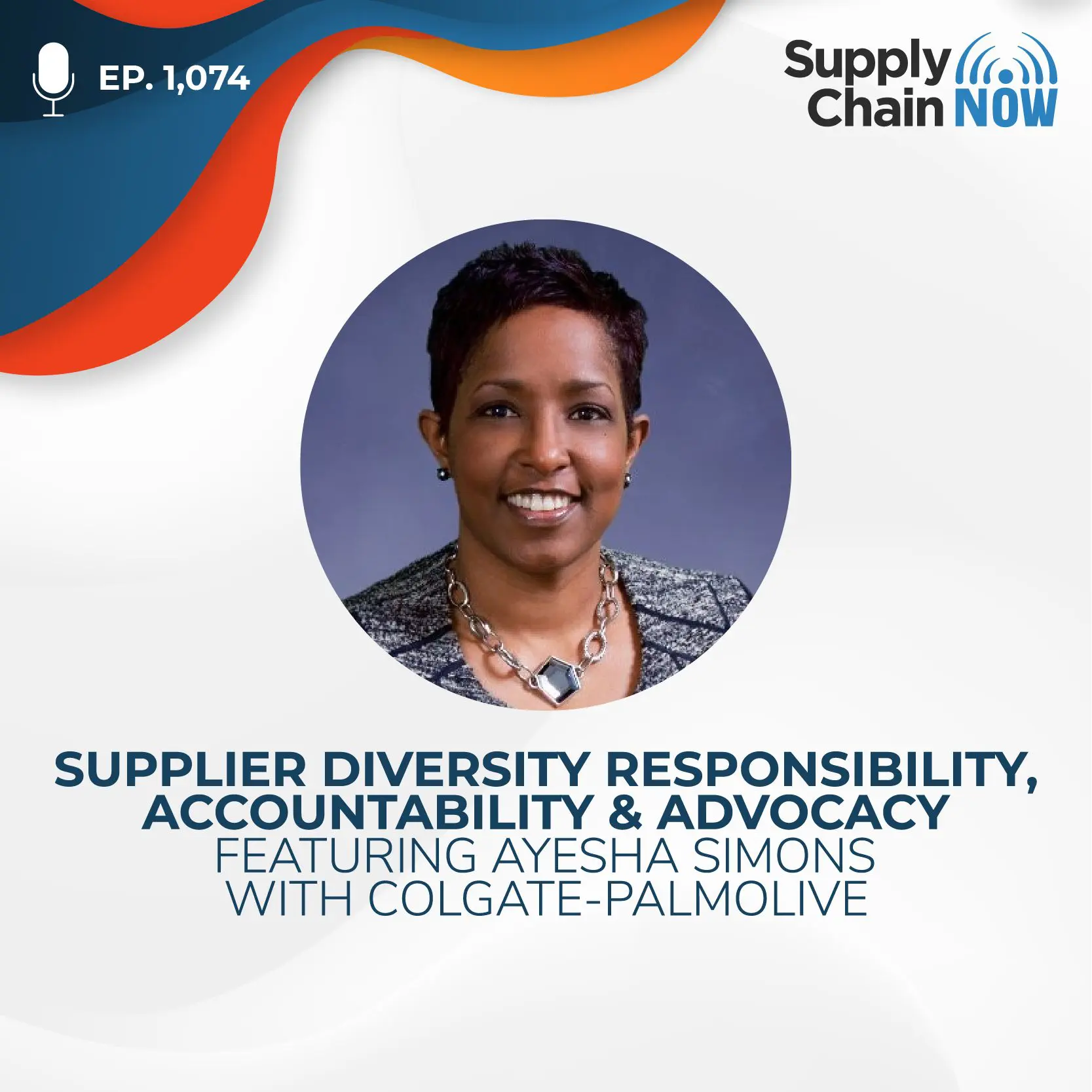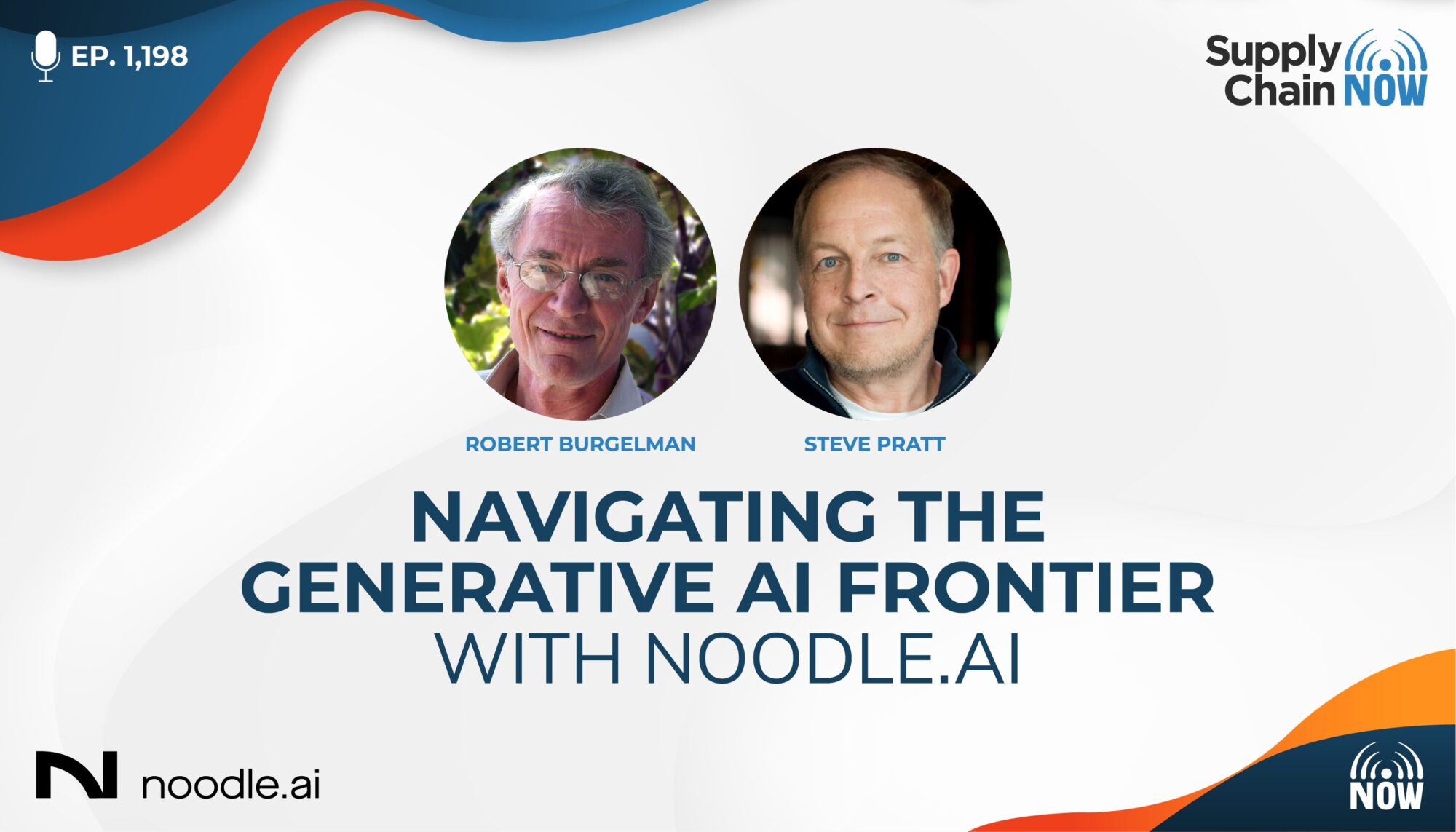
Strategy is really a state of mind and it makes leaders alert to the forces that are going to affect, maybe even determine, their chances of success in situations of competition or situations of collaboration.
-Robert Burgelman
Episode Summary
In this latest installment of the featured series here at Supply Chain Now, “Making Better Supply Chain Bets with the Power of Probabilities,” powered by our friends at Noodle.ai, hosts Scott Luton and Greg White lead a deep dive into the frontiers of generative AI with distinguished guests Professor Robert Burgelman and Steve Pratt from Noodle.ai.
The conversation unfolds with a fascinating exploration of Professor Burgelman’s strategic leadership insights, intertwined with Noodle.ai’s expertise. The Possibilities Frontier Curve takes center stage, outlining the boundaries of AI’s potential in the enterprise. The episode navigates through the evolution of generative AI, shedding light on shifts from deterministic to predictive models and exploring the evolving dynamics between humans and AI.
C-level executives emerge as pivotal players in steering responsible innovation, with a concluding call for businesses to partner with industry leaders like Noodle.ai to expertly navigate the dynamic landscape of the AI frontier on Supply Chain Now.
Episode Transcript
Intro/Outro (00:03):
Welcome to Supply Chain Now, the voice of global supply chain. Supply Chain Now focuses on the best in the business for our worldwide audience, the people, the technologies, the best practices, and today’s critical issues, the challenges and opportunities. Stay tuned to hear from those making global business happen right here on Supply Chain Now.
Scott Luton (00:32):
Hey, good morning, good afternoon, good evening, wherever you may be. Scott Luton and Greg White with you here on Supply Chain Now. Welcome to today’s show. Greg, how you doing today?
Greg White (00:42):
I’m doing great. How are you doing?
Scott Luton (00:44):
I’m doing wonderful. You know, I was just telling the gang here, I think on the first episode of this series, I got a four-year degree. So, I think I might earn a Master’s or Ph.D. after today’s episode. What do you think?
Greg White (00:57):
I have no idea. That’s as close as a four year degree is as close as I’ll ever get
Scott Luton (01:02):
We’re kindred spirits in that regard. So, just to clear everybody in case folks didn’t catch that first series, we are continuing a new limited run featured series here today. We’ve been partnering with Noodle.ai on this project, a podcast series entitled “Making Better Supply Chain Bets with the Power of Probabilities.” It’s just supply chain eloquence.
Scott Luton (01:23):
On the kickoff episode, we focused on demystifying artificial intelligence and focused on real practical applications and global supply chain. Today, Greg, we’re going to be more focused on successfully navigating the generative AI frontier, which has been a bit of the wild, wild west out there. But many organizations, as you know, have found tons of innovative success and powerful outcomes, right?
Greg White (01:46):
Yes, it’s amazing. I mean, we’ve heard some great things about companies using it to take weeks-long projects into a weekend. So, there is real business power, right? It’s not just the party trick that is ChatGPT.
Scott Luton (02:00):
That is right. Well said. We’re going to address that point, the illusion that some folks out there may have. So, stay tuned for that. So, Greg, we should introduce our two esteemed guests here today. I want to start with Professor Robert A. Burgelman, who is the Edmund W. Littlefield professor of management of the Stanford University Graduate School of Business, where he has taught since 1981. Now, he has spent a successful career serving on faculty on prestigious universities around the world, such as Antwerp University, Harvard Business School in Cambridge University. And amongst other initiatives, Professor Bergman has authored and published some 200 case studies of companies and organizations in many different industries. So, it’s so nice to have you with us here today, Robert.
Robert Burgelman (02:42):
Thank you very much, Scott. Great to be here.
Scott Luton (02:47):
All right. All right. A lot to get to.
Scott Luton (02:50):
All right. So, let’s welcome back also Greg, Stephen Pratt, founder and CEO with Noodle.ai. Now, many of our listeners may recall Steve’s last appearance with us on the first episode of this series, but you may not know a couple things about Steve. Prior to Noodle.ai, Steve was responsible for all implementations of Watson Worldwide for IBM Global Business Services as something. But previously in his career, Steve was founder and CEO of Emphasis Consulting, growing it from startup to over 30,000 people. Steve, great to have you back with us.
Steve Pratt (03:23):
Love you guys. Great to be back.
Scott Luton (03:25):
Well, if you didn’t see Greg’s reaction, that was my reaction when I read —
Greg White (03:30):
A thousand People, and then IBM. You’re lucky to be alive, Steve.
Steve Pratt (03:36):
Yes, yes.
Scott Luton (03:37):
And now, doing big things with Noodle.ai, Steve, which I bet is just rewarding. Is incredible, right?
Steve Pratt (03:42):
Absolutely, yes. My favorite so far.
Scott Luton (03:45):
OK. Wonderful. All right. Well, Robert and Steve, welcome to you both. Greg, we’re going to dive right in. We got a lot to get to here today. I think we’re really going to — much like the first episode of the series, we’re going to really make it much the topic of generative AI more approachable. We’re going to offer tons of understanding and some best practices, especially for those business leaders out there trying to wrangle it and leverage it. So, lots of opportunities out here.
Scott Luton (04:09):
I want to set the stage a little bit though, Robert. So, for starters, would you share a brief overview of your research into strategic leadership?
Robert Burgelman (04:18):
Well, happy to do so, Scott. So, I’ve been doing this for a long time. And when I have the opportunity to interact with executives such as, for instance, Steve, to ask the question, why do leaders need strategy? Why do you have to be a strategic leader? And my answer that I can try to give to people after discussing this is that in the end, strategy is really a state of mind and it makes leaders alert to the forces that are going to affect, maybe even determine their chances of success in situations of competition or situations of collaboration.
Robert Burgelman (05:03):
And you can apply that idea. It’s a — it’s sort of an idea that it applies across scale because you can apply it for your individual life and career for which you are a leader. You can apply that if you are the leader of a subgroup within a large organization, it applies at the level of a CEO, and it even applies at the level of leaders of societies or nations. So, that is really what I have tried to do as a result of my research on what I call strategic leadership.
Scott Luton (05:33):
Robert, I love the — how you interweave leadership in life and leadership in business is so important these days. Before I get Steve and Greg to weigh in, I want to ask you one more quick question, Robert, speak to the importance of understanding AI’s potential in business.
Robert Burgelman (05:49):
Yes. So, as I said, strategy is a state of mind that alerts you to the forces. Well, ARN increasingly is a new force, especially this generative AI. And so, then the question for a strategic leader, again at multiple levels, is this force going to manage me or I am going to be able to manage it? And if you’re a strategic thinker and you believe in strategy then I would say I like to manage it as opposed to being managed by it.
Scott Luton (06:30):
I’m with you and I’m — that one gets by a vote. I would rather manage it versus it manage me. Steve, get your thoughts on understanding the tremendous impact AI can make in business now and in the future.
Steve Pratt (06:43):
Yes. Well, first of all, I just want to reinforce what a legend Robert is in the field of academics. I mean, I — in fact, I was just at an important conference a couple weeks ago and someone — a very senior executive had said that yes, that he studied under Robert and has had an amazing influence on strategic thinking and business. I had the honor of speaking in his class several times. And so, I think it’s — he has a lot of wisdom in what he says. And as — and I — so, I follow what he says.
Steve Pratt (07:14):
And it’s one of those things where the first you hear it, you hear something, but then you sort of think about it later and you’re like, wow, that was really profound. Like — and I can apply that to my life and to my business and —
Scott Luton (07:25):
Lingers with you, Steve, is what you’re saying, right?
Steve Pratt (07:26):
It lingers with you, yes, in the best ways. So, anyway, so it’s just an honor to be with Robert on the show. Yes, I — you know, obviously I’ve bet this part of my career on the fact that I think that AI is going to fundamentally change business. I felt that for many decades and was actually frustrated in the fact that we didn’t have the computational capacity and the — and data was too expensive so it couldn’t be a reality. And I think that today those barriers have been passed. And I think we are in a really exciting time of finding where the value is, and I think there’s some great examples out there. Some ones that we’ve seen that we’ve done at our company. And so, I’m very — it’s a very exciting time. I think like a once in a career time to see this kind of unleashed creativity on where you can improve your businesses. So, exciting time to be here.
Scott Luton (08:27):
Agreed. All right. Greg, I know that they’re talking your love language there. We had a great conversation first go around, your thoughts.
Greg White (08:35):
Yes, it’s rare that I’m afraid to speak, but I’m sure no one will actually refute me right here and we can edit it anyway. No, I mean, I think there’s a couple of really good points here. One is that, you know, first, leaders must understand strategy and they must drive their companies based on strategy. And then they must learn how to apply these forces that Robert talked about and AI as one of them as Steve told us.
Greg White (09:01):
How they apply these forces to employ that strategy and to accomplish the outcomes that are desired from that strategy. And it is a whole new world. It’s not that AI wasn’t ready, it’s that we weren’t ready, that the data wasn’t ready, it wasn’t available, right? I mean, it’s why one of the reasons that we as supply chain have been saddled with ancient forecasting techniques, and I mean literally ancient, that is not a euphemism, right? They are literally ancient.
Greg White (09:30):
And it’s because those were based on the presumption of lack of data because at the time that we did have a significant lack of data. So, that — you know, there are — we have to recognize that now this great democratization — Scott, that word is for you of, data that allows us to accumulate all this information and apply it to a big giant brain, a number of them, really, it really does accelerate us and will and does now. And will in ways that we’ll love, we won’t love, we’ll cherish and we’ll fight. So, there — I mean, there are a lot of things we have to understand about this sort of new world order with AI.
Scott Luton (10:13):
Well said. Now, Robert, I’m going to swing back to you. If you heard Greg there, he threw out that democratization because I can never say that word, but every once in a while I get lucky right there. So, Robert, let’s keep driving. Let’s talk about the possibilities frontier curve, what is that that you’re talking about?
Robert Burgelman (10:32):
Yes. So, actually I’ll start by leveraging off what Steve was saying and also what Greg was saying, which is so that artificial intelligence informs business strategy execution. But so, from my — the research that I did actually, which included studying Noodle.ai, I derived several ones from that that then will inform my discussion of the possibility frontier.
Robert Burgelman (11:00):
So, the first thing is, you know, they’re not actually challenges associated with applying this AI stuff, including the latest version which is generative AI because one of the strategic challenges is that the data are actually usually messy, right? So, not all data is ready for being used. The questions for — to which the — that AI can be addressed are often ill-defined, right? They’re not clear. And there are technical problems that are not clearly or technical problems, not clearly linked to the business problems. So, how do you solve that problem or how do you deal with these issues remains to be determined, I think.
Robert Burgelman (11:44):
So, it then requires a variety of new competencies that really create a heterogeneous culture in the organization. I won’t go through the list of what those competencies are, but the heterogeneity is an important aspect because you have to get everybody to work together. And so, then the perceived value as I — Steve that can talk about the greater detail than I is really that you can go to predictive analytics as opposed to trying to just extrapolate from the past, and you can get probabilistic recommendations. So, there is more of a future orientation that can be, but it is not obvious how you are actually going to achieve that.
Robert Burgelman (12:31):
And so, then on the part of the ones who are using it is going to also require tremendous — there is far more interdependence involved in organizations. So, you have to be able to break silos and overcome politics, you know. Anyway, I’m just giving you a sense here of how it sounds. Wonderful, we’re going to use generative AI, but it is strategic thinker. It is not so clear how you are actually going to do it effectively. OK. So, now —
Scott Luton (12:59):
Robert, can I ask a quick question? Because — as you’re describing some of those new requirements, a lot of that, to my mind, almost any big breakthrough, technology breakthrough requires new competencies in the organization. Somewhat you’re sharing there, breaking silos, overcome politics, getting teams to work together or requiring new skill sets. Whether it’s related AI or any past breakthroughs, those seem to be common themes there. Is that what you’re suggesting?
Robert Burgelman (13:26):
Well, yes. So, maybe Steve can speak to it even more since he is running a company that has to do all of those things. So, I would say that while you are correct that many of these things actually always are associated with innovation, but I think AI may exacerbate it. So, now maybe Steve can speak to the ways in which it actually — he has run Watson at IBM for God’s sake. So, I shouldn’t be asking the questions, but I think it would be interesting to see how Noodle actually is able to do all these things that I have distilled from actually studying them.
Scott Luton (14:05):
Well, Robert, really quick, you deserve to ask any questions based on the glowing recommendation, what you’ve done in your career Steve was talking about. But really quick before we get — move forward into the possibilities frontier curve. Steve, speak to how that AI may exacerbate these new requirements in the organization really quick.
Steve Pratt (14:22):
Yes, you know — well, Scott, I think you’re exactly right that with any new change in a company, you need to reassess what skills do we need to address this. How do we quickly scour all parts of our business to see how we can apply this to improve? And when you talk about the possibilities frontier curve, there are ways to apply AI to do things better than you did before, to push up the value that you’re creating within your company so you can create more value for your customers, charge more money, right?
Steve Pratt (15:00):
And — but there’s the other end also of how do you use this to automate mundane things? How do you lower your cost structure to improve your margins? And so, there — so, we really need to think about from a strategic perspective, how do I apply AI across all the parts of my business to create more value and to reduce costs and everywhere in between, right? That’s, to me, the really exciting part and that requires a very rapid collaboration and review of a business to see how you can apply AI to improve it.
Scott Luton (15:37):
And — thank you, Steve. And, Greg, your quick comment there. We’re talking about some of the requirements, some of the challenges of putting this thing and harnessing the power. Your quick thoughts there, Greg?
Greg White (15:48):
I think you have to recognize that AI is simply a very consistent, non-failing application of actual intelligence. All those things that Robert was talking about where we don’t — as human beings, we don’t look at what happened last year and say, that’s what’s going to happen this year. We know better than that, right? And what we look at is we perceive what’s in front of us, what’s happening now. Those inputs that we can capture today that indicate what could be happening into the future.
Greg White (16:16):
And that’s what AI does. It just does it flawlessly fast, it learns much more quickly, that sort of thing. And that creates the pace that we’re talking about, but it also create — it also allows us to adapt as humans, as companies, as leaders, and as technology and application providers to attack business issues and just organizational issues that much more quickly.
Scott Luton (16:43):
Well said. All right. Robert — thank you Steve and Greg. Robert, let’s get back. If you could briefly define this possibilities frontier curve.
Robert Burgelman (16:53):
Sure, happy to do that. So, if you ask, how do you control your success in business, that is basically two variables that are critical. One is that you are able to create — perceive values that your customers will be willing to pay for it. And that you do that at a cost of developing and delivering that is below the price that you can charge for your goods or services, your products or services. So, at any moment in time there actually exists a frontier that links the perceived value and the delivered cost. And that frontier is determined by the best technology and the best way of organizing that exists at a particular moment in time. The consulting firms, I won’t mention them by name, but they are very good at figuring out who is on the frontier and who is not.
Robert Burgelman (17:47):
And today — and that is — and that frontier that will move out incrementally because every technology improves a bit over time, ways of organizing improved bit over time. So that is the — if you want — not a static, but it is sort of the normal if you want situation, that’s a possibilities frontier. That is what I could — because everybody who understands it.
Robert Burgelman (18:08):
Now, things like AI, especially the new forms of AI, they actually create a potential if you step function change. So, they actually shift the frontier out, not in an incremental but in a more radical way. And that therefore involves new technology, in this case, the generative AI, whatever it’s called, and new ways of organizing as I already mentioned, because it will require you to reduce somewhat politics, reduce somewhat of the silos in organization. So, not obvious that everybody’s going to be able to do that. So, now the interesting question that I always try to address is, how easy is it if you on the frontier, today’s frontier, how easy is it to move to the new frontier? And the answer — it actually — it is actually difficult.
Scott Luton (19:00):
Not an easy button, I guess, Robert. No easy buttons are involved, huh?
Robert Burgelman (19:04):
No, exactly. But then the next question is why is that difficult? And then you can say, well suppose you are on the frontier, as it is today. You are the best in class with the existing technology and the existing way of organizing. And so, now somebody tells you have to move to another frontier. What is going to be the first reaction? The first reaction is, no, that’s a great idea. The first reaction probably is, why should we be doing this?
Robert Burgelman (19:32):
So, it’s a tremendous challenge of strategic leadership to move those who are the best today to the no frontier. It’s one thing to move the ones who are not the best today with the existing frontier to that frontier. Well, you know, the consulting firm, they can do. They know how to help you with it. But how do you move from being the best in one regime, to actually be willing and believing that it is important to move to the next? I call that the fundamental strategic leadership challenge.
Scott Luton (20:11):
All right. So, I’m going to do this for the sake of time, Steve and Greg. I want to pose one more question, a related question to Robert and then we’ll get both of you all looped in to address whether it’s related to that possibilities frontier curve or this next topic of radical innovation, which really the three of you all have already spoken to a little bit and Robert was touching on again there. So, Robert, address how you see this notion of radical innovation, changing the rules of the game, especially for those leaders that can overcome that fundamental strategic leadership challenge.
Robert Burgelman (20:41):
Well — so, if you want to move from the blue to the green, or have to move from the blue — OK. From the existing frontier to the new one, that implies that there is something really fundamentally changing. And I — for a long time the privilege of working together with — you know, at Stanford with Andrew Grove, with the former CEO of Intel. We even wrote an article in 2007 about this, right, in an academic journal where we highlighted four types of rules that are associated with radical change.
Robert Burgelman (21:18):
The first one is normative rules. These are determined by law, ethics, tradition by textbooks about particular topics that tell you how you should — what’s the best way of doing things. There are technological solutions, right, that you note about today, but that also changed. There are economic rules, many of them are, you can find in contracts and others in business models just as software as a service, and radical. Just think what a radical change that is for a company like Oracle or SRP.
Robert Burgelman (21:55):
And then there are the cognitive rules and these are the beliefs of the current leaders, the ones who are on that first frontier about what are the key success factors? Why did we actually get to be the ones that are the leaders in that existing frontier?
Robert Burgelman (22:14):
And so, now these rules are changing, and you as the strategic leader, right, has to try to understand how these rules can be used by you to actually convince people that they should move and then to try to move as effectively as possible. Now, one thing that I like to always point out is that the technological rules usually change faster than the normative rules, right. Even today in the Financial Times, there is an article about the regulation associated with AI, and about the importance of transparency for the organizations that currently do have these very powerful algorithms to actually be more transparent. But the law is not yet ready to determine what these new rules should be. So that’s the sort of thing that you struggle with if you are a strategic leader and you have to move, you to create the bridge from today to tomorrow.
Scott Luton (23:22):
Robert, I really appreciate how on the front end of this conversation, you’ve really set a leadership foundation because that’s what we’re going to leverage and lean against as we dive into how to really powerfully leverage generative AI, for that matter all technologies.
Scott Luton (23:38):
So, at this point, Steve and Greg, I’m going to bring you all back in. Steve, whether you want to speak for a second to the possibilities frontier curve or those rules? The — how radical innovation is changing those rules of the game. If I was keeping score at home, normative rules, economic rules, cognitive rules and technology rules, hadn’t had this many rules since, like, third grade. Steve, your thoughts?
Steve Pratt (23:59):
Yes, Robert introduced me to this framework several years ago. And I — it’s actually been very helpful in — at Noodle to help us guide product development, right. So, again, if you look at the possibilities, frontier curve of the vertical axis being perceived value, like, how much value can our products deliver in supply chains to supply chain leaders, right? And then the horizontal axis is delivered cost of can you drive down costs for our customers through our products that we start applying AI in a lot of different ways.
Steve Pratt (24:37):
One is, at the beginning of the show you talked about like forecasting, right? Like current advanced planning systems that were architected in the ’90s, almost 30 years ago. Use very old technologies, right? Very old approaches. And the possibility frontier on the perceived — on the actual value, we can add a lot more value to a demand forecast in a supply forecast than the other systems. And that’s been enabled by AI, that expansion of that frontier.
Steve Pratt (25:10):
Also, when it comes to generating a distribution plan, same thing, you can actually add tremendous value. On the other side is like how can we reduce costs, right? So, if you look at your planners in typical supply chains have a long tail problem. There are thousands, tens of thousands, sometimes hundreds of thousands of issues that need to be addressed every week, right? Certainly, every month in the S&OP process or the S&OE process. And it’s just an overwhelming amount of tasks that people to deal with them need to hire more and more planners and more and more planners, and it just this overwhelming things. So, you can automate those. You can just automate them and lower your costs.
Steve Pratt (25:56):
And so, to me it’s exciting that exploring the difference between the old front, I would say the ’90s possibilities frontier and that 2023, 2024, 2025 possibilities frontier is enormous, right, especially in supply chains. And so, that’s why I’m so excited about this and I think it’s been a great framework to — for us to think not just about, hey, how can we increase value or how can we only reduce costs? It’s like listen, we need to be able to address it across the frontier.
Scott Luton (26:31):
Steve. Well said. Greg, your thoughts?
Greg White (26:34):
Yes, I think we’re in for a big change in the marketplace, particularly what Steve’s talking about because there are a lot of companies that can’t do that today. They can’t take the combinatorial analytics that are required for supply chain and consider all of those when doing planning. They have to kind of pick a few of the old ones and many of them are because they were on that frontier back in the ’80s or ’90s or 2000s, right? And those were the dearth of data days. These are the wealth of data days and they can’t get there from here. I mean, that’s what we sold against at Blue Ridge was that.
Greg White (27:12):
So, if you can capitalize on that wealth of data like Steve is talking about, then you are on that new frontier, right, and that’s where — that is the nature of disruption is that, to Robert’s point earlier, if you’re here on the old frontier when a new frontier is produced, you can’t afford to let go of your methodology to go to the new frontier because you have too much invested in.
Greg White (27:39):
It’s happening in — with AI that’s used for autonomous driving right now. There are technologies out there that could completely usurp the methodologies that are used today. And I feel like as, this is very often the case, those companies that actually come to autonomous driving last, for instance, will be the first. So — right? Because they don’t have so much invested in old technology and they don’t have so much re-engineering necessary to be done to get to that new frontier. So, that’s just one aspect of it.
Greg White (28:16):
I keep locking on, you know, just these couple of points. But Steve, you told me we would be afflicted by this, that Robert gives you something to think about and, you know, my mind is there. My mind is that this defines the nature of disruption, this whole old frontier versus new frontier gap. And it’s an important distinction for companies to make as they try to set their strategies and as they try to undertake radical innovation. It’s those companies on the new frontier. I think you called it the green frontier, Robert, is that right?
Robert Burgelman (28:50):
Yes.
Greg White (28:50):
The green frontier —
Robert Burgelman (28:51):
All green new, yes.
Greg White (28:53):
Yes. So, it’s those companies that are undertaking radical innovation and disrupting those companies on the old frontier.
Scott Luton (29:00):
All right. Well said. Good stuff there, Greg. I’m with you.
Greg White (29:04):
I hope you’re having as much fun as I am, Scott.
Scott Luton (29:05):
I think I’m about 17 pages of notes in because —
Greg White (29:10):
We’re only halfway through.
Scott Luton (29:12):
We’re only halfway through. And Steve, you’re right, Robert makes you think he’s really working that side of the brain that works the critical thinking. So, I’m going to try to keep up with all three of you all.
Scott Luton (29:20):
All right. But Steve, let’s shift over to you. So, now that we have really set, I think on a number of different levels, a strong leadership foundation, I want to dive more focused into AI, and I want to start with your thoughts on that evolutionary journey from deterministic to predictive AI models, to the more advanced generative models, right? So, I want to get your thoughts there. Two-part question. And I want to make sure our audience, I think a lot of folks, we love our acronyms around here, as we all know in military and supply chain, you name it. But I think some folks aren’t — don’t have less than one tackle, don’t understand the difference between LLM, LIM and LGM when it comes to AI. So, if you could speak to the evolutionary journey and also make sure we define the basics.
Steve Pratt (30:05):
Sure. Yes, so — I mean — so, we are in the very early stages of the moving from predictive AI to generative AI. I will say that predictive AI is here to stay, but what predictive AI does is — it finds patterns and data and, like, very simplistically you could say, you know, identify which of these things is a picture of a dog and it’ll and write. And generative AI would say draw a picture of a dog that doesn’t exist anywhere else and it will generate a new thing which predictive AI can’t do.
Steve Pratt (30:43):
So, predictive AI we’re using every single day, right? We’re using in navigation, we’re using it in when you’re sorting your photos, where — when you do auto complete on your — when you’re texting, that’s all predictive AI. And within Noodle, we’re using predictive AI to identify supply demand imbalances and then sending that through our application to users as what we call value at risk. So, it could be inventory holding costs or empty shelves, and we quantify that in a dollar amount and we give people a prioritized list by dollars of predicting basically issues that need to be resolved over the execution horizon in your supply chain.
Steve Pratt (31:30):
So, very, very powerful, right? Both on the demand prediction, supplier prediction, imbalance prediction, and then also predicting, you know, what inventory distribution moves will be — will produce the best output. The issue — well, the great opportunity in moving to generative, right, is I think will be a fundamental transformation of the way supply chains are managed over, right, the coming decades. I think we’re going to look back, this will absolutely be the new frontier, and I don’t know if it’s going to last 30 years at that frontier, but it’s going to last a long time at this new frontier.
Steve Pratt (32:06):
So, let me explain, you know, when I say, you know, generative AI, people are like, how is ChatGPT going to transform my supply chain? Well, it’s not, right? It may do something around the edges, but there are three types of generative AI, right? There are large language models that have text and documents. So, the most well-known of this is ChatGPT. It only does text and — large language models only do text and documents.
Steve Pratt (32:35):
Then there are large image models, right, which generate new images. So, if you can generate, hey, come up with a logo for my company that has these characteristics, it can come up with a logo for your company. It can generate new things. I think, as I mentioned on the last podcast, this is also at the heart of the Hollywood strike of people generating images of actors that, you know, and do the actors get paid if you can generate an image of an actor acting out a scene.
Steve Pratt (33:11):
But the one that I’m really excited about is this third category called large graph models, right. So, a large graph model is — uses the same kind of techniques. It uses the graph neural networks and then it uses something called reinforcement learning for training that gives it feedback, and basically it optimizes the entire thing.
Steve Pratt (33:26):
So, a supply chain is naturally a graph, right. So, if you look at manufacturing nodes, distribution nodes, right, transportation nodes, they are all, like, points on a graph. And then the connections between them are transportation lanes, right. Some people are using this to do really cool stuff in modeling protein molecules, right, which are naturally graphs to — and you should check out AlphaFold. It’s going to have a huge impact on medicine, right? I think we’re going to do a tremendous amount of drug discovery through large graph models through AlphaFold.
Steve Pratt (33:59):
But I think supply chains — so, you model it as a graph, then you give it a prompt and you say, I want to minimize my empty shelves for these products, right, with this probability. I want to minimize my inventory holding costs with these other products this quarter. I want to emphasize revenue next quarter. I want to emphasize margins, right. And basically, you say, like, generate plan and it does a global optimization. And so, what does a global optimization mean? So, most advanced planning systems — in fact all advanced planning systems right now do local optimization. So, they optimize this little piece, then they optimize this little piece, this little piece and this little piece. But they don’t optimize the whole thing, right. There are — and so, you know, it’s going to be — if you’re putting an outfit together. OK. That’s a great shirt, those are great pants, great shoes, right, but you put them together and it looks like crap.
Steve Pratt (35:00):
So, what this thing does is it looks at the whole thing holistic and comes up with the best overall optimization. And you say like, wow, that’s a lot of calculations. That’s a huge amount of data that you would need for that. Absolutely. So, at Noodle, we have three petaFLOPS of computing power in our data center, which is 3 million times more than the fastest supercomputer in the world in the year 2000, right? So, it is absolutely sprinting towards that new possibility — that possibilities frontier, right. And to me that’s what’s super exciting, is that we’ve spent the last seven years, right, moving from the old frontier to the new frontier and developing products that enable you to do that.
Steve Pratt (35:46):
So, to me, you know, predictive AI is going to be around for a long time, right. It’s a — it is very useful tool. Generative AI, especially in supply chain for large graph models is going to revolutionize everything, you know. I do think large language models might help you scan procurement documents easier. It might help you reduce costs, right? But I don’t think it’s going to — it’s not nearly as, I think, large graph models will have many orators of magnitude, more impact in supply chains than LLMs.
Scott Luton (36:21):
So, for the sake of our time and discussion here, I want to bring Robert and Greg in after I pose one more question to you, Steve. And you talked a lot about the power of AI and supply chain. I stumbled across this quote you had before I asked this question, and I love this, “Noodle.ai is combining human expertise with AI to science the crap out of supply chain predictions and corrections so that companies can achieve wildly profitable outcomes.” Steve, that is love. You just tell it like it is. I love it.
Scott Luton (36:50):
So, continuing with that, so as we continue to explore this evolution, right, that you just spoke to, address any other — the potential shift specifically in GenAI, especially when you start thinking about — and Greg, we’ve talked about this with Mike Griswold, talked about, you know, working for AI, right? AI may be your customers. So, thinking about from moving from AI as servants to AI potentially becoming masters. And do you foresee humans remaining dominant or becoming subordinate, Steve?
Steve Pratt (37:22):
What I see with AI is the possibility of the human — first of all, the human brain is amazing, right? I mean, I’ve been around AI for a long time, and the human brain is much more powerful than AI in many areas. And I think what will happen, and I’ll get into some, right. The — I think what will happen is they — there will be a very clear delineation of the human brain.
Steve Pratt (37:49):
Humans will do what the human brain does best and AI will do what computers do best. Computers are much better than humans at calculations, right, at estimating probabilities that, you know, just finding subtle patterns and very complex data, those kinds of things. Humans are great at setting intention. This is what I want to do. This is the goal I want to achieve. This — these are the trade-offs. These are the risks I want to take. These — and these were the objectives I want. Here, they’re very good at relationships, right? So, I don’t want to piss off this customer, right? So, this customer is already upset. I don’t want to have stockouts for that customer because I’m going to —
Steve Pratt (38:34):
So, I think over time, you know, in fact this is what we’re working on right now, is that you would see a UI where a user interface to an application that would say that the human would set intentions. What do I want out of my supply chain? What do I by product, by timeframe, by geography, by customer. And you basically say, here is — here are my intentions. And then you basically set, like, generate plan, and then it generates a plan.
Steve Pratt (39:04):
And, you know, there will be an ability for a human to modify the plan. But it’s amazing the analysis that we have done on for the plans that we generate. When planners change the plan, they destroy value, they make it worse, right? And so, I imagine this future where the humans will set the direction and that the AI will execute around that, right. So, I don’t — so, who’s the master in that point? I think it’s the human. I think I am not afraid in — of this runaway AI that’s say that, you know, humans are inefficient and going to try to Roomba us all away, right? So, I’m not afraid of that.
Scott Luton (39:48):
All right. I’m going to steal that phrase. Roomba us all away, Steve. I love it.
Scott Luton (39:52):
All right. So, Robert and Greg. Robert, your quick thoughts to what Steve is saying there?
Robert Burgelman (39:57):
Well, so actually my assessment is very similar to Steve. I actually — but the way that I — so later you’re going to ask me about dependence and influence, right?
Scott Luton (40:07):
Yes,
Robert Burgelman (40:07):
I could make the connection now if that works for you.
Scott Luton (40:09):
please.
Robert Burgelman (40:11):
So, if you want to assess a strategic situation, as I mentioned earlier, you always have to try to understand what are the forces in the situation, that’s number one. That will be different if I do it for my personal life and career than when I do it for a business and how I do it at a level of a society, for God’s sake. But then I have to ask myself, how dependent am I on these forces versus how much influence do I have?
Robert Burgelman (40:40):
And so, with AI, generative AI, there is a lot of people that — well, I should not say that. There are some people who seem to believe that we are going to become highly dependent and little influence. If that were the case, we will be subordinated. I am a strong believer that can be avoided if you actually adopt a strategic mentality in which we are currently still dominant. Because as Steve said, we actually express the intent and we expect AI to be serving that intent. And I think that’s very, very — we must try to continue to do it, but there will be also situations in which we are more interdependent.
Robert Burgelman (41:24):
So, we are to some extent dependent on the AI capability, but the AI capability continues to be the — to — you know, we have influence over it. If anything we can switch off the computer. But so, how do you accept a situation of interdependence where you have, for instance, a digital twin, but the digital twin should not become the master in the situation? That’s the strategy question of the greatest importance to my mind, if I translate what Steve was saying in terms of the way I think about things.
Steve Pratt (41:58):
I will say that even if we’re dependent on something doesn’t mean that it’s in chart. It’s like — so, I depend on my calculator to do very, you know, like, to divide four numbers by four numbers, right? If I had to dust off my long division skills, I might be able to, like, figure it out. But I haven’t done that in a long time. And so, I’m completely dependent on my calculator to do long division. But I wouldn’t say that my calculator is my master.
Scott Luton (42:28):
Right. Right. I know, Greg, we’ve come a long way since we got your last comment. Before I go back to Robert, Greg, weigh in on master versus servant versus subordinate versus getting Roomba-ed away, as Steve was just talking about.
Greg White (42:43):
A students worked for B students at companies owned by C students. AI is the A students, right? The scientists who program it are interdependent, as Robert discussed, but also influencers. And of course, the C student or whoever is actually setting the strategy determines the outcome that is desired and determines whether that outcome is being produced by that combination of interdependence, dependence, master — and what’s the other term we’re calling it? Servant?
Scott Luton (43:16):
Servant, yes.
Greg White (43:17):
Yes. And I think as long as we recognize that as the hierarchy and we always, always, always focus on the outcome and we target and we train AI to deliver an outcome, then we’re — we will always be, at least, dominant final decision-maker. Robert, you made me think of the situation where Facebook and Google had their AI calculations who had not only created their own language, they were supposed to be negotiating ad prices. They had created their own language, stopped doing the work they were assigned to and locked out their masters. But ultimately you do have the power of the power switch, right? Pull the plug.
Greg White (44:06):
So, yes, I think it — as long as we have someone who determines whether the outcome we’re receiving, and I mean a someone, a human being that determines that we are receiving the outcome that is desired, then of course, yes, we will always have control there. Now, there will be, unquestionably, nefarious forces who try to use AI in unethical ways. It’s inevitable, right. So, I mean, we’ll have to figure out how to deal with that, but I think building ethics into AI is something that we can and should do. You have to build guardrails into the AI just like we have our guardrails as human beings. As Steve said, AI is really an expression. It’s really a perfect expression of human intelligence. And if we apply the aspect of ethics of human intelligence to it, then we can easily control it.
Scott Luton (45:02):
Love that. All right. Robert, you wanted to make one more quick comment before we move forward.
Robert Burgelman (45:06):
Well, actually, yes. So, it’s important to determine which dependencies will you accept and which dependencies will you not accept.
Steve Pratt (45:16):
Right.
Scott Luton (45:17):
And that’s probably goes back to Steve’s point about how humans setting those intentions, right? Setting the guardrails as Greg was just talking about, and then letting the technology execute and deliver and the option, we got to be careful pulling that plug. Who knows, the next iteration when the Zumba in comes around, they got physical bots that may protect those plugs. Who knows?
Greg White (45:38):
Roomba.
Scott Luton (45:39):
What’s that?
Greg White (45:39):
If you get Zumba-ed, you actually get in better state.
Scott Luton (45:41):
OK. All right.
Greg White (45:43):
If you get Roomba-ed, you get swept up.
Scott Luton (45:46):
All right. Good point. Good point of distinction. OK. So, quick time check everybody, time check. And Catherine, if you just timestamped this for us, I got 3:53, so we’ve got a couple of —
Greg White (45:57):
Precisely seven minutes.
Scott Luton (45:58):
Right. So, I think Greg, you’ve got a hard stop at 4:00, correct?
Greg White (46:03):
I do.
Scott Luton (46:03):
Robert and Steve, what if we looking at my run a show here — OK, thank you Catherine. We’ve got AI illusions and, of course, we’ve got the wrap up. What if we do the AI illusions, what was the most important questions in our final time together here, Steve and Robert and Greg?
Steve Pratt (46:26):
I think the — I would kind of skip the illusions and go with the importance of the C-level executives. I think asking Robert say who leads going from the one frontier to the new frontier?
Scott Luton (46:42):
Got you.
Steve Pratt (46:42):
Because people may see that as risky to their careers, right? It’s — you know, they’re paid for the status quo. Like, who — like, how do you make it safe for people to go into that, kind of, like explored —
Greg White (46:54):
I think that’s a perfect capper.
Steve Pratt (46:56):
Yes, perfect but —
Scott Luton (46:56):
All right. Robert, so much to get to so little time. So, tell us if you would, Robert, your thoughts on the role of C-level executives when it comes to innovation in general as well as the successful adoption of AI. And going back to what you’re talking about, those different frontiers move into organization from the blue which was the old, to the green which is new. How can C-levels really make that happen?
Robert Burgelman (47:20):
Yes. So, the — as I said earlier, all organizations are basically resistant to change and that’s not because they are stupid, but that’s because they know how hard it was to be successful with the operating model, for instance, that we have. So, then what probably is necessary is that the leaders, at some point, probably the top leaders in the organization, they have to be alert to within the senior executives that they have. Who are the ones that are actually beginning to understand that the move to the new frontier is necessary even though that’s going to be, in some ways, dangerous because the costs of change are clear, but we don’t know whether the change actually will work.
Robert Burgelman (48:11):
The role of the CEO, I think, is to figure out who — how can he or she developing a minimum winning coalition for actually starting that process. And that what happens in organizations, and Steve can speak to that as well, is there is a fair amount of imitation because once the others folks see that it is actually working, they tend to want to join the bandwagon.
Robert Burgelman (48:36):
So, the question is, how do you get started? And that requires the CEO to understand within the distribution of his or her senior executives. Who will be the ones that he or she can rely on to actually get it going and to get people to do the things that they don’t really want to do, but they end up seeing that it is necessary to do it. That’s the task of strategic leadership.
Scott Luton (49:02):
Well stated.
Robert Burgelman (49:02):
Because that then gets to the forces of the situation. Everything that has to do with forces is strategic.
Scott Luton (49:08):
The builder of those powerful coalitions. I love the picture you painted there in the role of the CEO. All right. Steve, your quick comments there.
Steve Pratt (49:15):
I think it’s encapsulated in one of my favorite stories from the book, “Thinking, Fast and Slow” by Kahneman and Tversky. It talks about cognitive biases. And the story, they ran a study of — they went to executives within this company and proposed a project for them. There was a 50% chance it would diminish profits by a million dollars, and a 50% chance it would increase profits by $2 million. So, twice as much on the upside. And they went to 20 executives and said, would you approve — will you approve this project? None of them approved it. And it’s because of loss aversion and just, I’m going to lose my job if I get — if I lose a million dollars, and I — maybe I get a little bonus if it’s $2 million, but I’m not willing to risk my job. Then they go to the CEO and said, how many of your executives would you have liked to have approved this project? And the CEO said, all of them.
Steve Pratt (50:12):
That, I think, is the strategic leadership challenge. Like, how do you get your executives to take calculated risks right? They have to be, we’re making a strategic push into exploring the use of AI in supply chain in these areas. And what we’ve found is that there was a tremendous amount of loss aversion early. So, we moved from projects to products so we could prove to you that it’s not going to fail, right. And the worst-case scenario is it’s the same as you have now, but we’ve — it’s a hundred percent of the time it’s been a lot better than that.
Steve Pratt (50:47):
But I think that it’s really important for the C-level to not only give people permission, but have the expectation that you’re going to take these perceived risks, right? You’re going to get out of the status quo because cognitive biases kick in and people are going to — when they get proposed, anything like that question, they’re going to say, no. And you’re going to have slow malaise and you’re going to be stuck at the old frontier. And so, I think in times like this where the possibilities frontier has shifted, it’s the C-level executives that have to not only give permission but to push to that new frontier.
Scott Luton (51:27):
Well said. Malaise is slow. Slow malaise is incredibly slow. Greg, your final thought here.
Greg White (51:35):
I think that — I think what Robert and Steve have just described here is the perfect reason that brands and manufacturers and retailers and other operating companies should not build their own technology is because it’s virtually impossible to innovate at that rate when you’re protecting the status quo. We’ve seen it, and you know I’ve said it over and over and over again, I’ve had some pretty spirited discussions with some people who call themselves disruptors who aren’t. You cannot disrupt if you are of the old frontier. You absolutely cannot. Unless you are structured like very few of those high-tech companies, the Googles, the Amazons, I would argue maybe Intel and some of these others who are — who have an entire segment of their business dedicated to that. And you can’t dedicate a business through that kind of transition when you’re still just making widgets, right? You have to focus on the widget.
Greg White (52:30):
So, you can’t — you don’t even have that kind of culture, which is why technology companies that specialized kinds of tech and advanced kinds of tech exists to service these companies. I mean, this kind of brings the whole thing full circle.
Greg White (52:46):
Now, can you enable different types of innovation? Absolutely. Can you conceive that frontier as an operating company? I say that generally, but just think brands and manufacturers and retailers and whatnot. People who use planning is what I’m thinking of, Steve. You can, but what you ought to do is just find an expert. You should just find an expert and have them deployed for you because you can’t keeping that — keep thinking that far forward.
Scott Luton (53:15):
Well said. I love that challenge and the passion that came with, Greg. And we’ve had that conversation time and time again. OK. I hate to come down to home stretch here because feel like we’ve got a Hall of Fame panel led by a Hall of Famer in Professor Robert Burgelman.
Greg White (53:31):
Hall of Famer, yes.
Scott Luton (53:32):
Yes. So, Robert, really, I hate to wind it down, but I want to protect everybody’s time. I know you all got mountains to move out there in industry. So, Robert, if I’m not mistaken, there’s a great read. If folks want to connect with you and learn more about all the things you’re doing, where would you point them to? I think there’s a great read and book out there, right?
Robert Burgelman (53:49):
Well, I have — I just published a short book about Cambridge University Press. It came out a few months ago. And in a way it tells the story of my academic life up to now, and it’s not ending because I can keep doing things. And it’s called “Strategy-Making and Organizational Evolution: A Managerial Agency Perspective.” So, it actually highlights the role of managers in dealing with all those things. And I even have a little epilogue where I explain how that, in fact, of what I have to say in my books speaks to also how to deal with AI actually.
Scott Luton (54:28):
Well, folks, we’re going to include the link to that read that Robert just talked about. Make it easy for you to get it in the show notes. I really appreciate you being here today, Robert. And Steve, great to have you back. Thanks for bringing Robert to our global audience here. That great story that you wrapped on a second ago really goes to the theme of this series we’ve been collaborating with your team on Making Better Supply Chain Bets with the Power of Probabilities. So, how can folks connect with you and the Noodle.ai team?
Steve Pratt (54:57):
So, our website is noodle.ai and you can also — if you’d like to talk about AI and supply chains and how it might help your company, send me an e-mail at steve@noodle.ai.
Scott Luton (55:10):
It is just that easy. Outstanding. OK. Greg, what an incredible conversation with Robert and Steve here. Before I sign off, I appreciate the gauntlet that you just threw down that we have become a bit of a mantra here. Your final thought before we wrap with this Hall of Fame panel.
Greg White (55:28):
Yes, listen to this and listen to it again and listen to it again. Steve warned us at the beginning of this that you might have to do that. That to get everything that Robert has dropped here, especially for someone who processes really slowly like I do, you might have to listen to this more than one time because I’m even thinking through some of the things that have been said here by both of these geniuses. So, yes, listen, listen again. There is knowledge on technology here. There’s knowledge on running a strategic company, on growing and accelerating your company, and changing the future of your company here. So, listen up.
Scott Luton (56:06):
Listen up, I knew you were going to say it. All right. Good stuff there, Greg. Love it.
Scott Luton (56:09):
All right. So, officially big thanks to our guests here today, professor Robert A. Burgelman, the Edmund W. Littlefield professor of Management of the Stanford University Graduate School of Business. Thank you again, Robert.
Greg White (56:20):
Yes.
Scott Luton (56:21):
And Stephen Pratt was back with us, founder and CEO with Noodle.ai, appreciate your partnership on this ongoing series, Rob — Steve.
Steve Pratt (56:29):
Yes, thrilled to be here.
Scott Luton (56:31):
We are too.
Steve Pratt (56:32):
You guys are fun.
Scott Luton (56:34):
Hey, we’ll take that to the bank. Thank you, Steve.
Greg White (56:36):
Yes.
Scott Luton (56:37):
It’s fun to talk supply chain technology and leadership with folks like you and Robert and Greg. And of course with our audience out there that’s — in the trenches making it happen. Greg, always a pleasure to knock out these conversations with you.
Greg White (56:48):
Likewise, thanks to gentlemen like this and others there, the future is very bright.
Scott Luton (56:53):
Absolutely. Where’s our shades? All right. Folks, thanks for tuning in. Stay tuned for more the next installment of this intriguing podcast series, again, making Better Supply Chain Bets with the Power of Probabilities, with our collaborative partners over there at Noodle.ai. But folks, the challenge — you own the challenge. Onus is on you. Take something brilliance dropped here today between Robert, Steve, and Greg and put it in action. Just one thing. Your teams will really appreciate it. Be sure to connect with our speakers and organizations. Check out that Robert’s newest book. Be sure to check out the mountains that are being moved by the Noodle.ai team. And whatever you do, Scott Luton, challenging you to do good, to give forward, and to be the change that’s needed. And we’ll see you next time right back here at Supply Chain Now. Thanks everybody.
Intro/Outro (57:40):
Thanks for being a part of our Supply Chain Now community. Check out all of our programming at supplychainnow.com and make sure you subscribe to Supply Chain Now anywhere you listen to podcasts. And follow us on Facebook, LinkedIn, Twitter, and Instagram. See you next time on Supply Chain Now.
Featured Guests

Steve Pratt is Founder & CEO of Noodle.ai. Noodle.ai products are pioneering software applications powered by predictive and generative AI to identify and eliminate waste in complex supply chains. They are trailblazers in bringing the power of probability theory to master uncertainty and complexity. Noodle.ai products are used by hundreds of leading consumer products brands to get the right products in the right place at the right time with minimal waste and maximum profit. Prior to Noodle.ai, Steve was responsible for all implementations of Watson worldwide for IBM Global Business Services. He was also founder and CEO of Infosys Consulting, growing the business from startup to over 30,000 people. His career began doing classified projects in the intelligence community focused on electronic warfare, satellite communications, and applying neural networks to detect illegal activity. Steve has a Master’s degree in Digital Signal Processing from The George Washington University and a Bachelor’s degree in Electrical Engineering from Northwestern University. Connect with Steve on LinkedIn.

Robert A. Burgelman is the Edmund W. Littlefield Professor of Management of the Stanford University Graduate School of Business where he has taught since 1981. He obtained a PhD in Management of Organizations from Columbia University in 1980. He has been on the faculty of Antwerp University (Belgium), New York University, Harvard Business School (as a Marvin Bower Fellow), and Cambridge University (as a Visiting Professor of Marketing Strategy and Innovation at the Judge Business School). His research focuses on the role of strategy making in firm evolution. He has published many articles in leading academic and professional journals, as well as 200 case studies of companies and organizations in many different industries. His latest books are Becoming Hewlett Packard: Why Strategic Leadership Matters (Oxford University Press, 2017); and Strategy-Making and Organizational Evolution: A Managerial Agency Perspective (Cambridge University Press, 2023). He has served as an Associate Editor of the Strategic Entrepreneurship Journal, 2007-2013, and as the Executive Director of the Stanford Executive Program (SEP) during 1996-2015.
